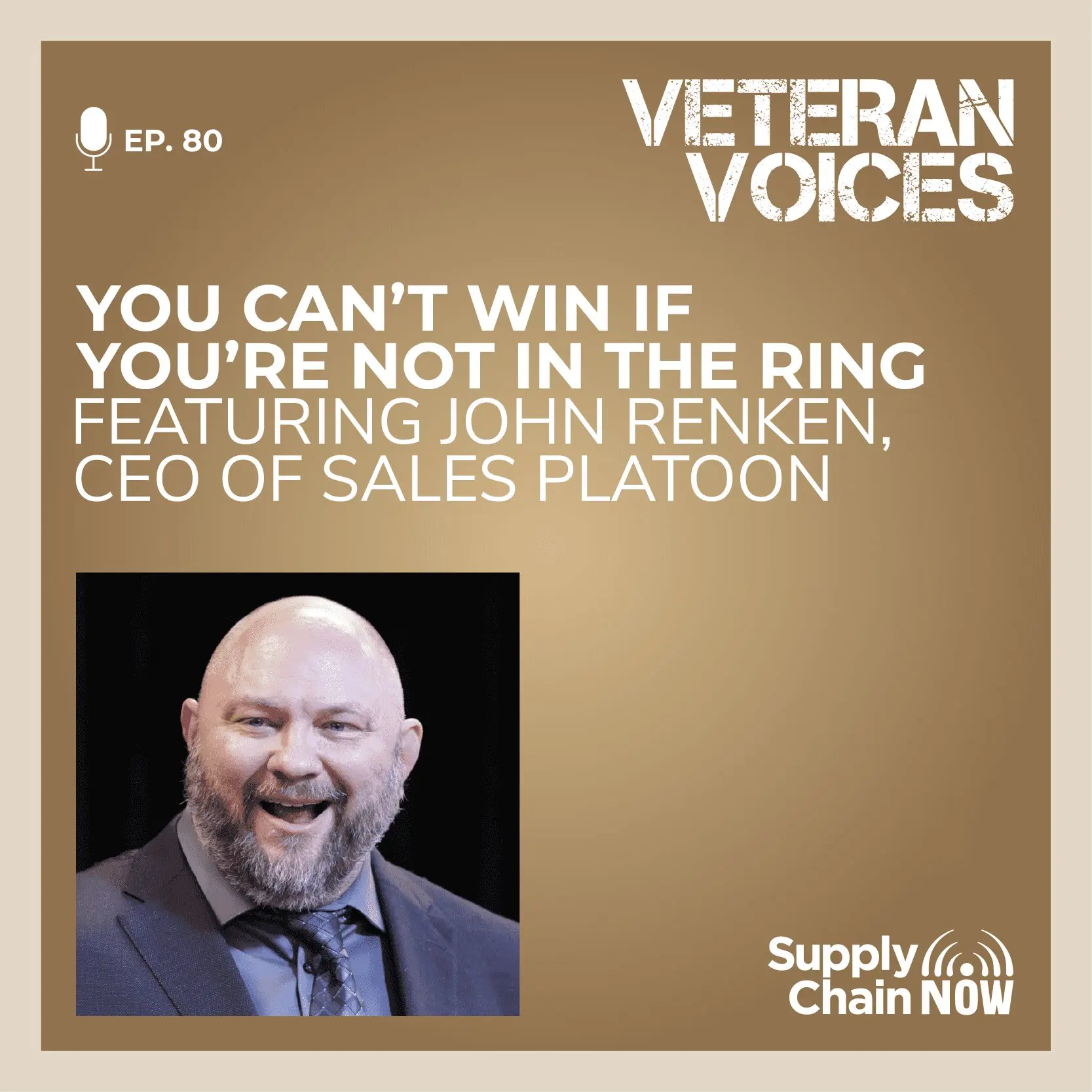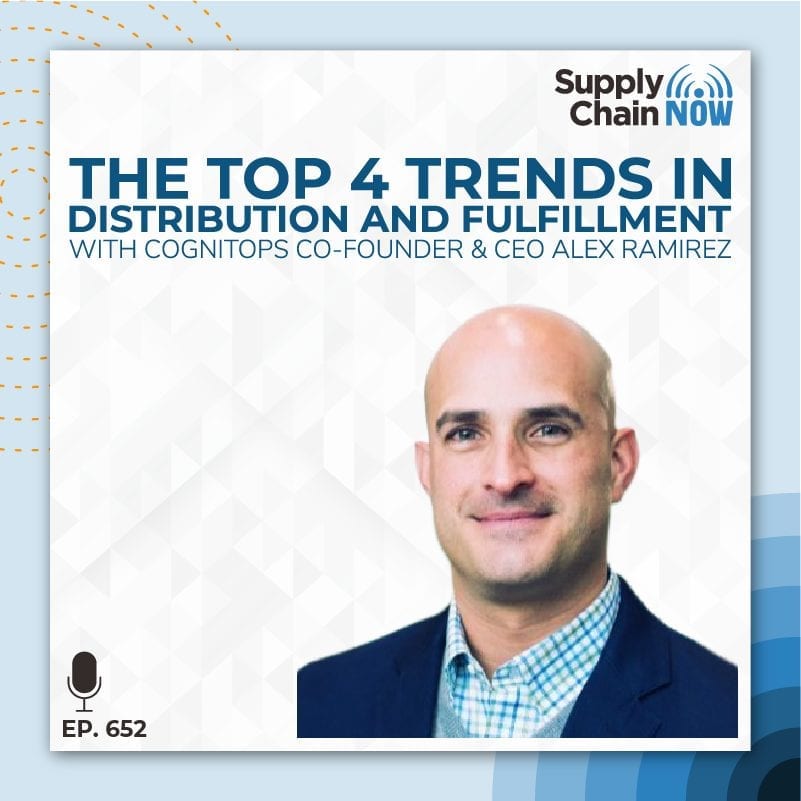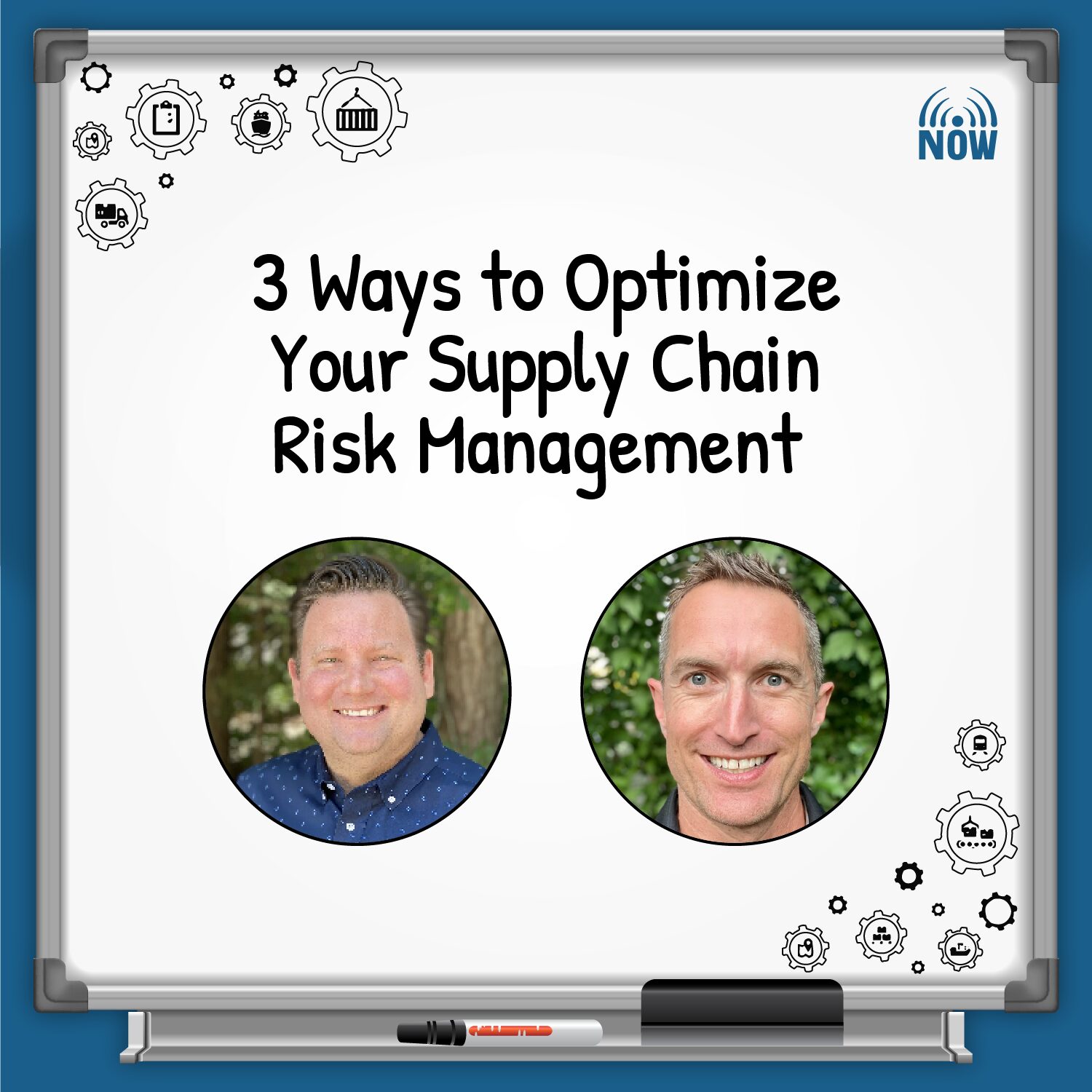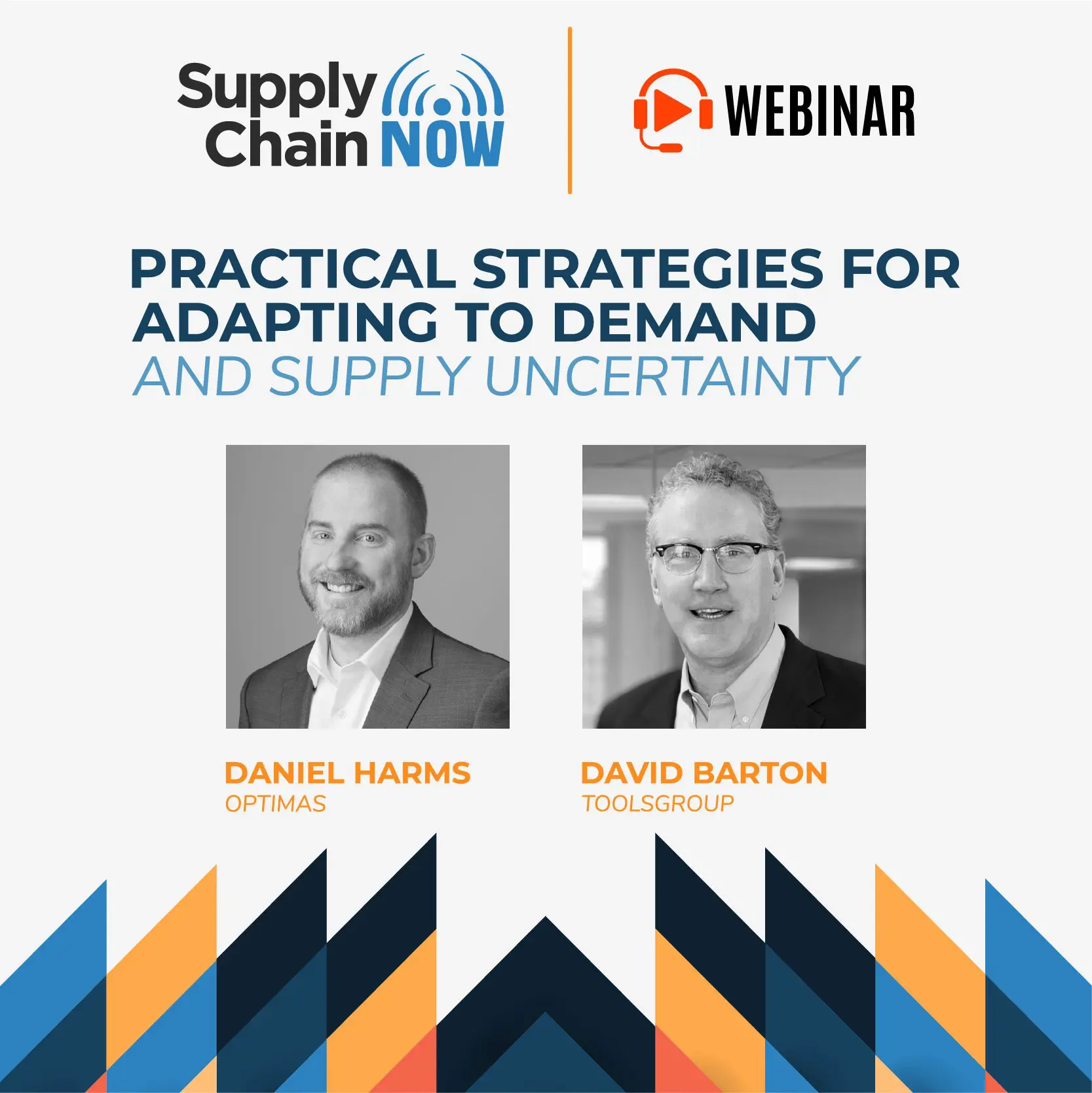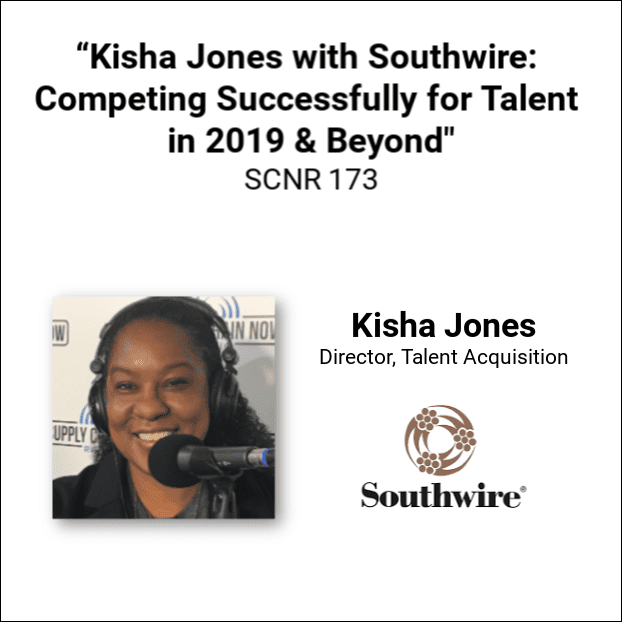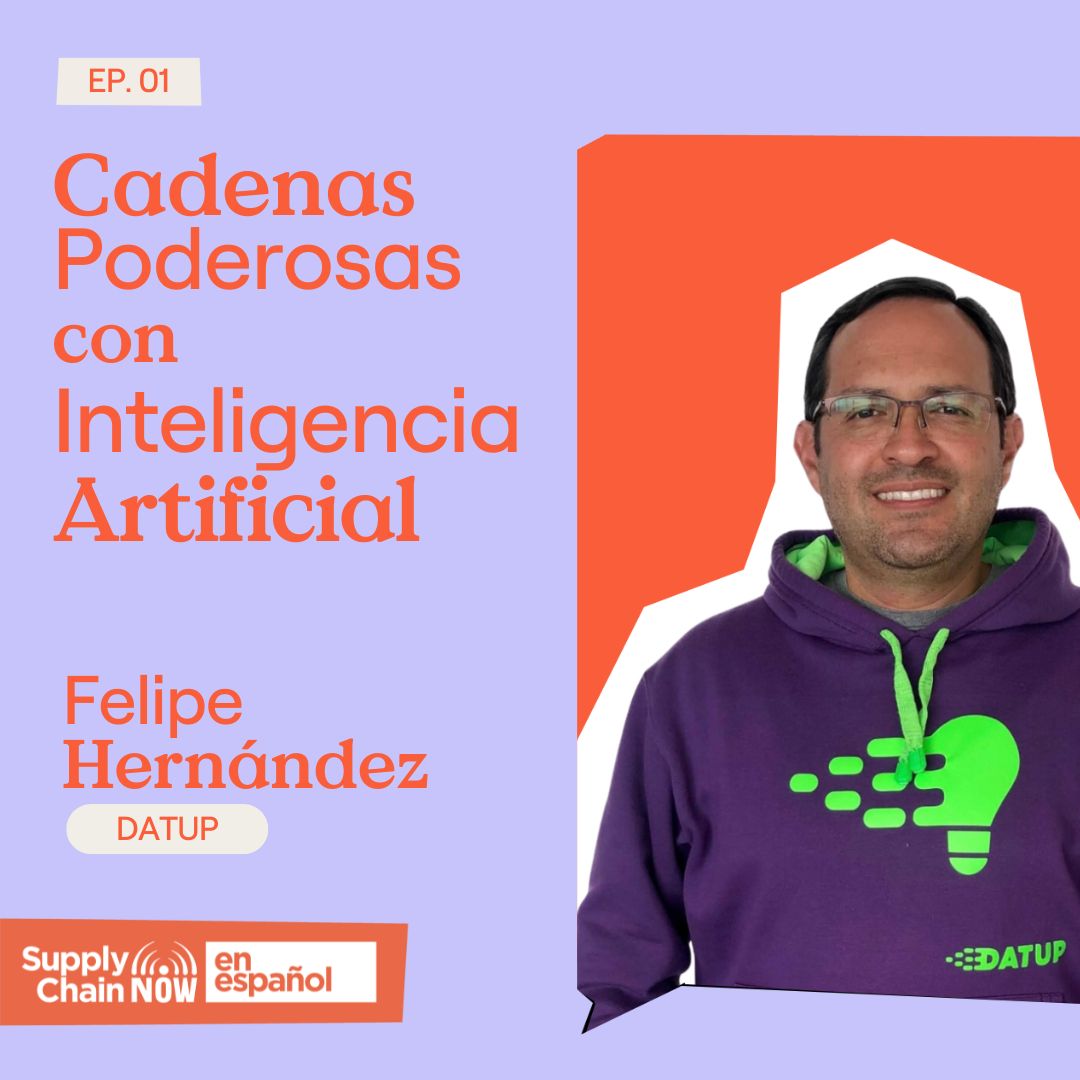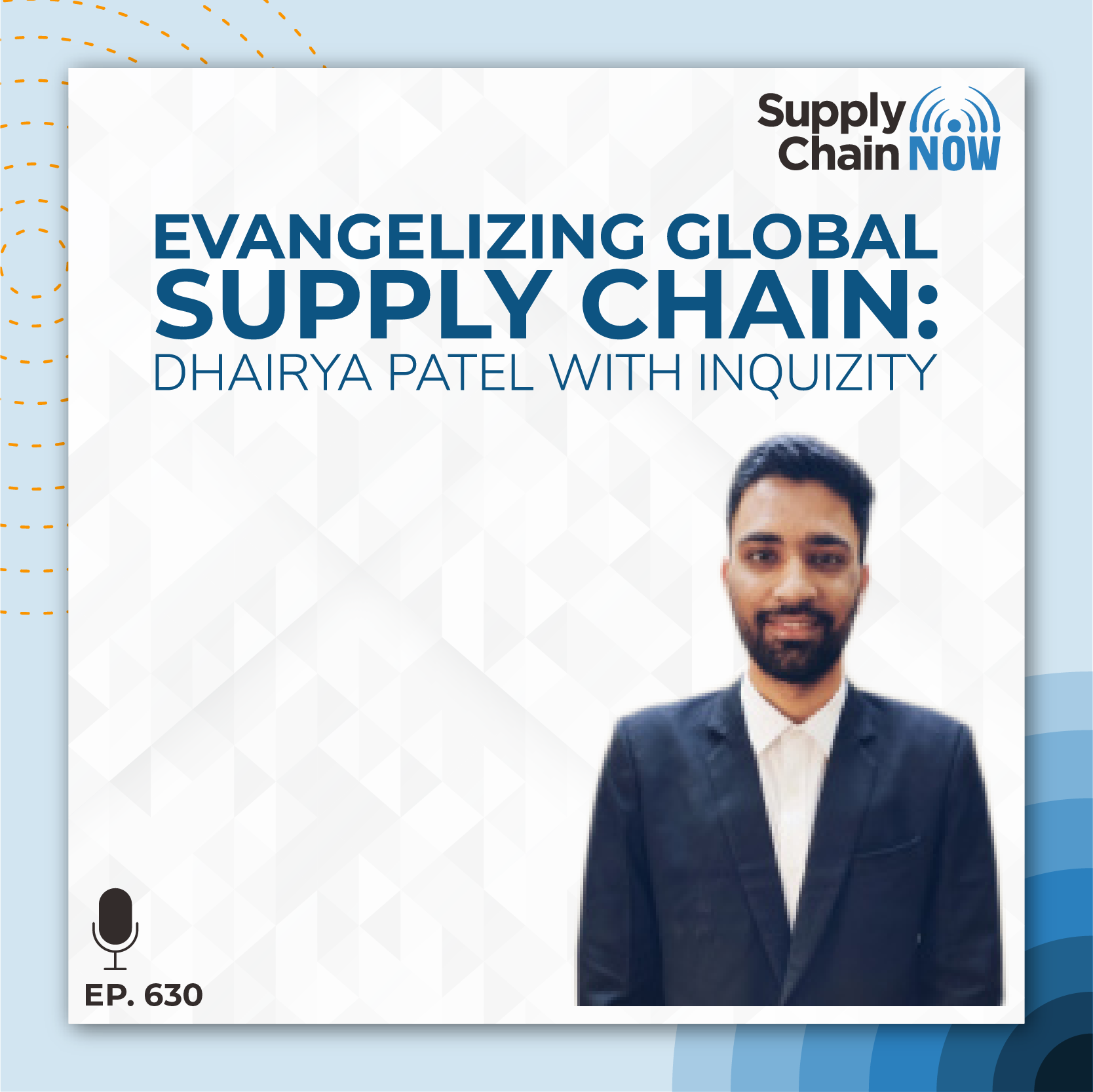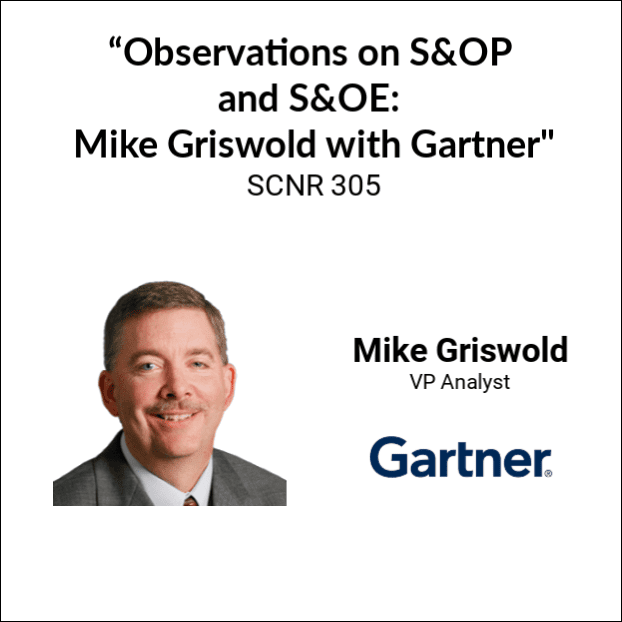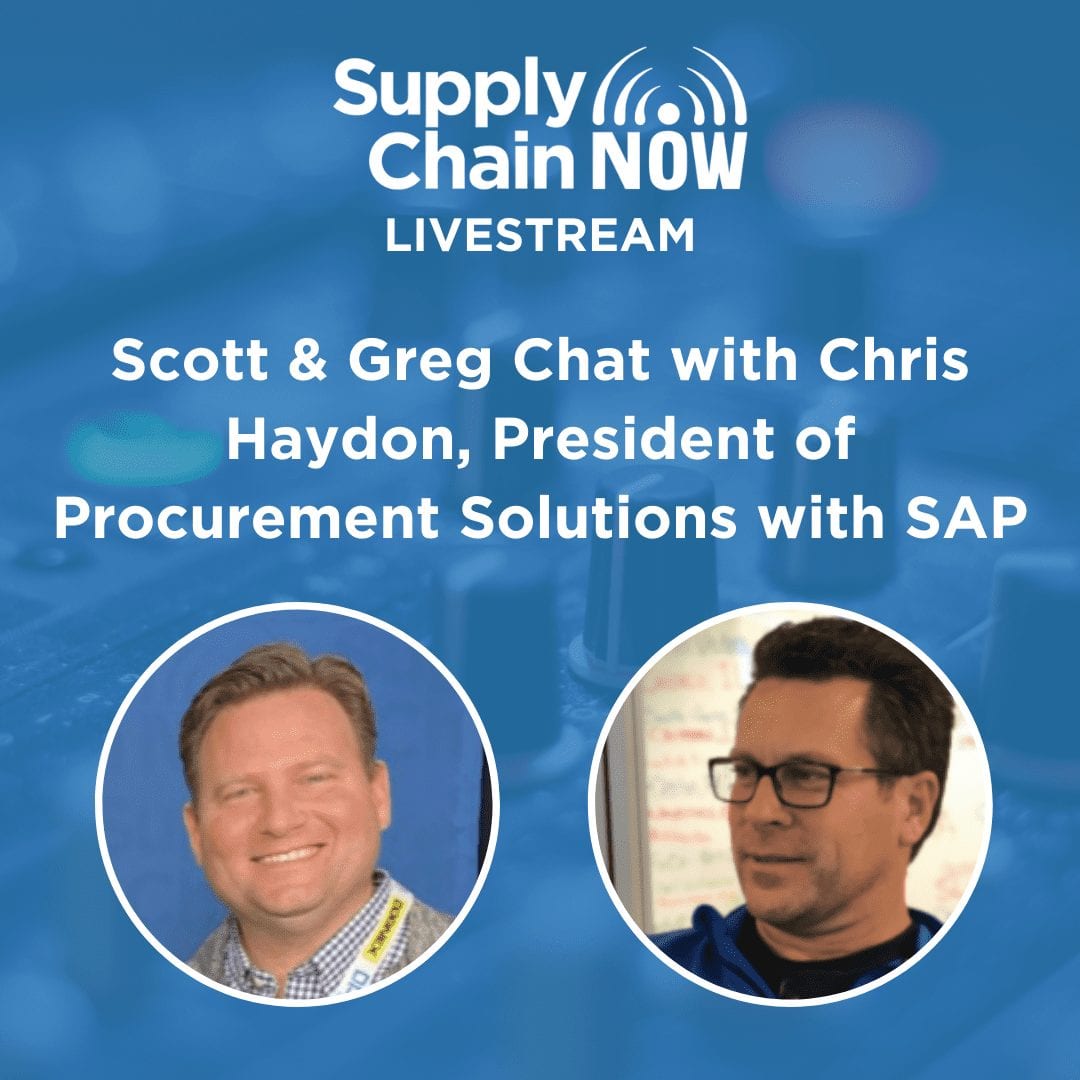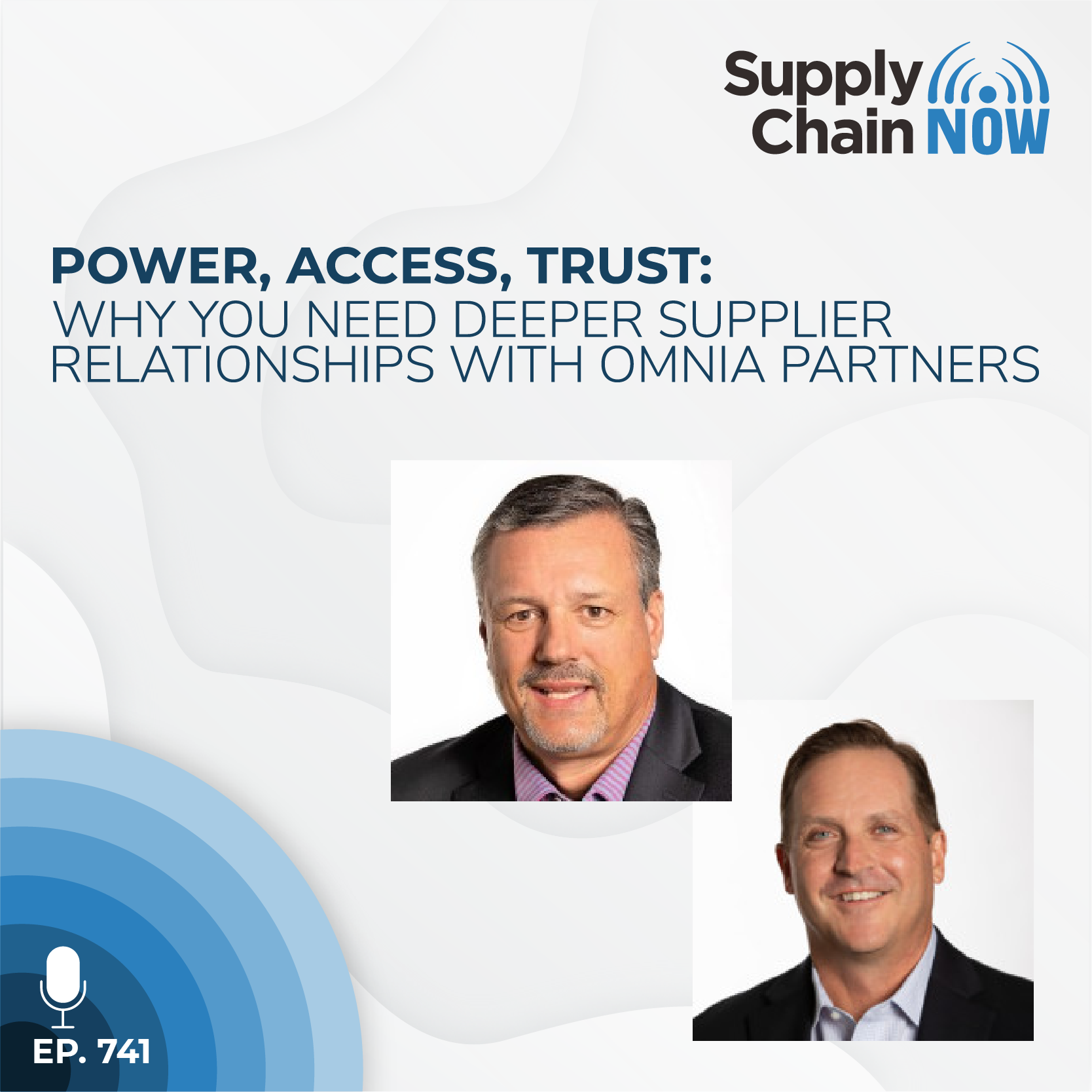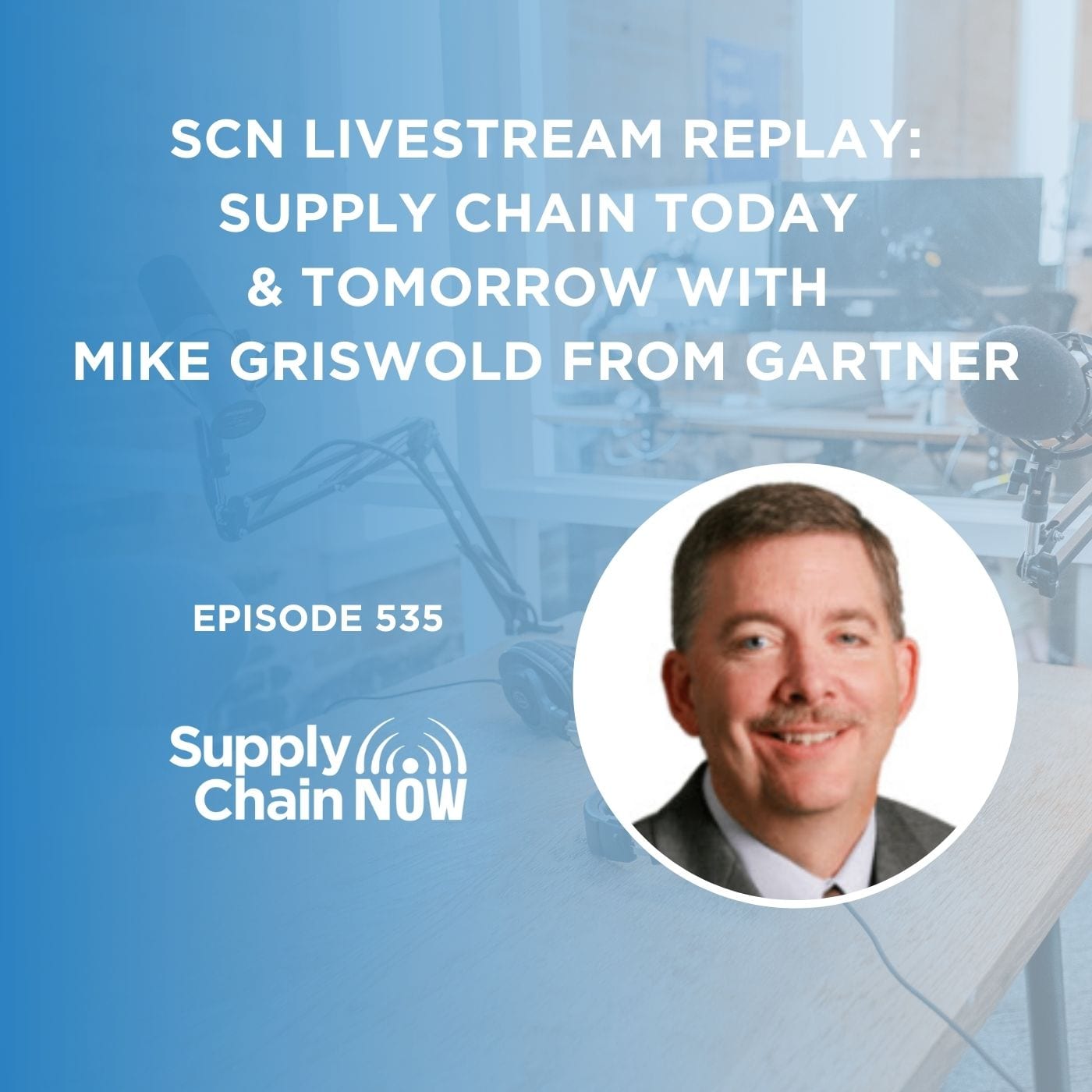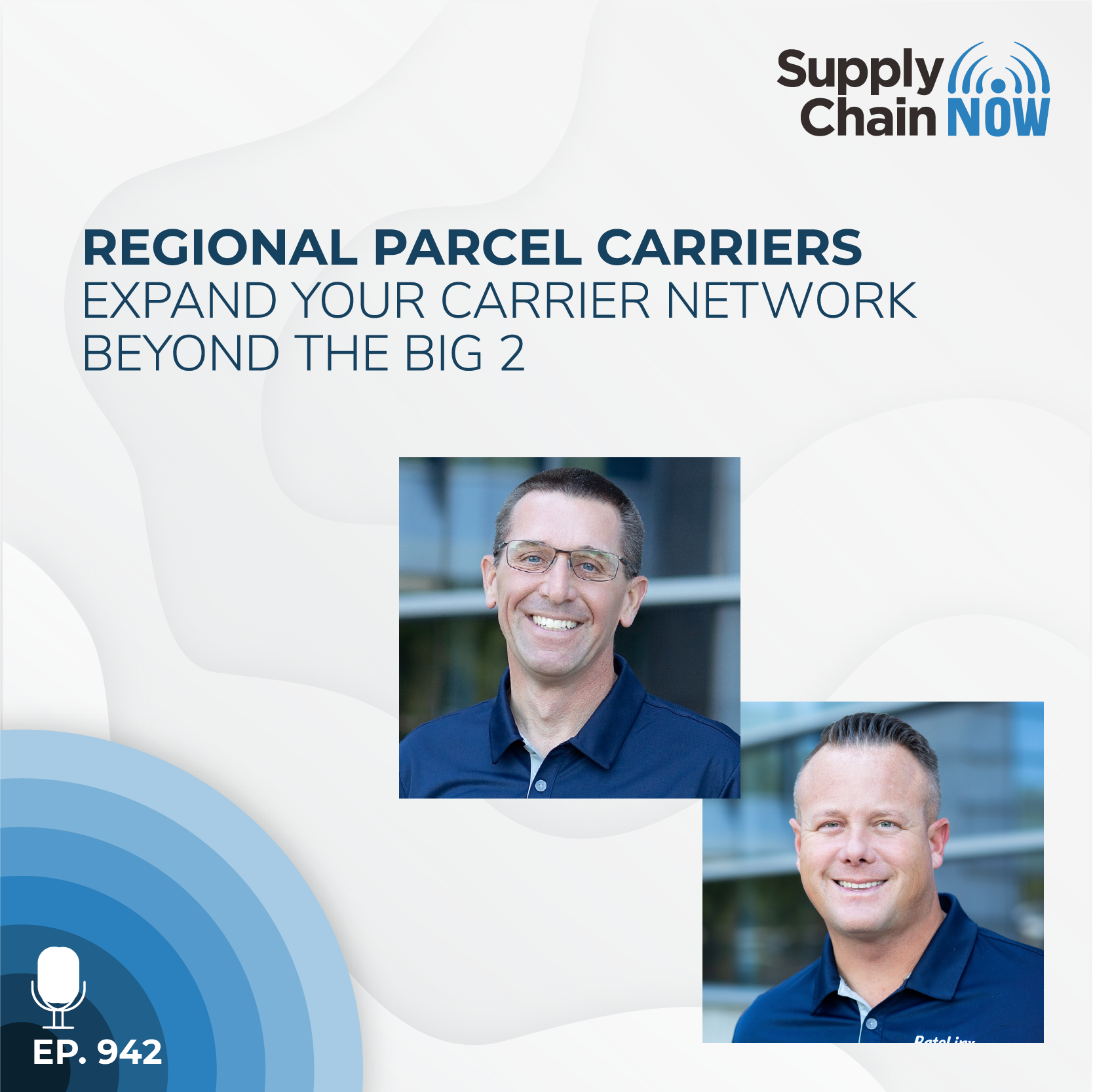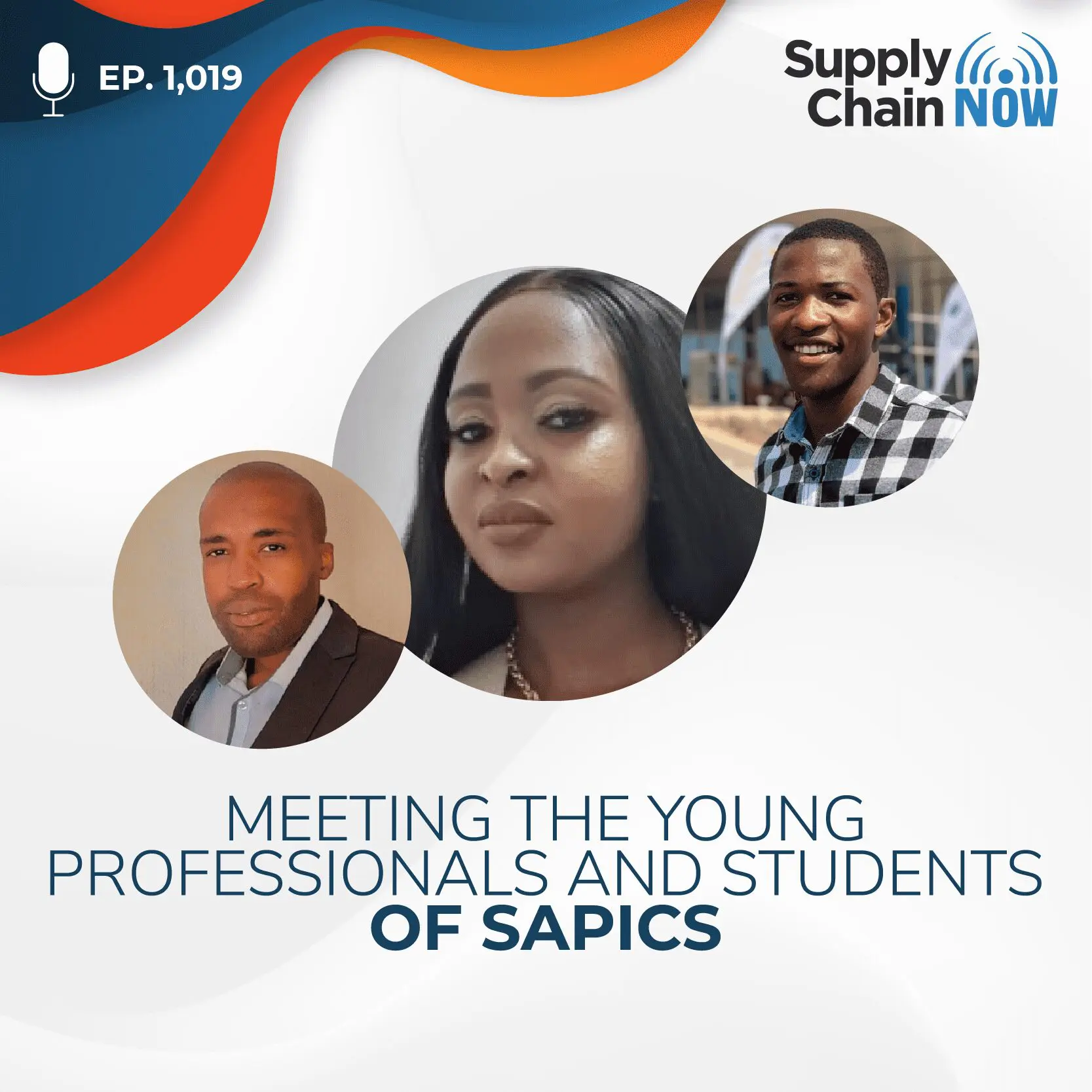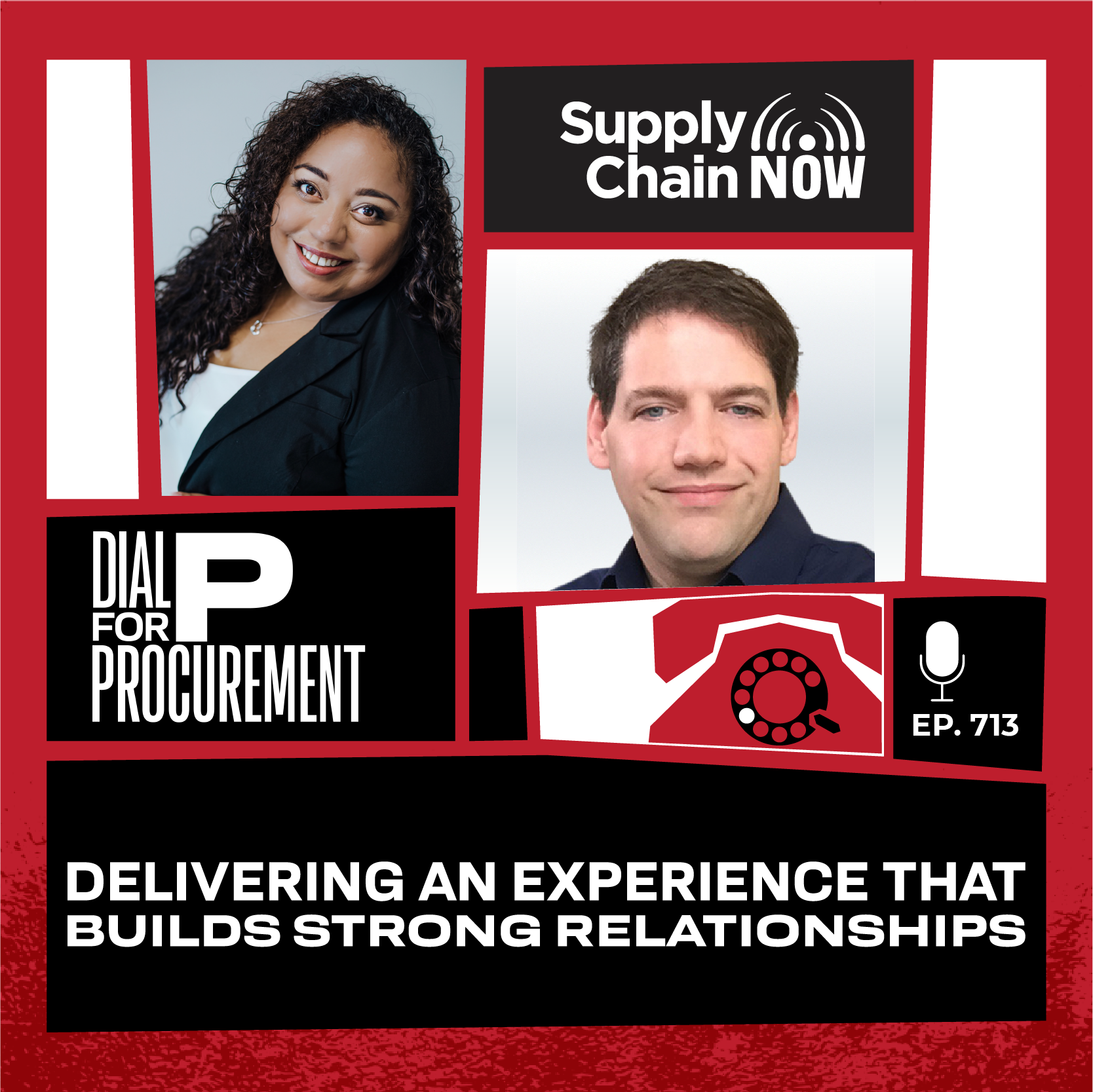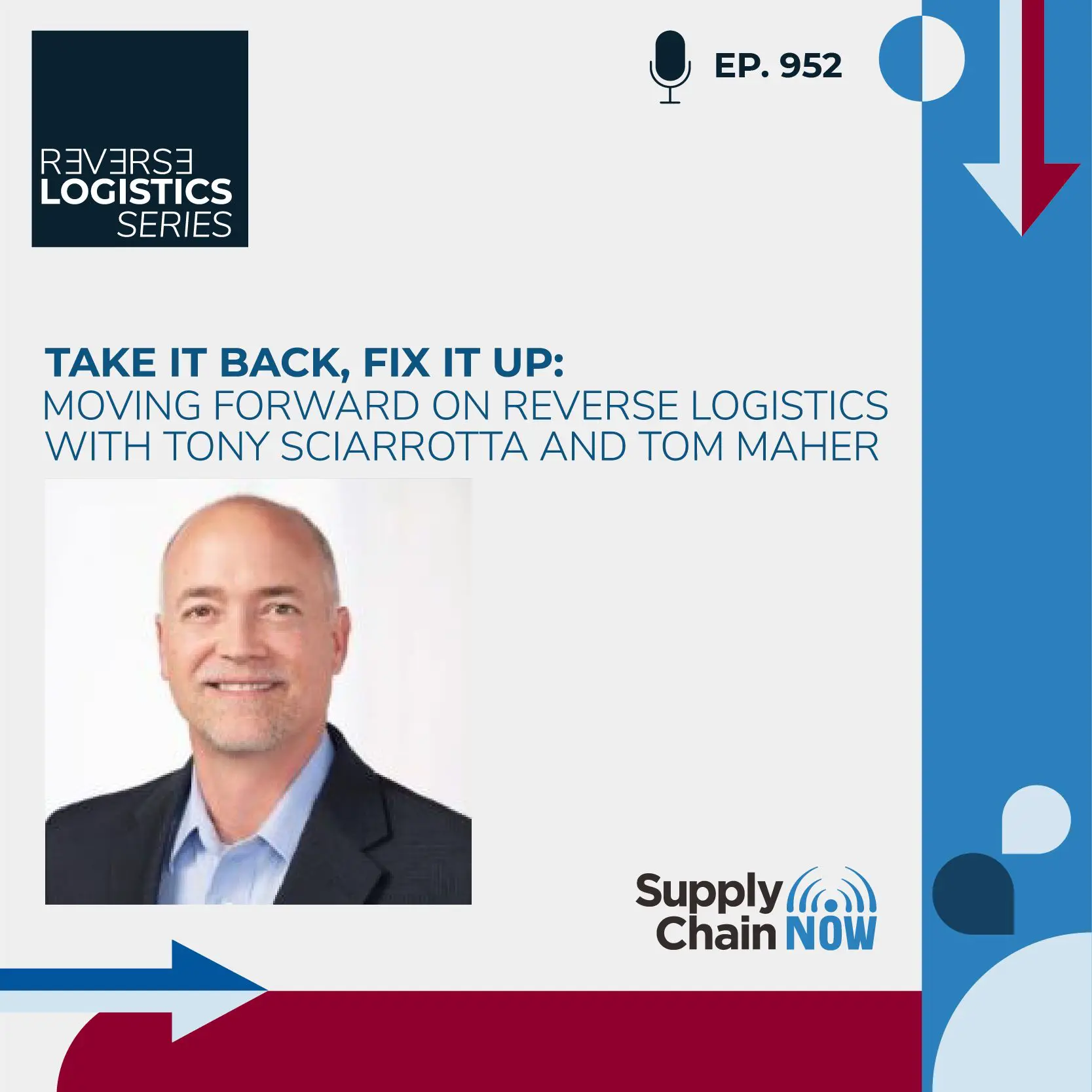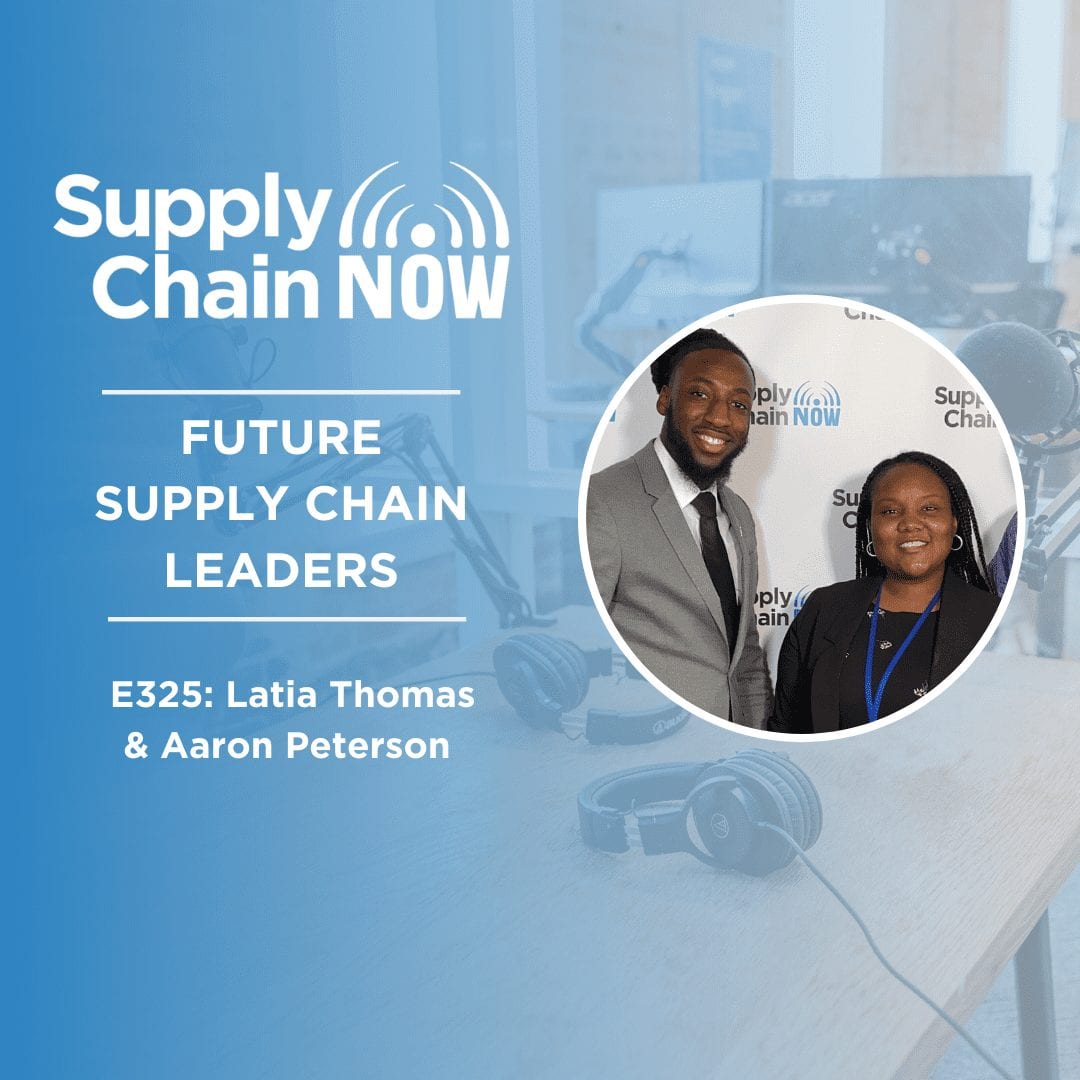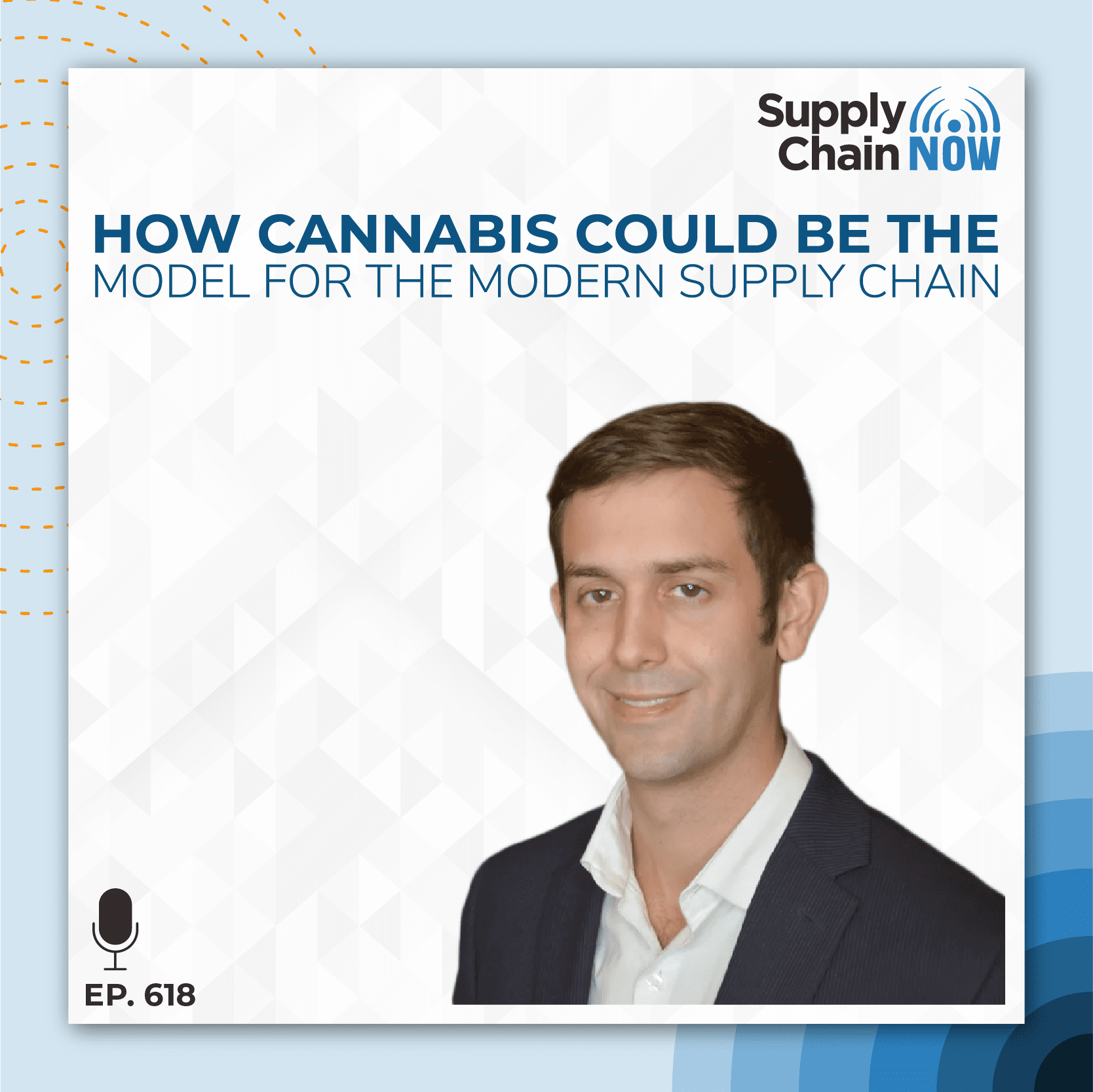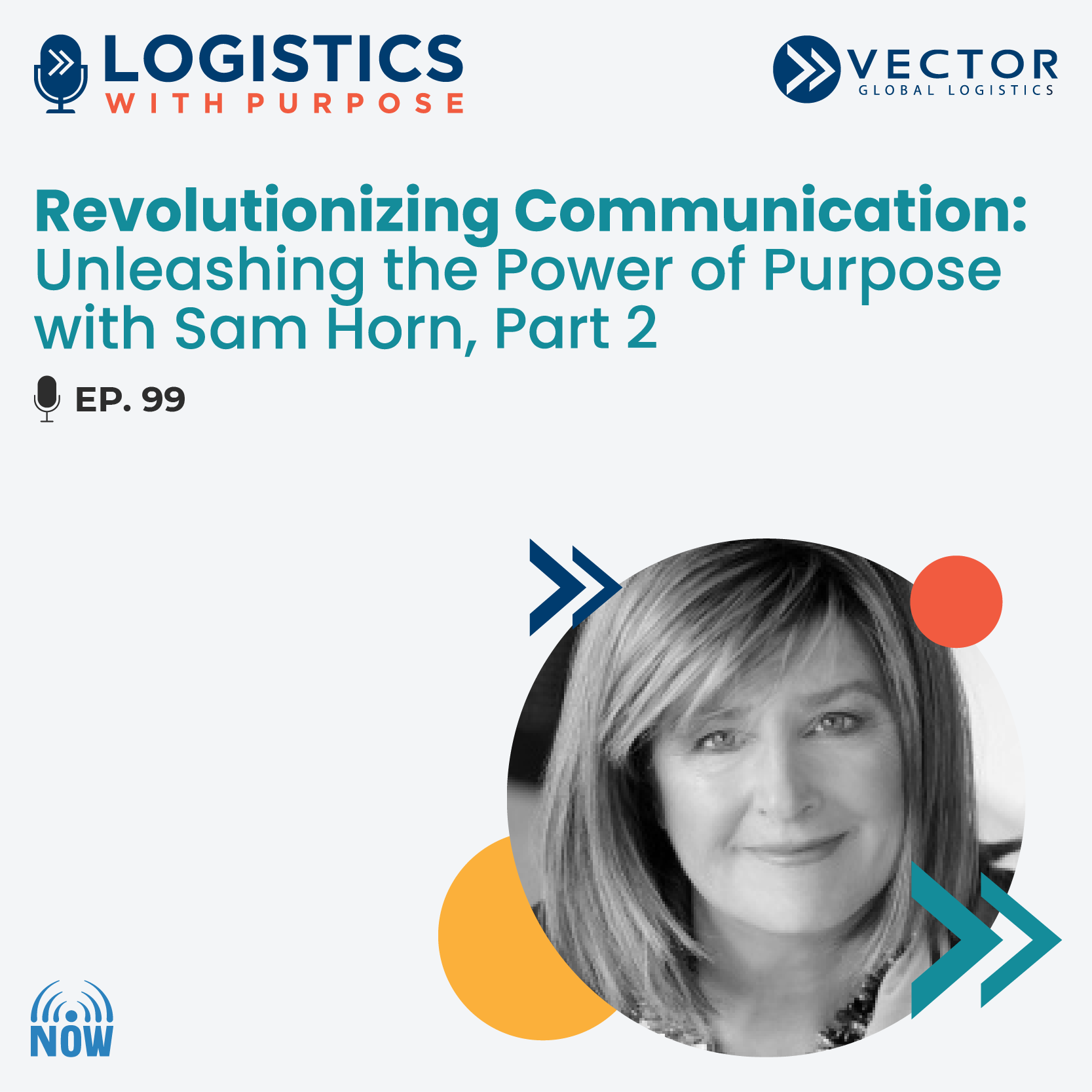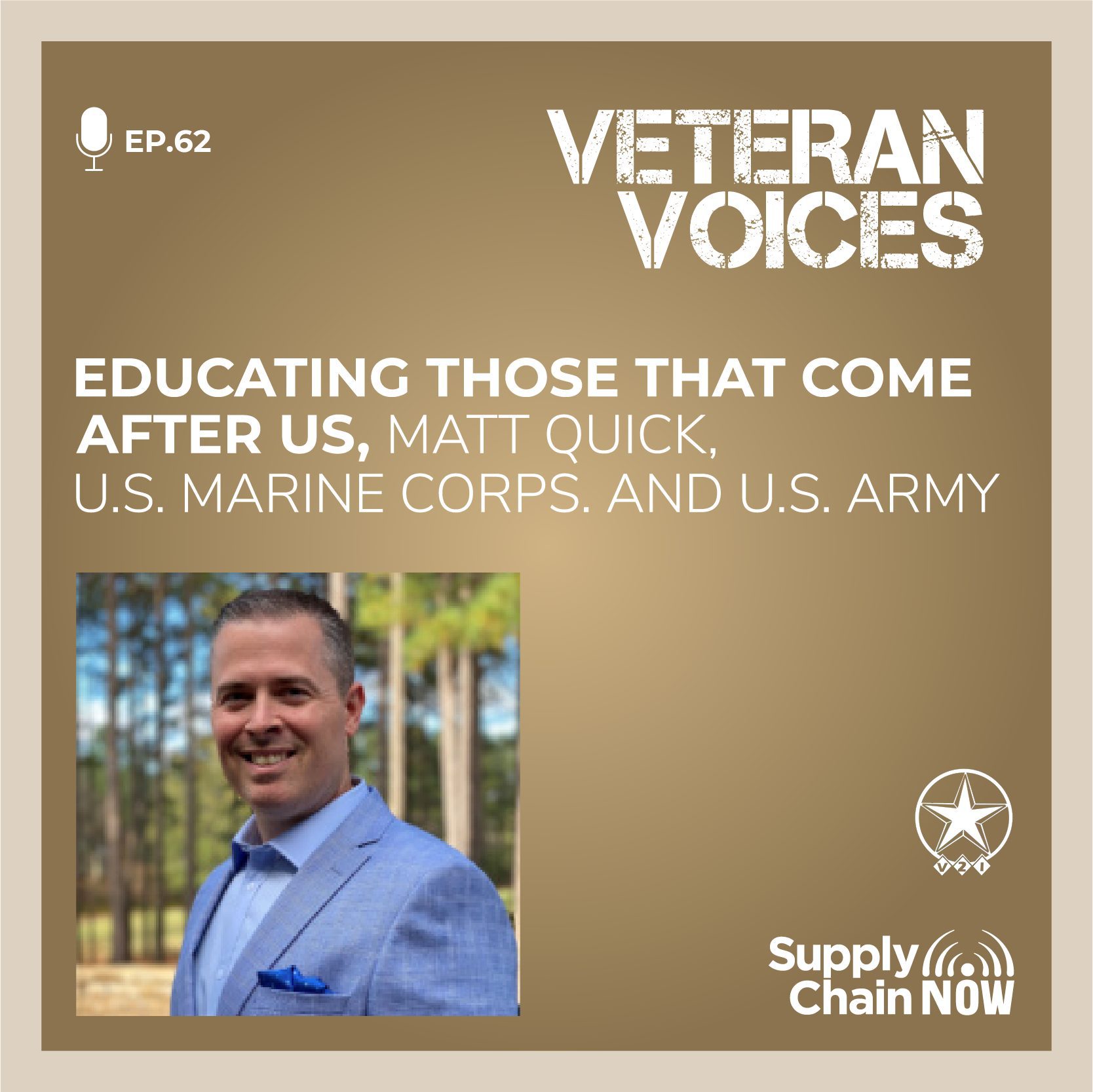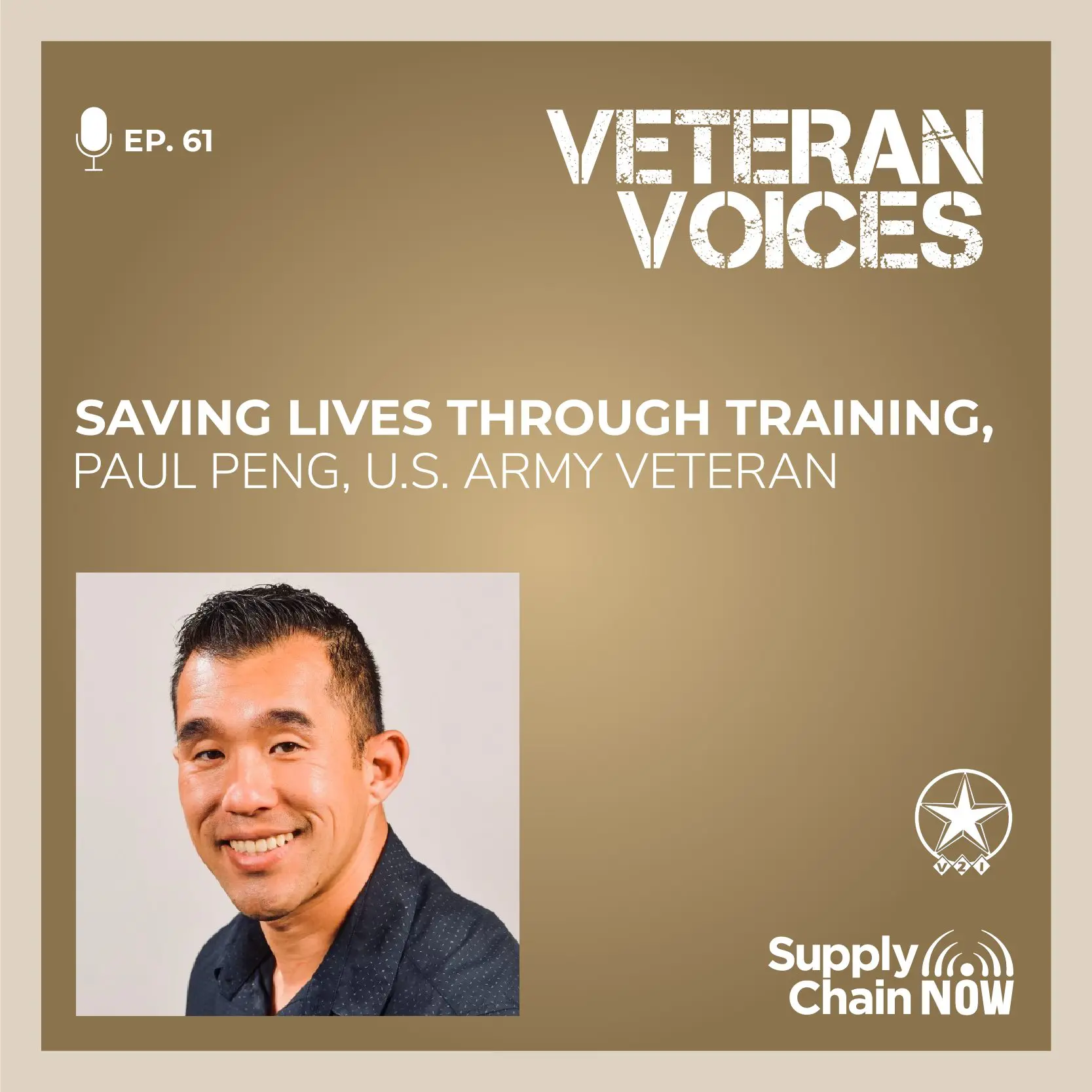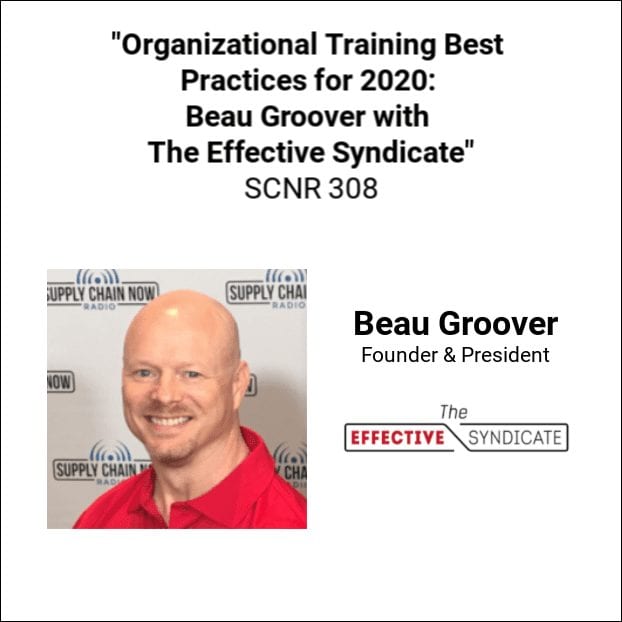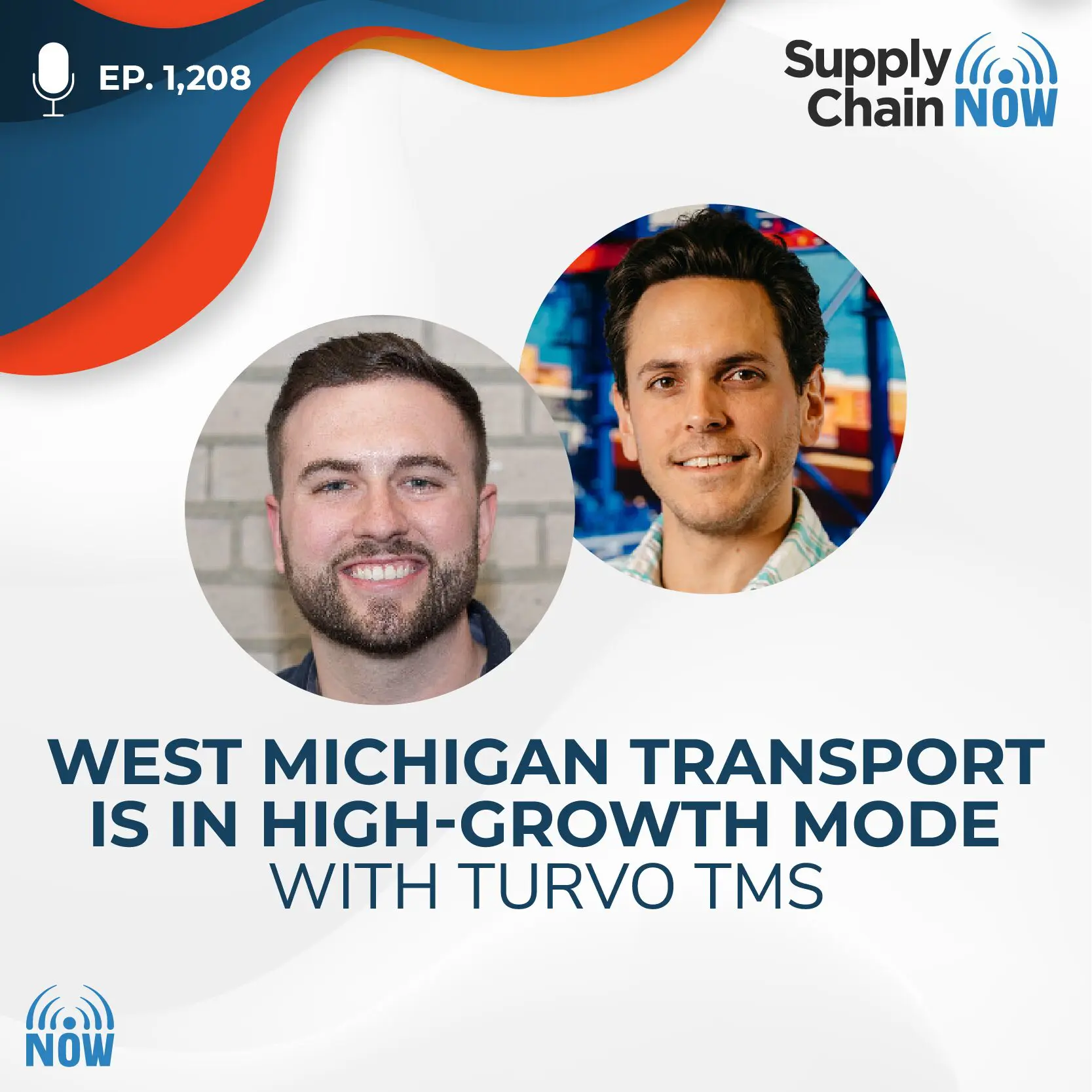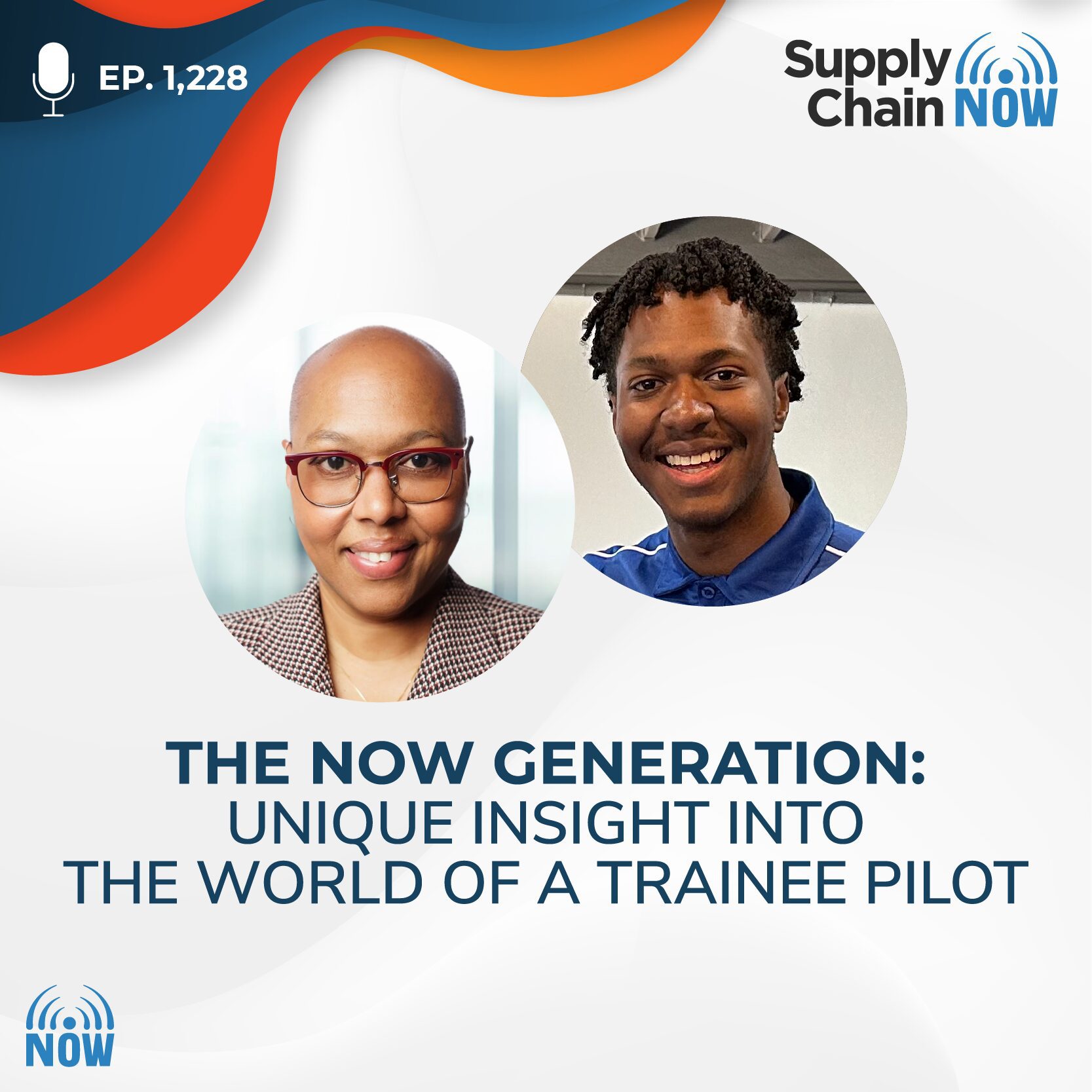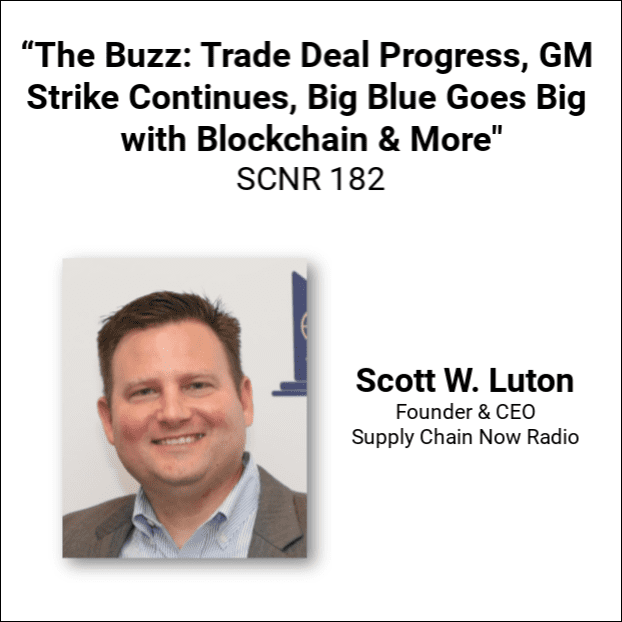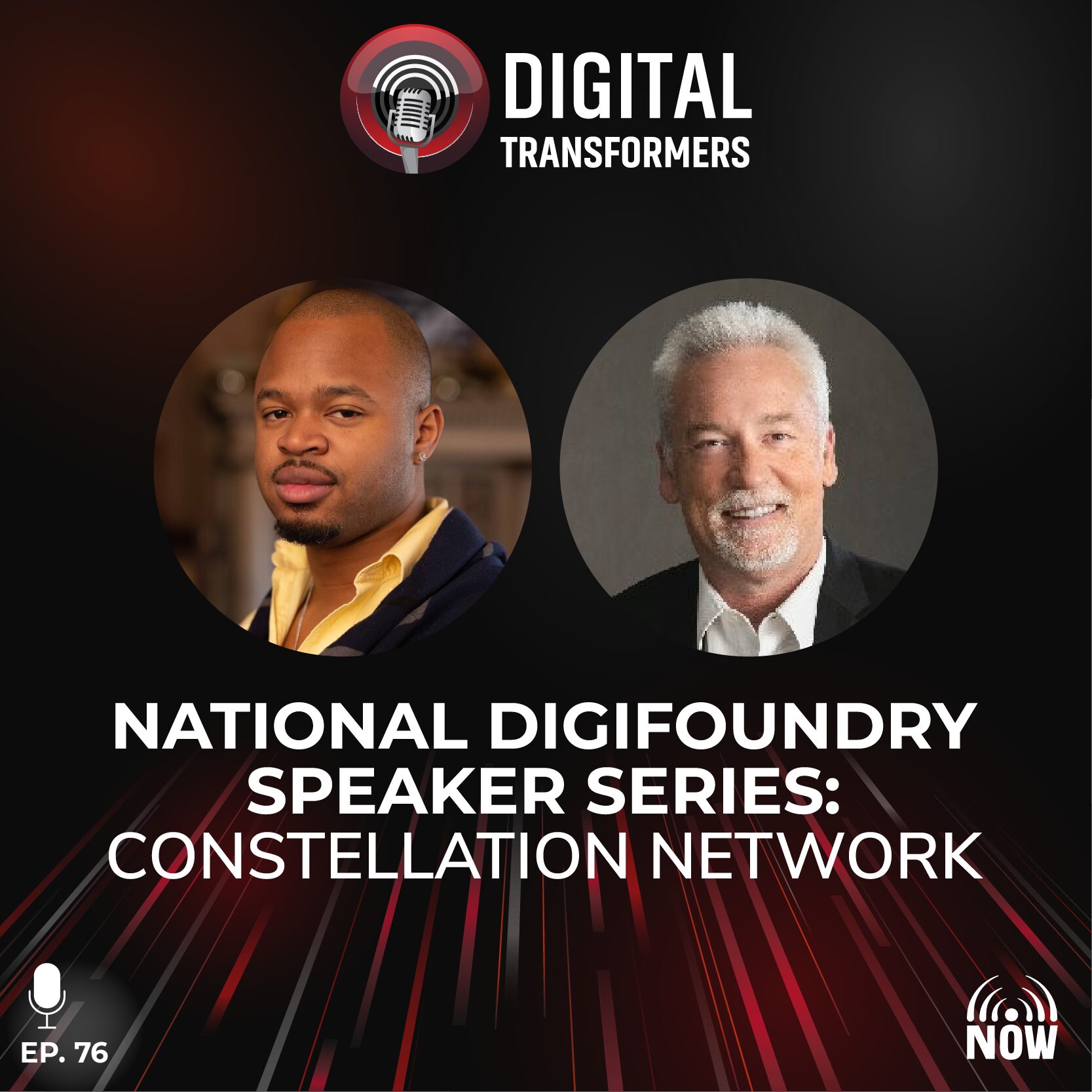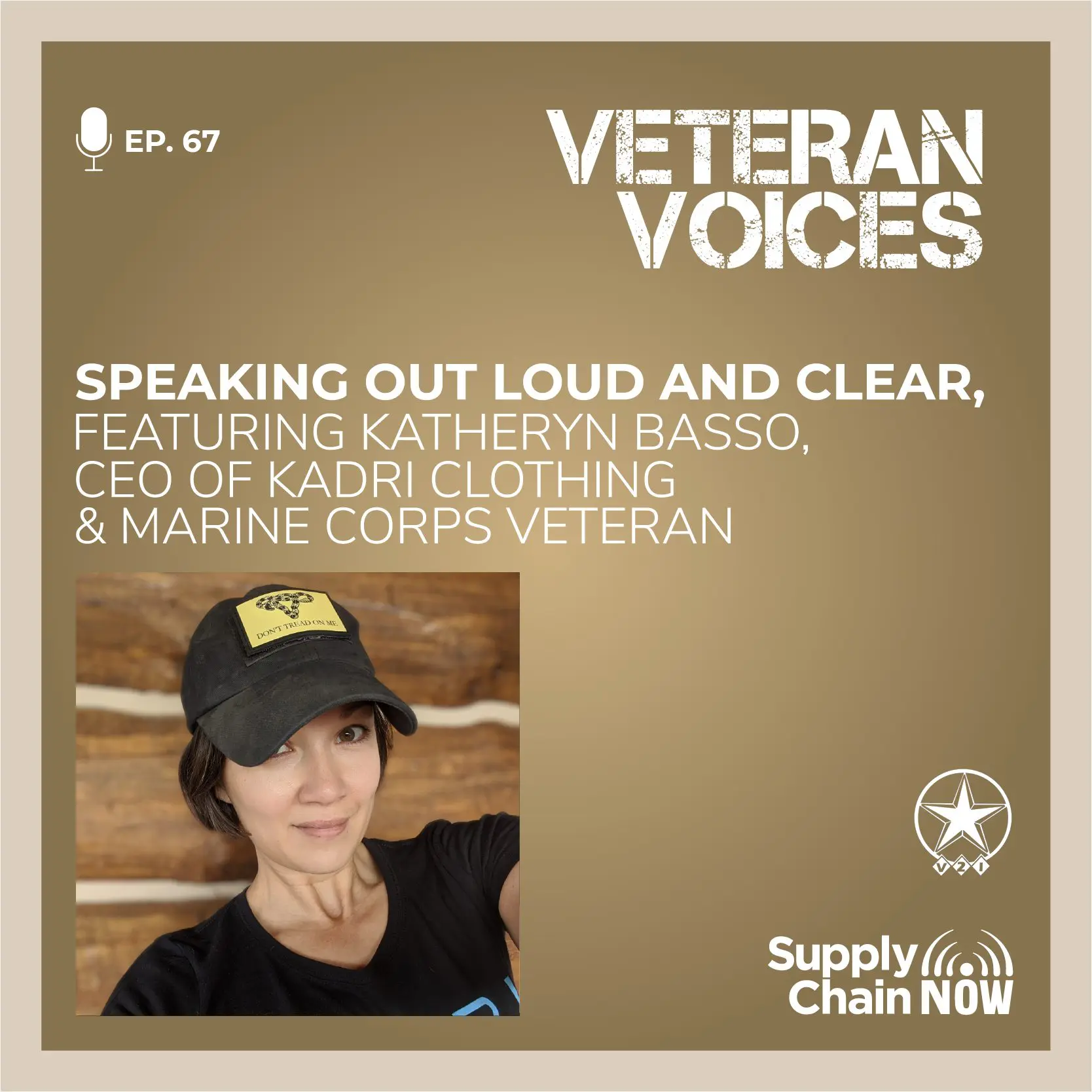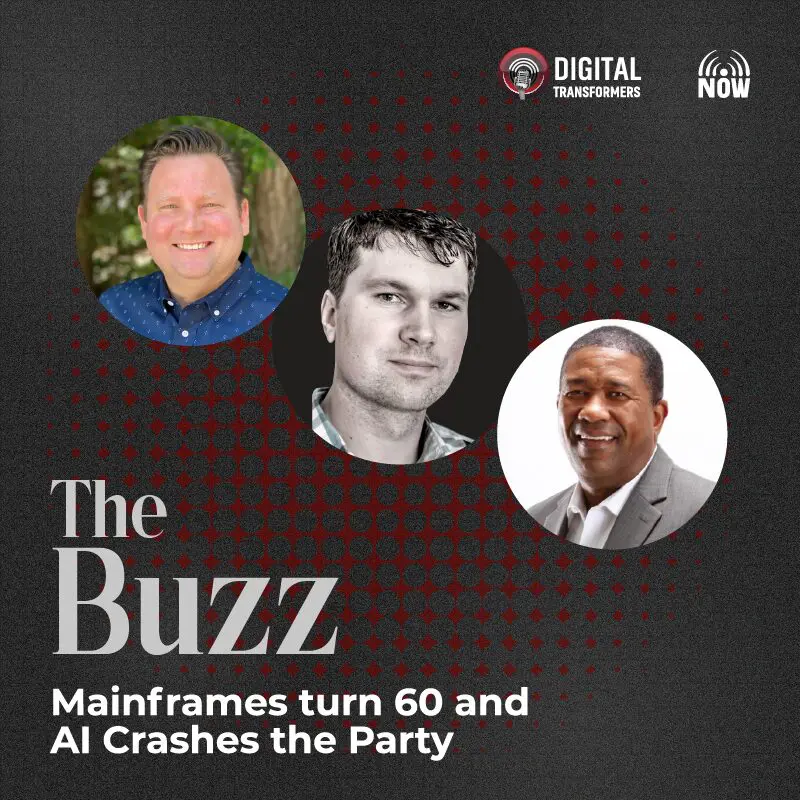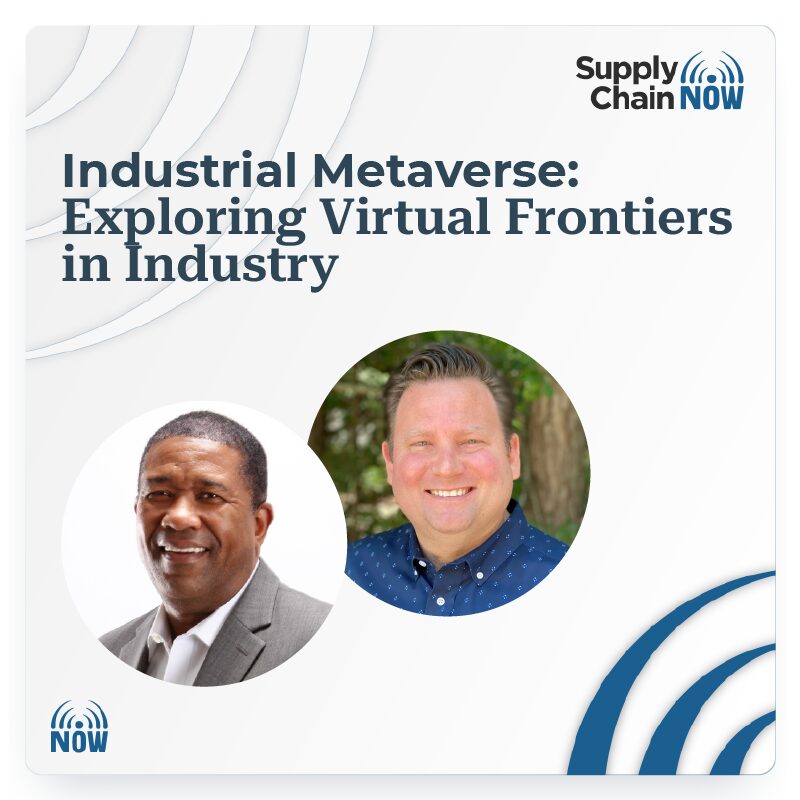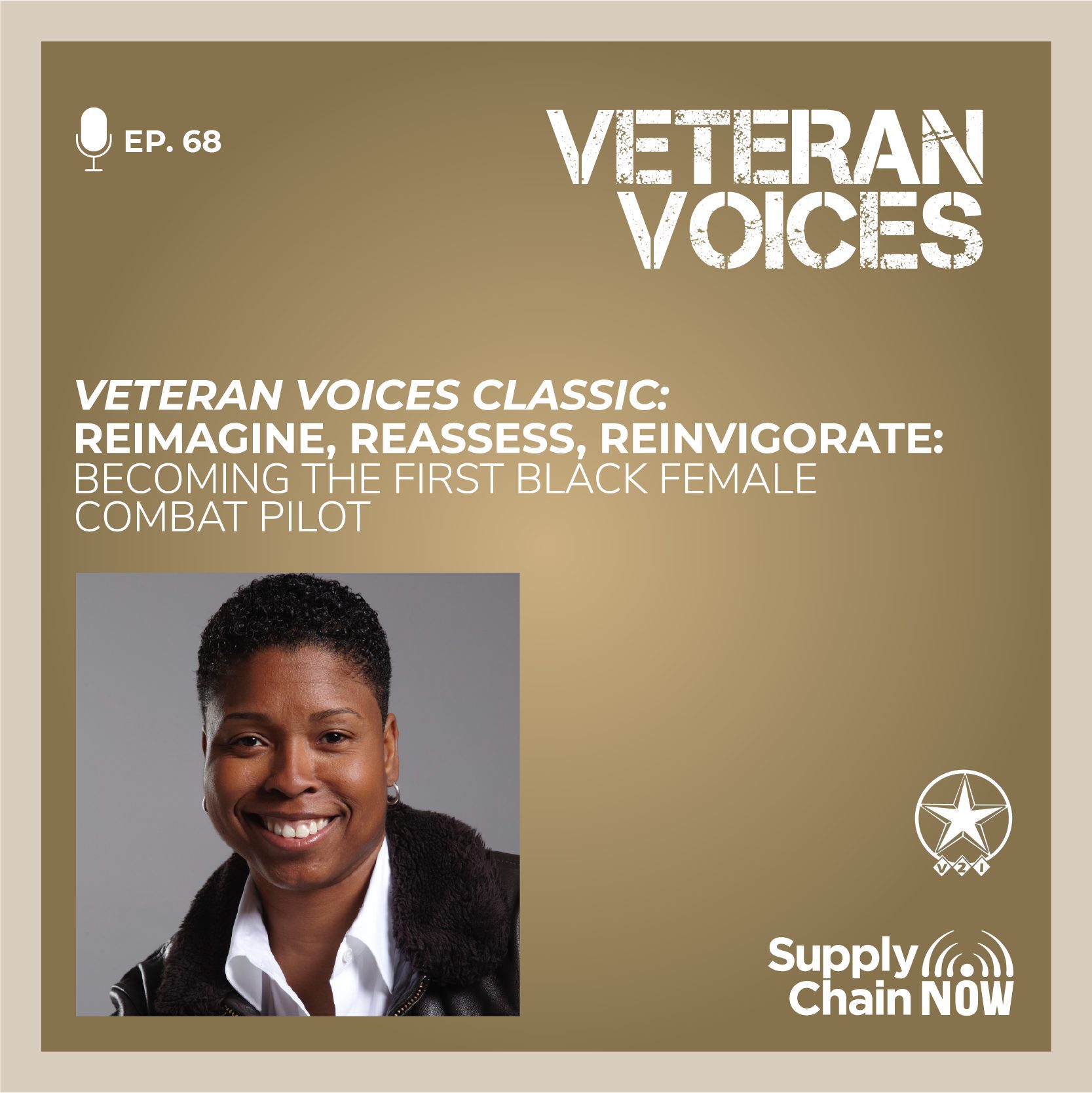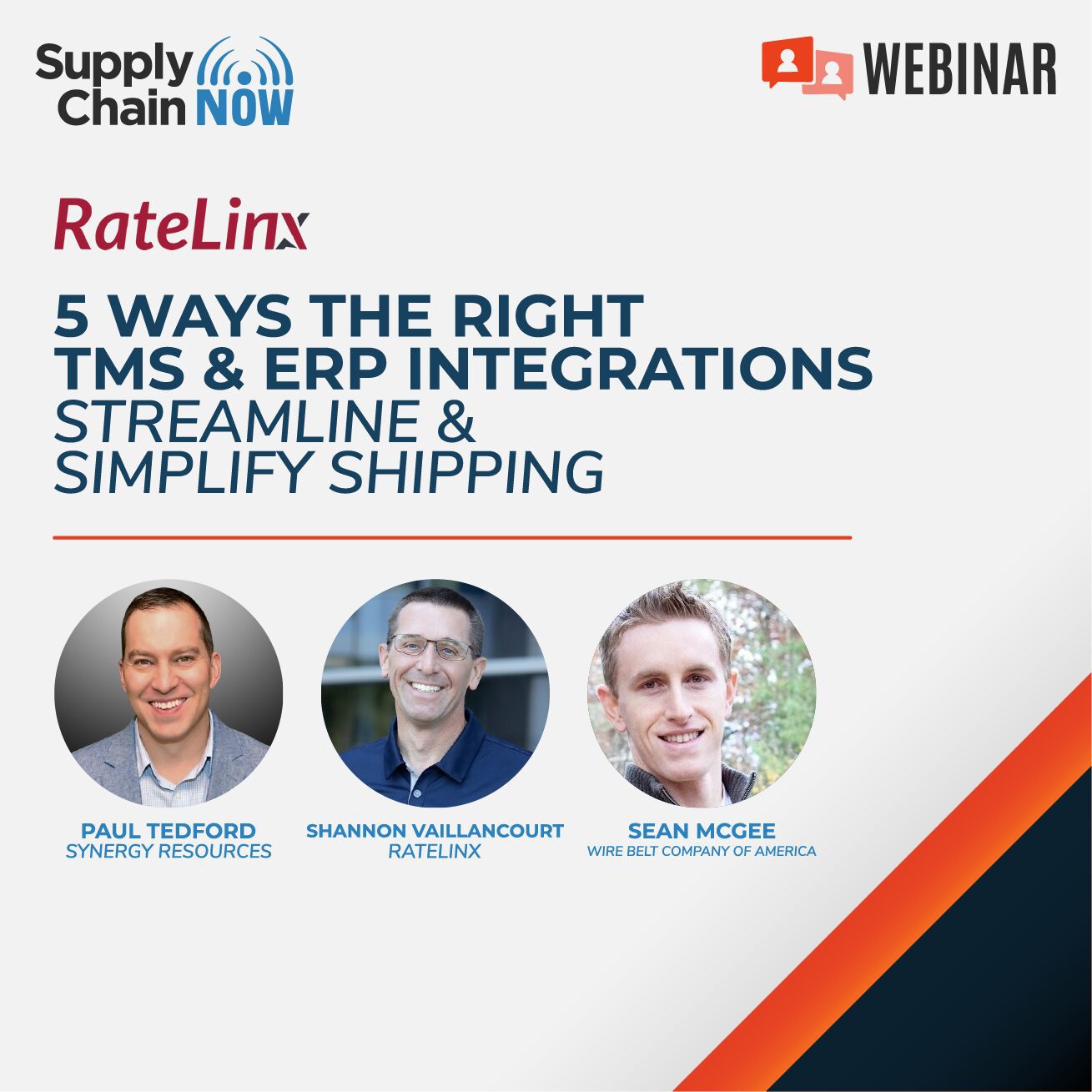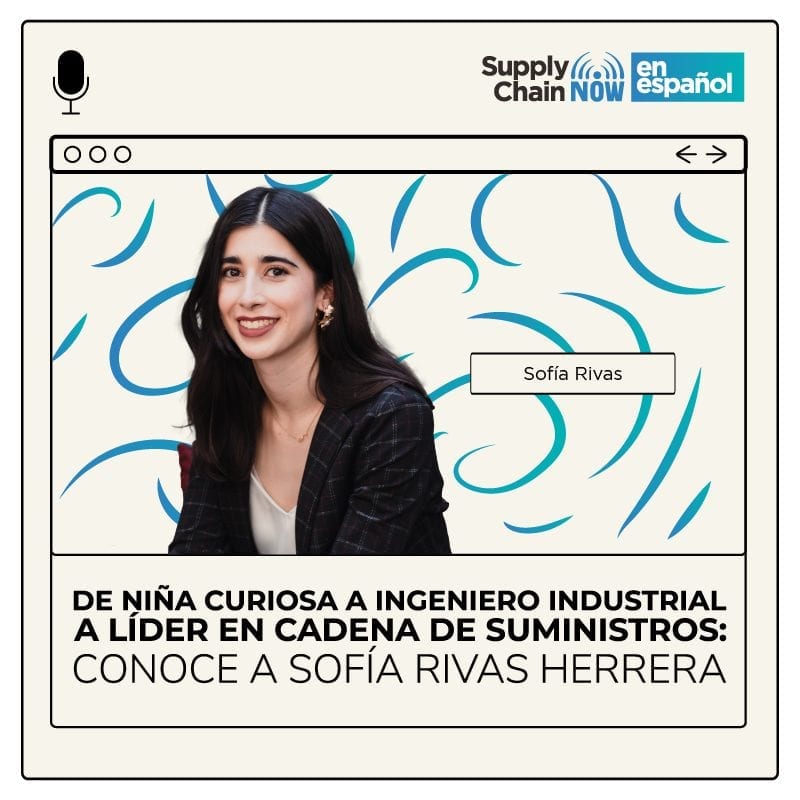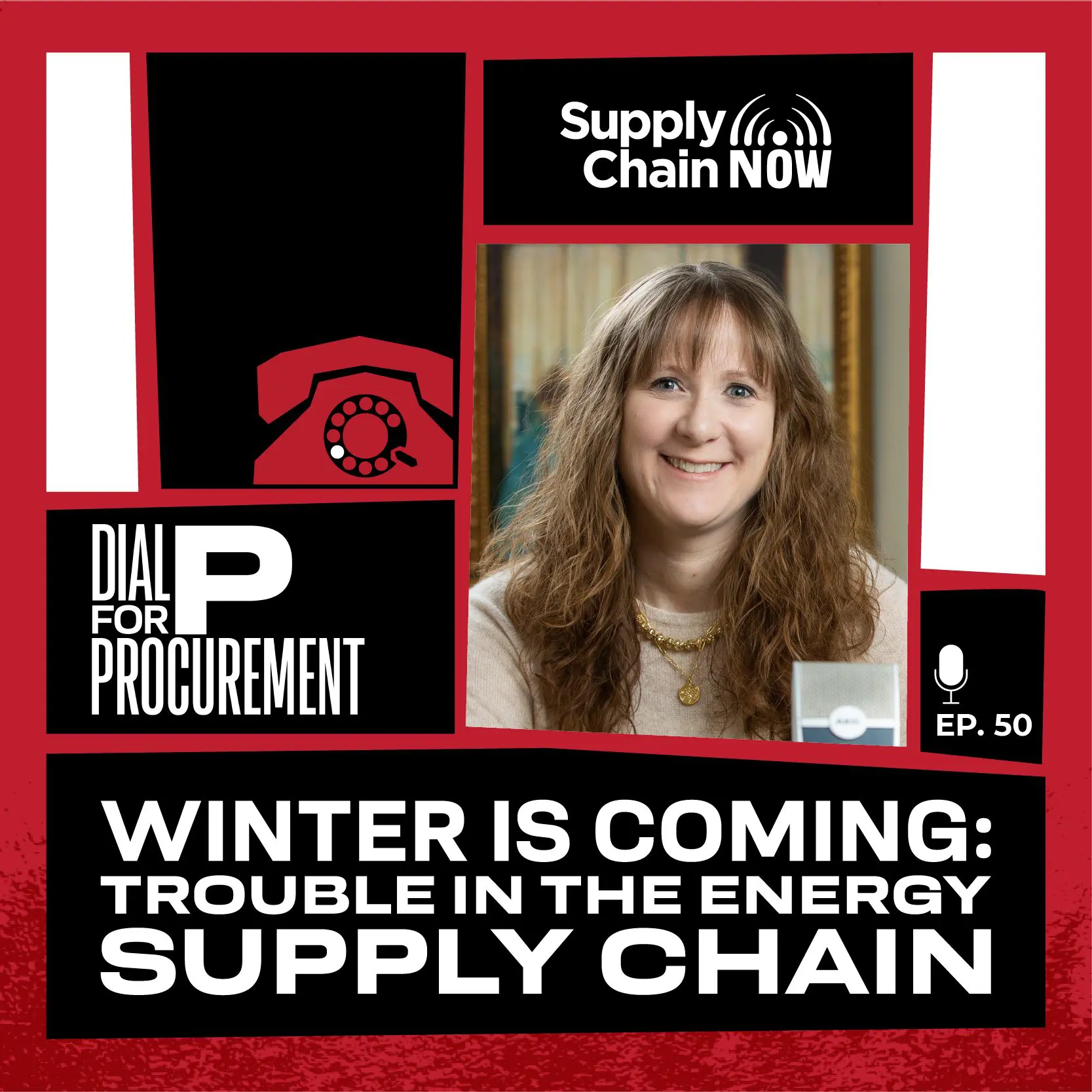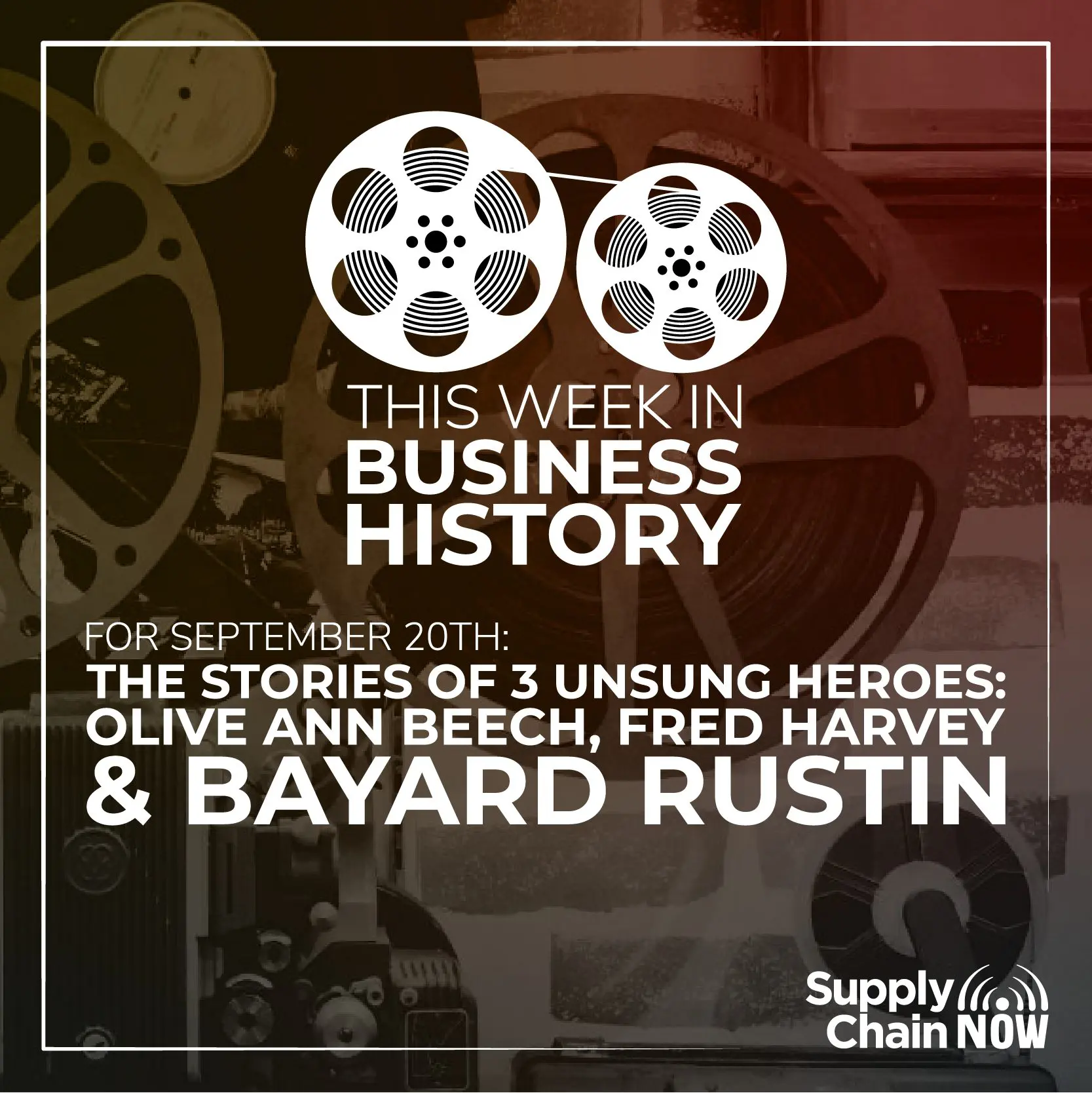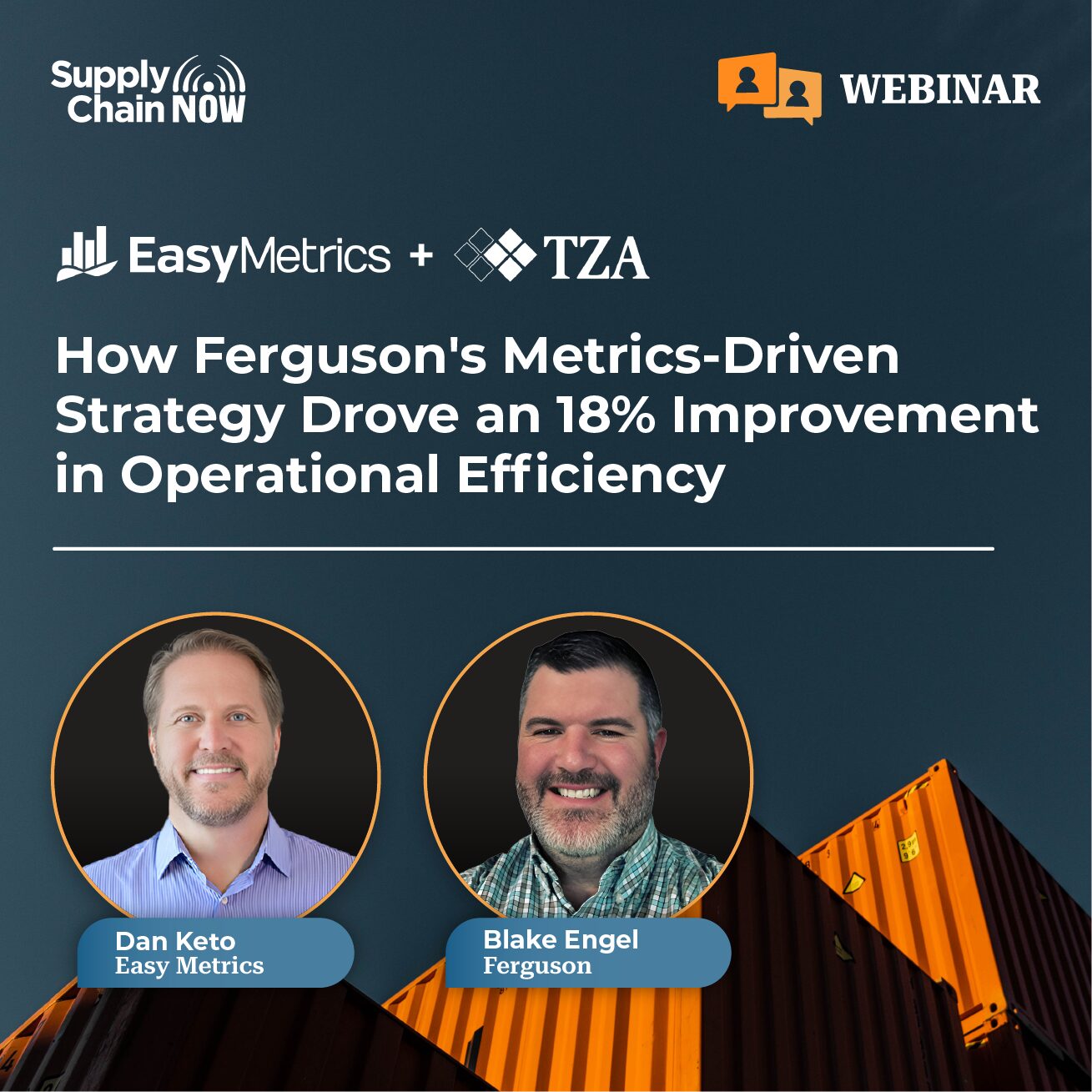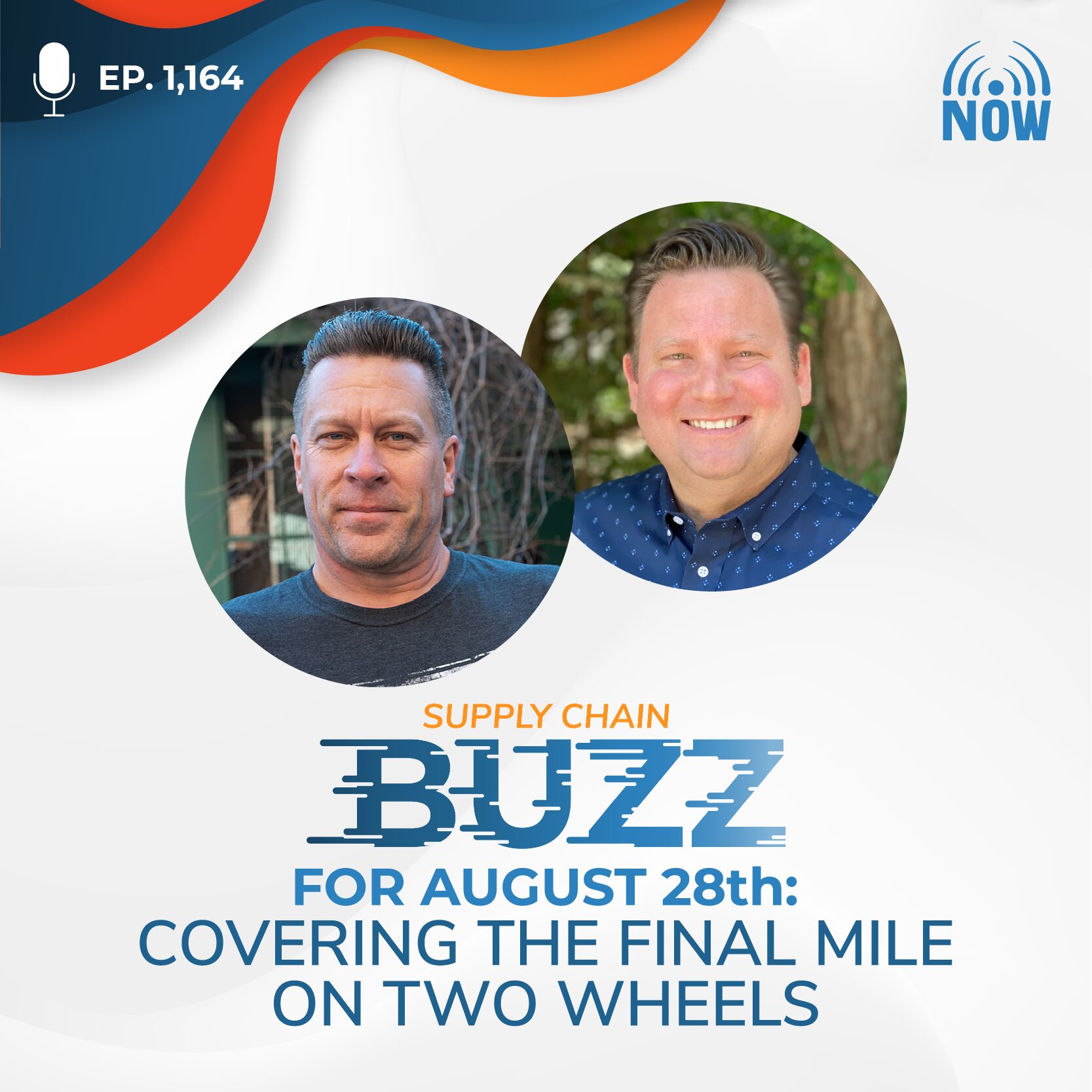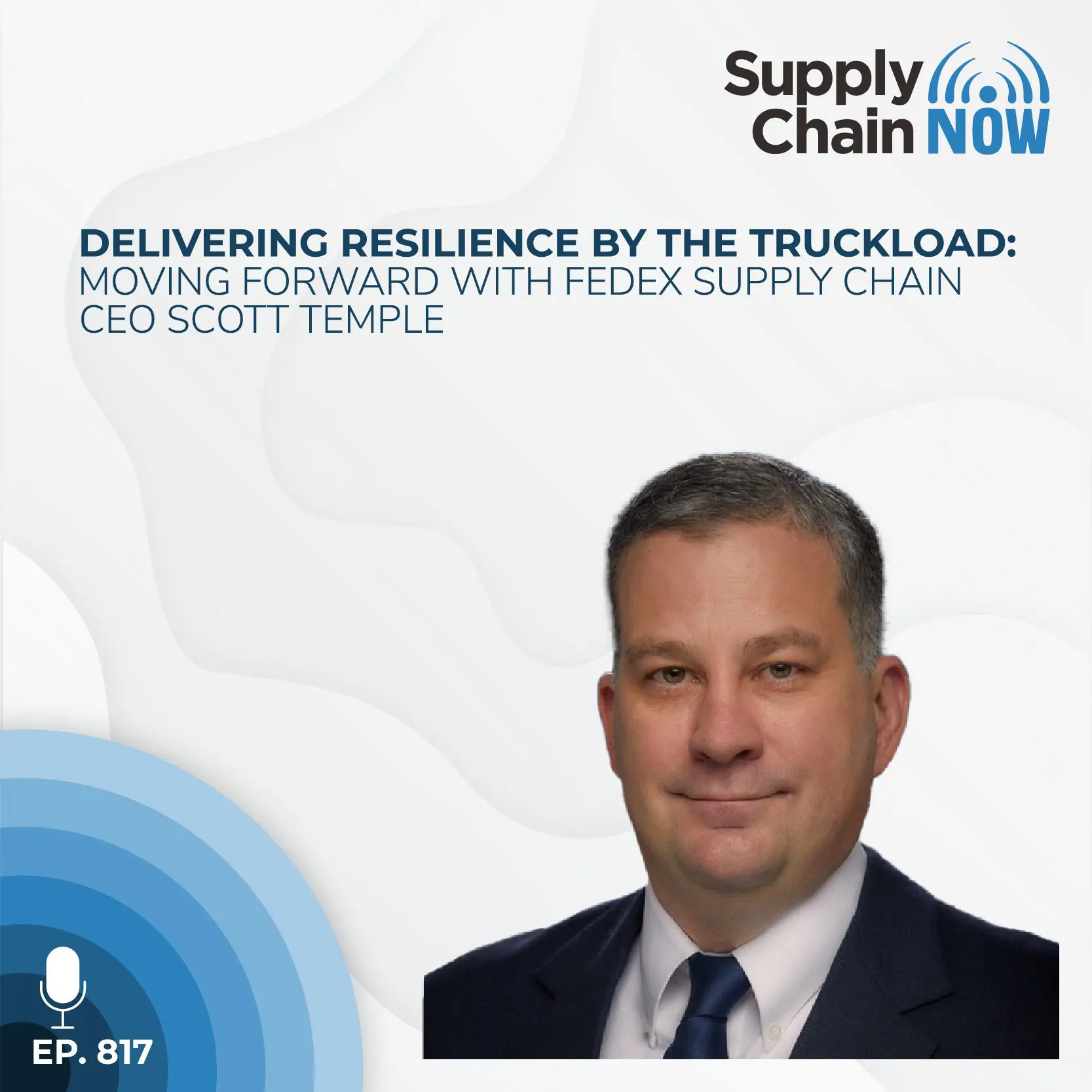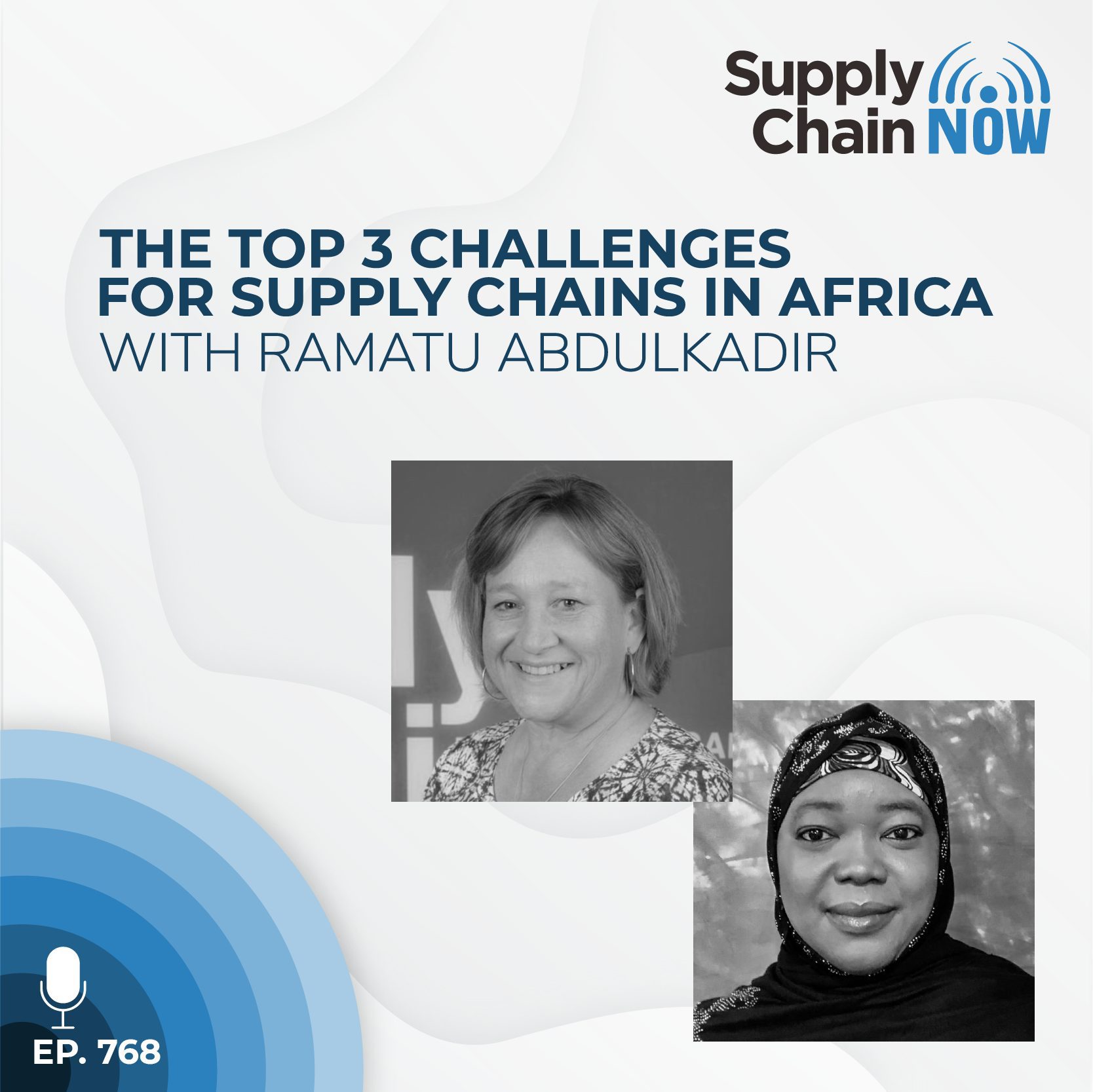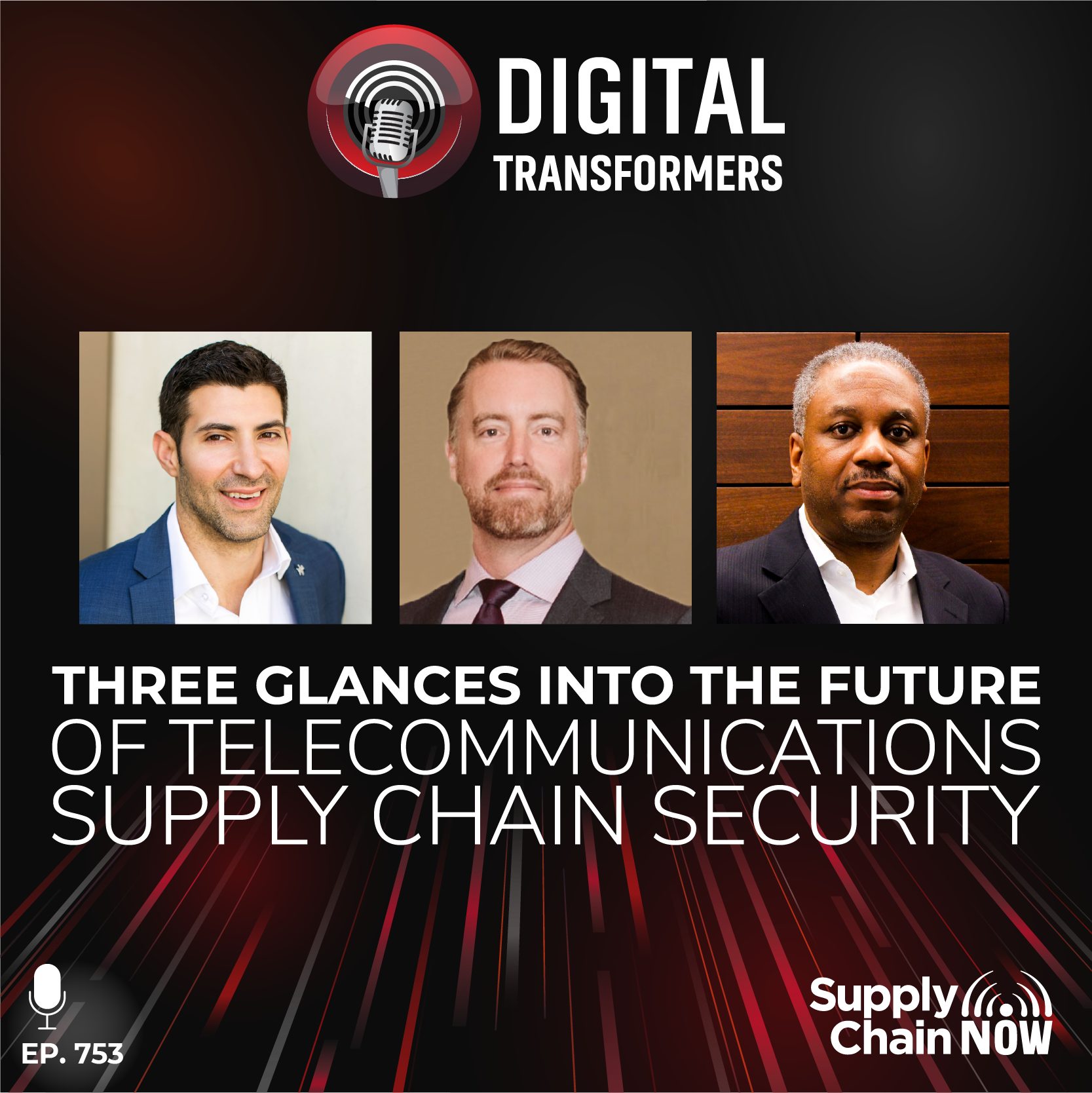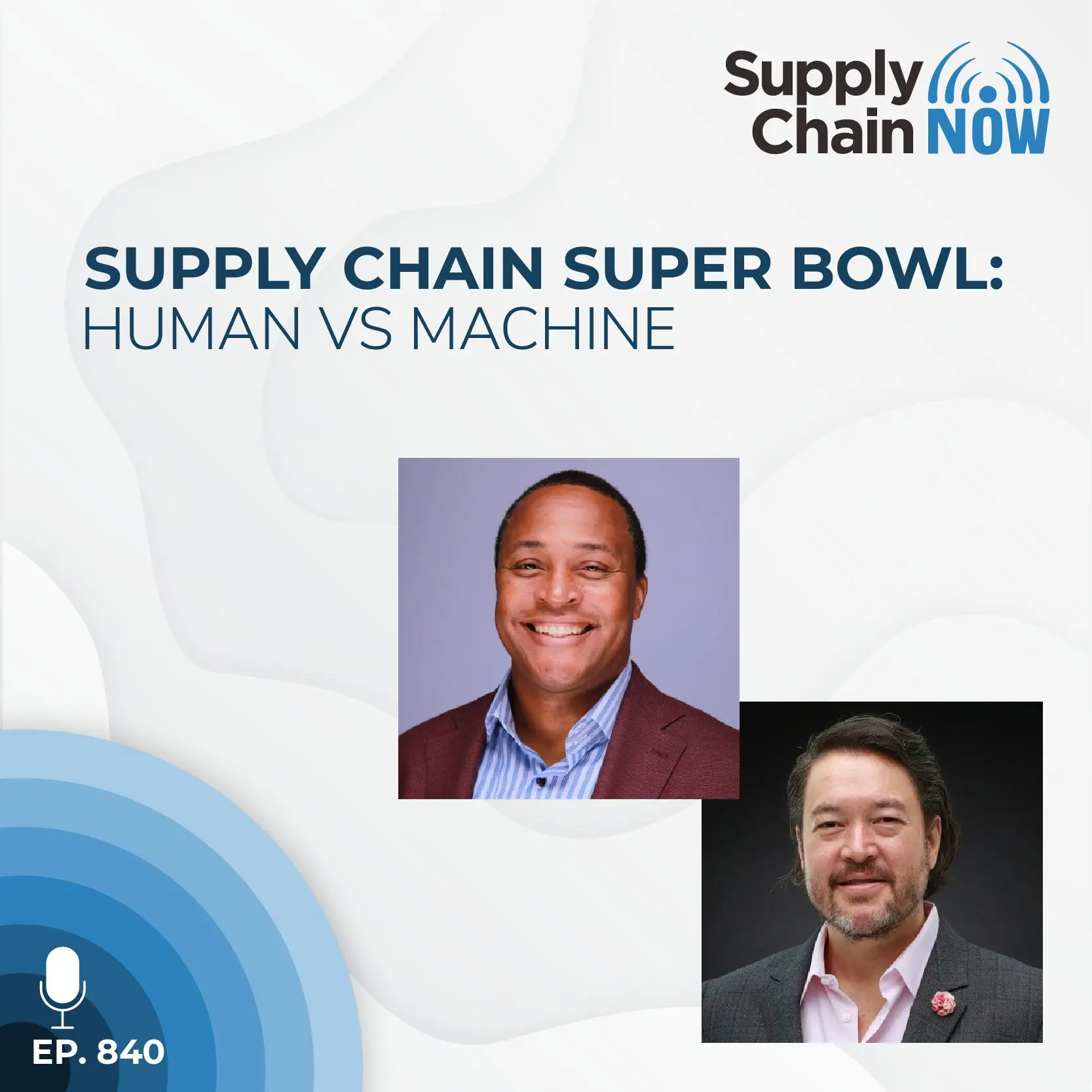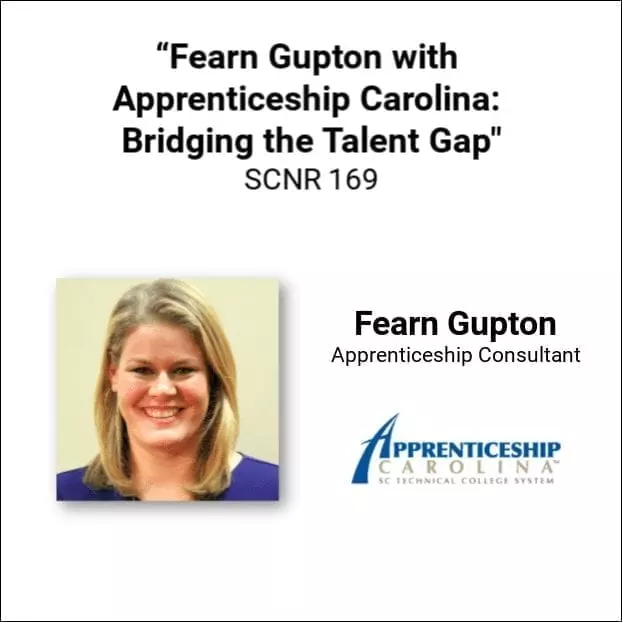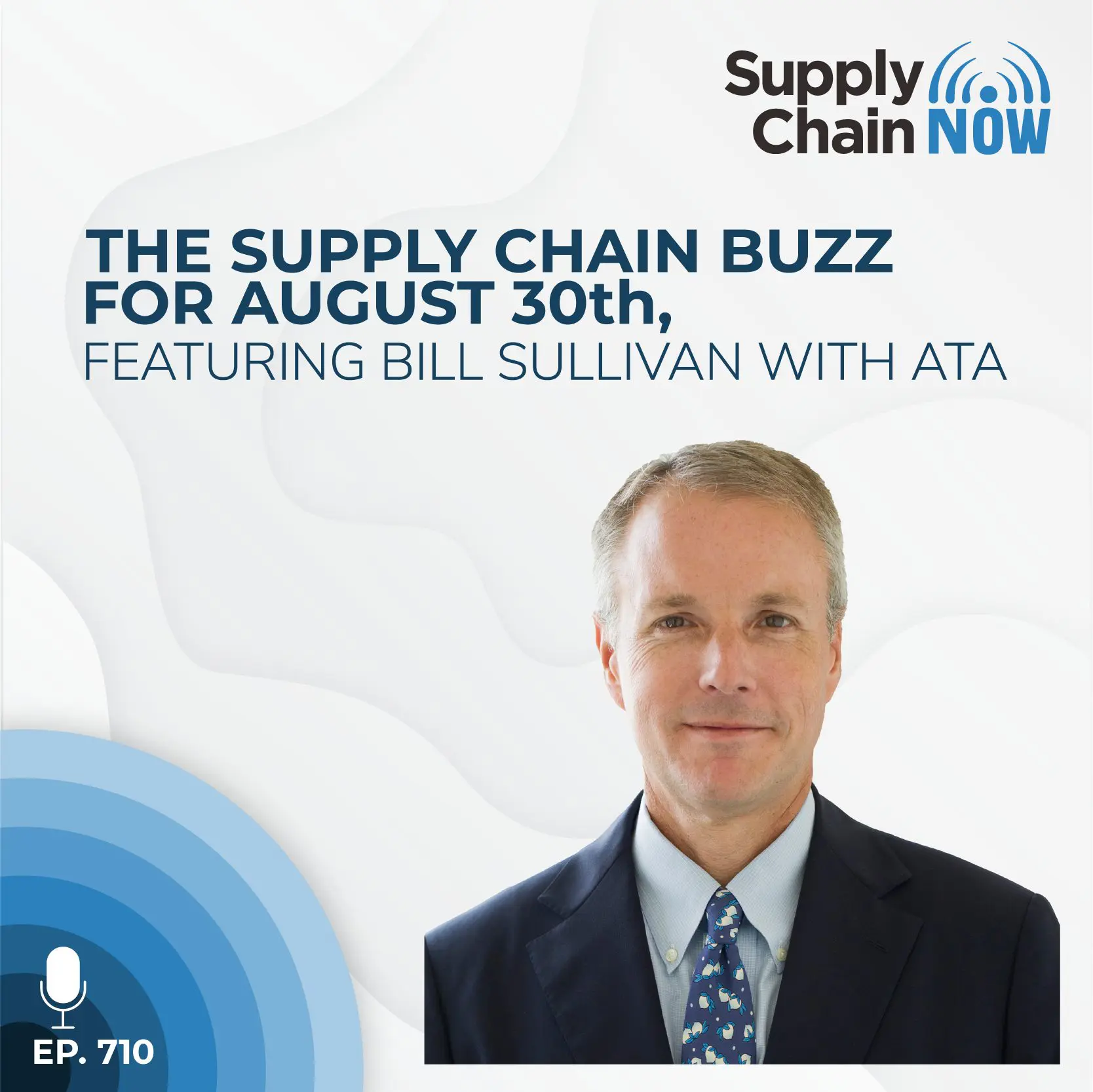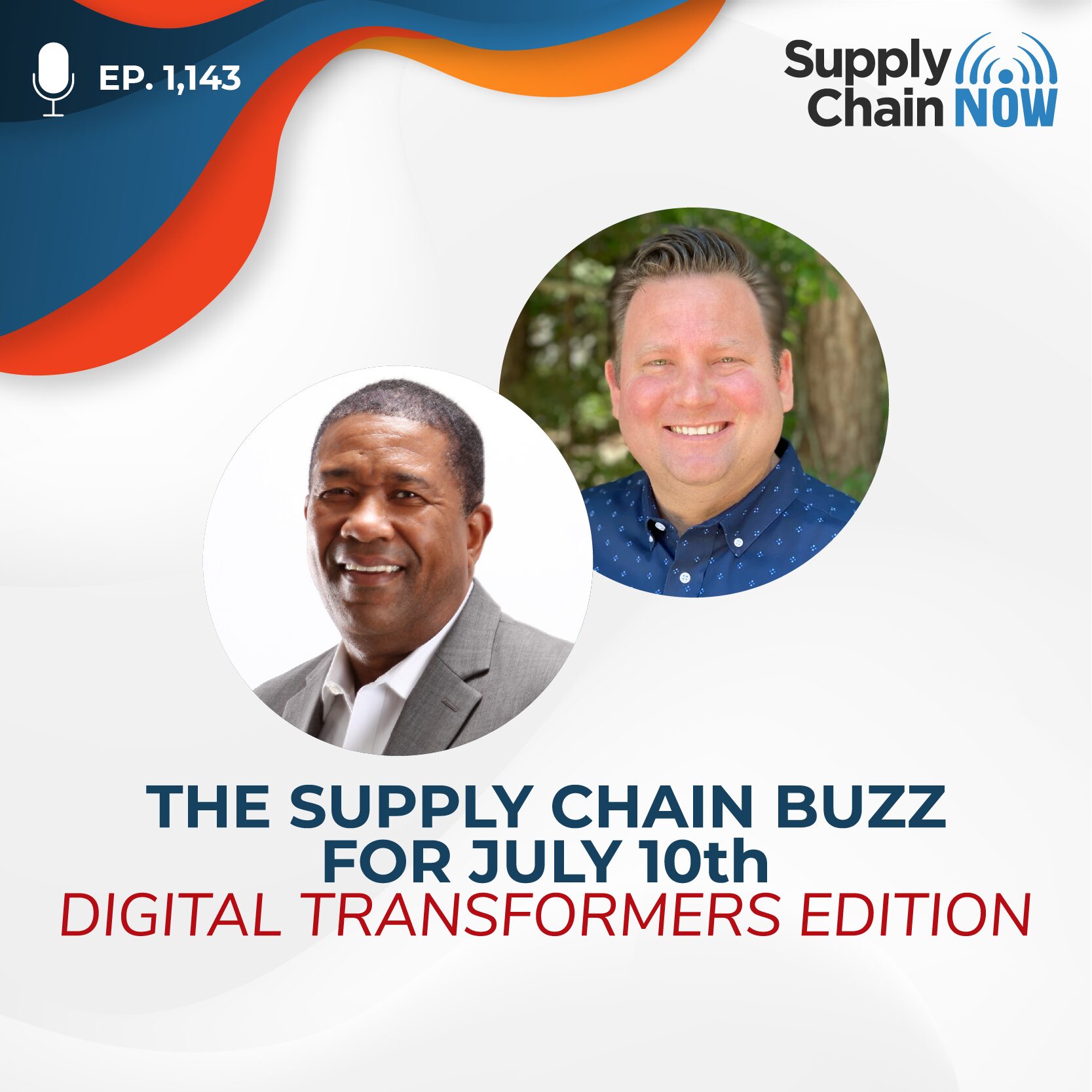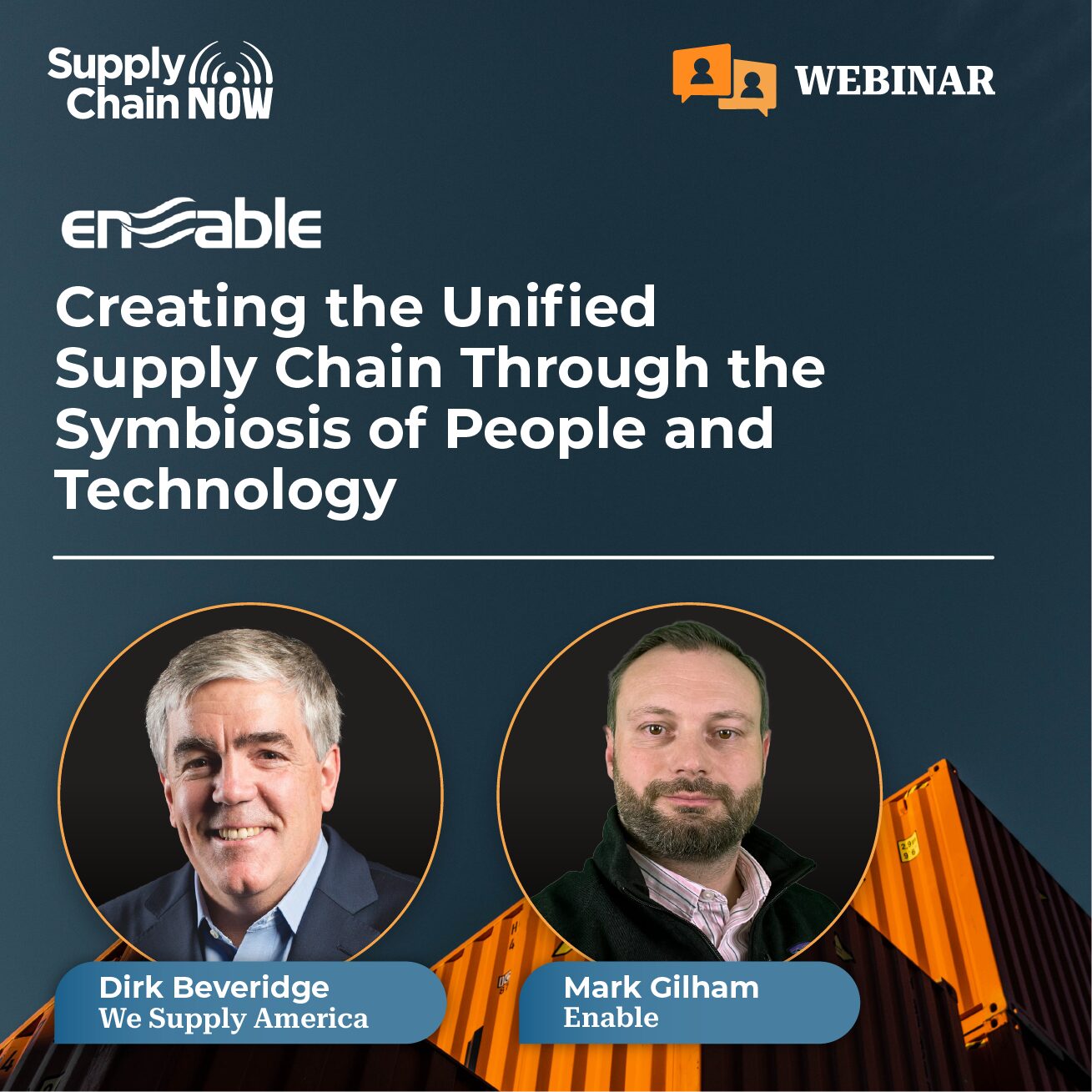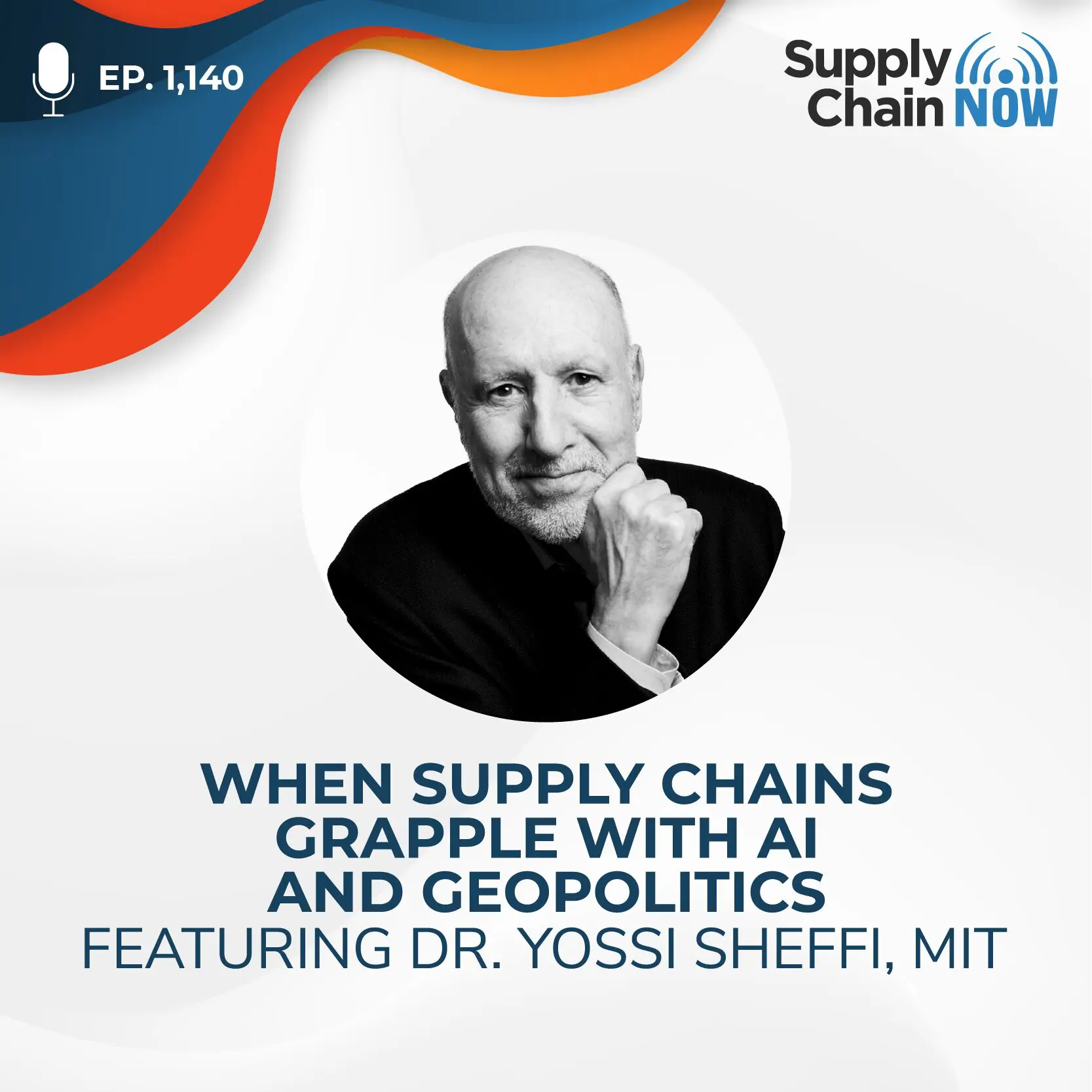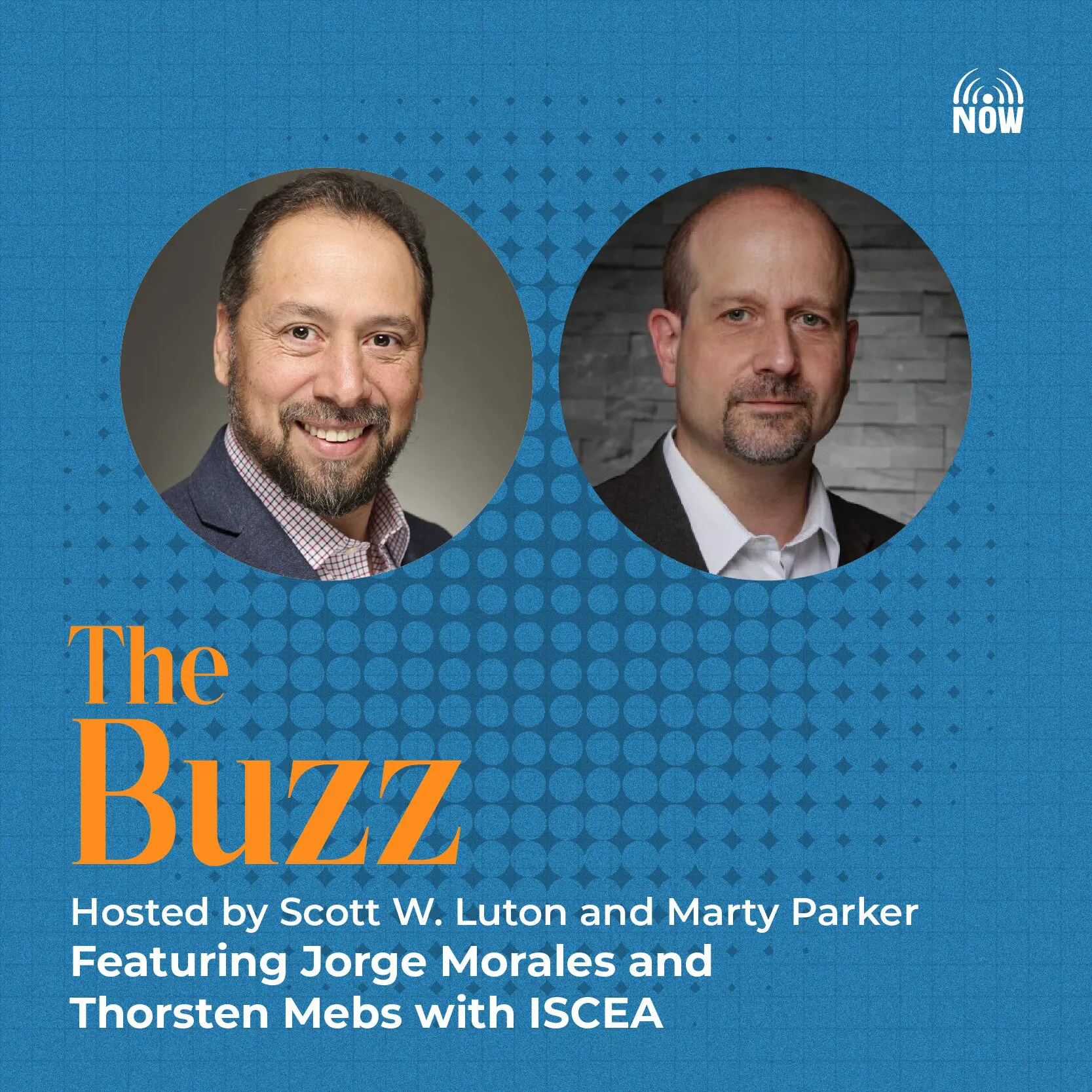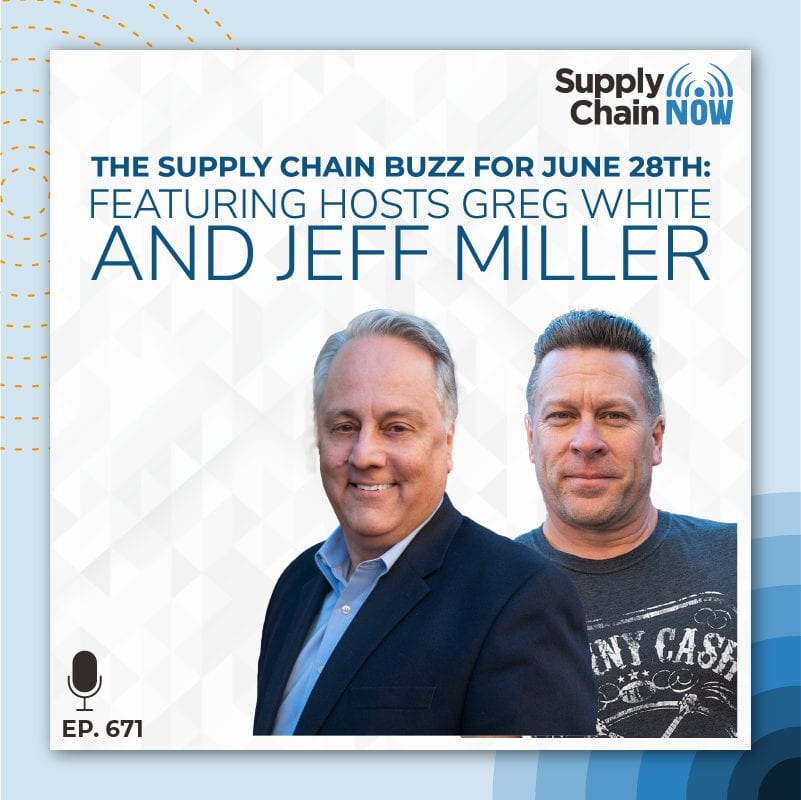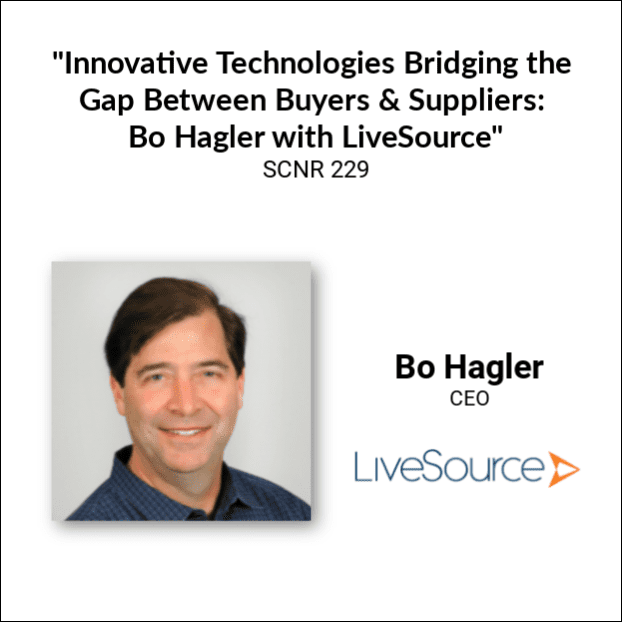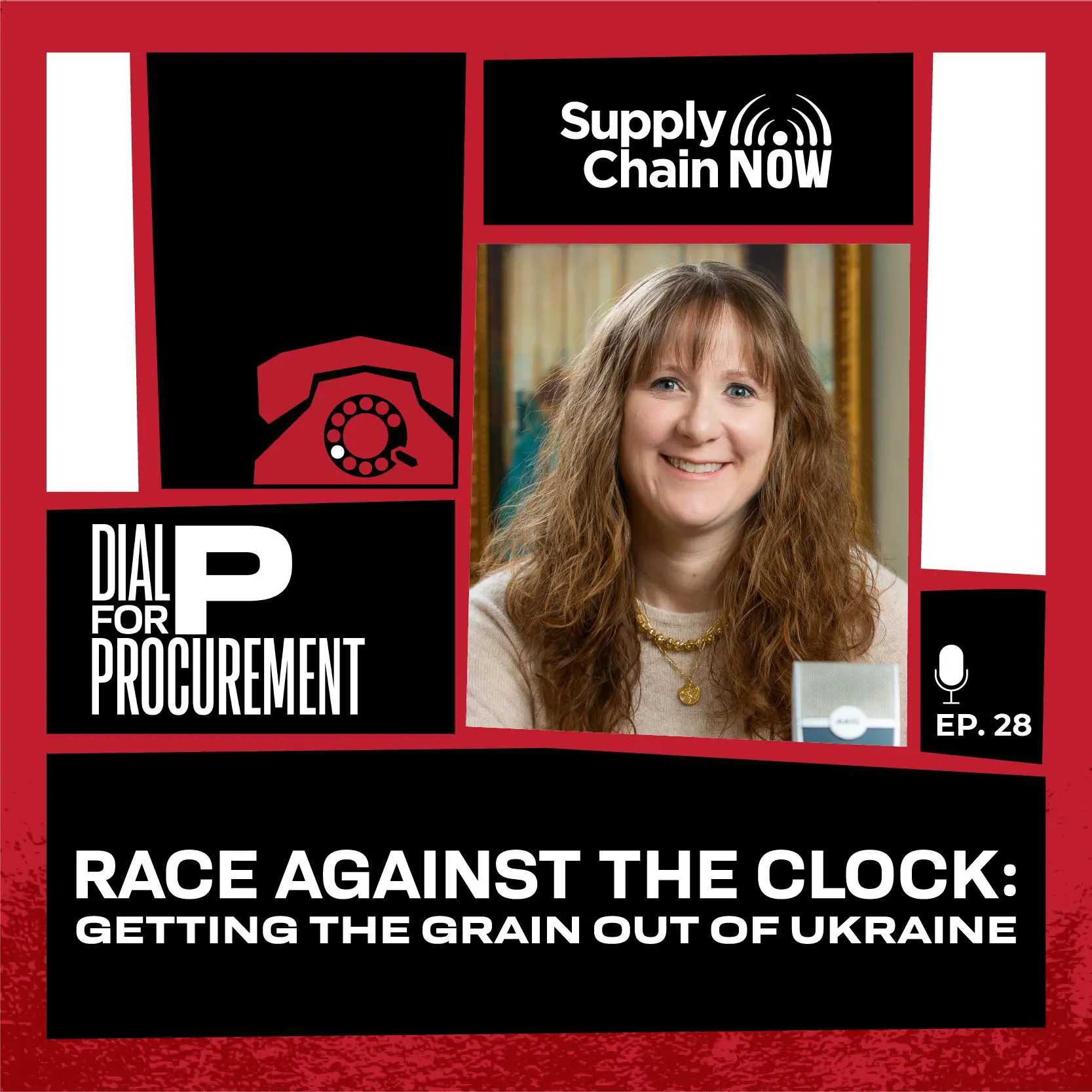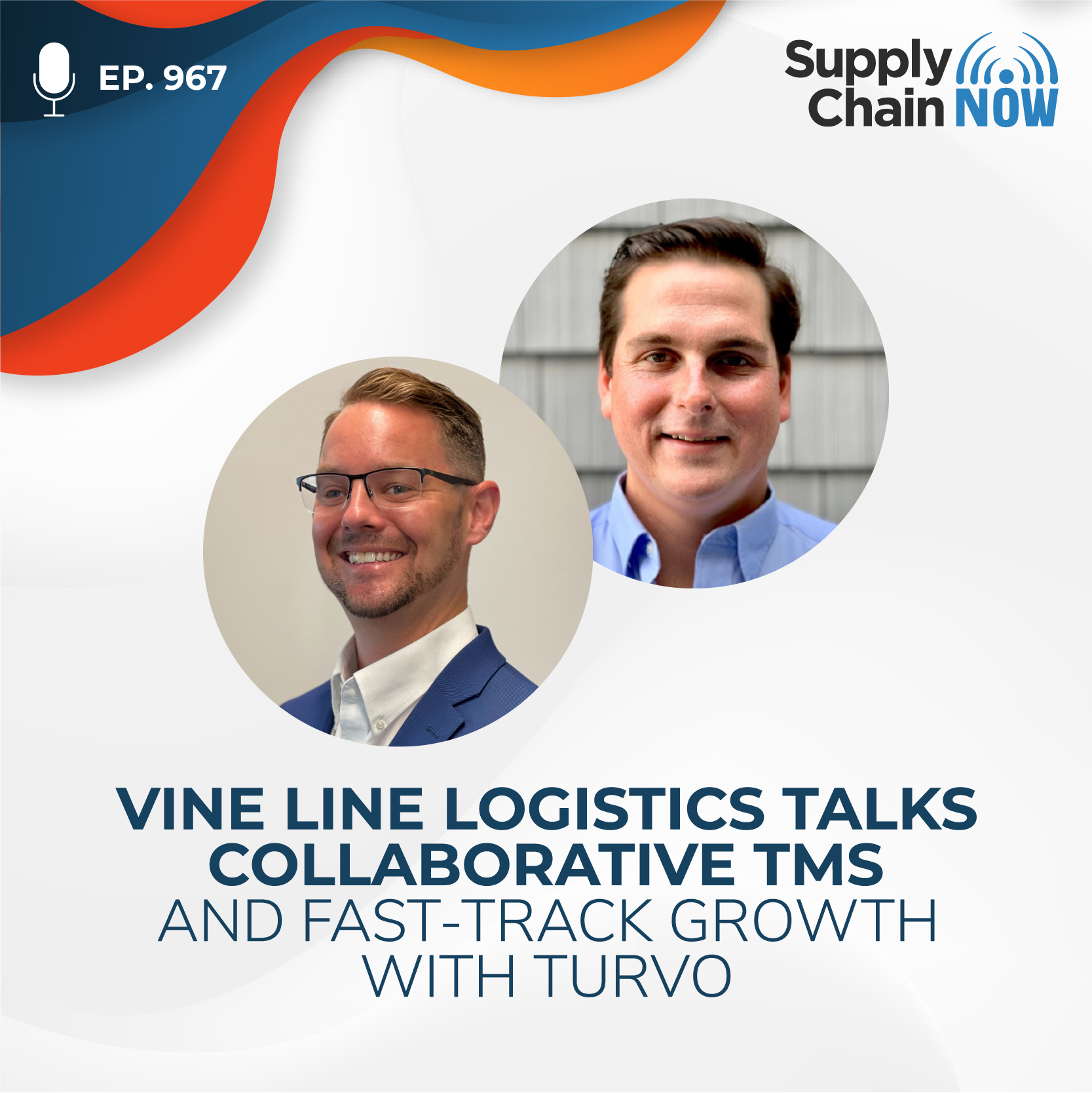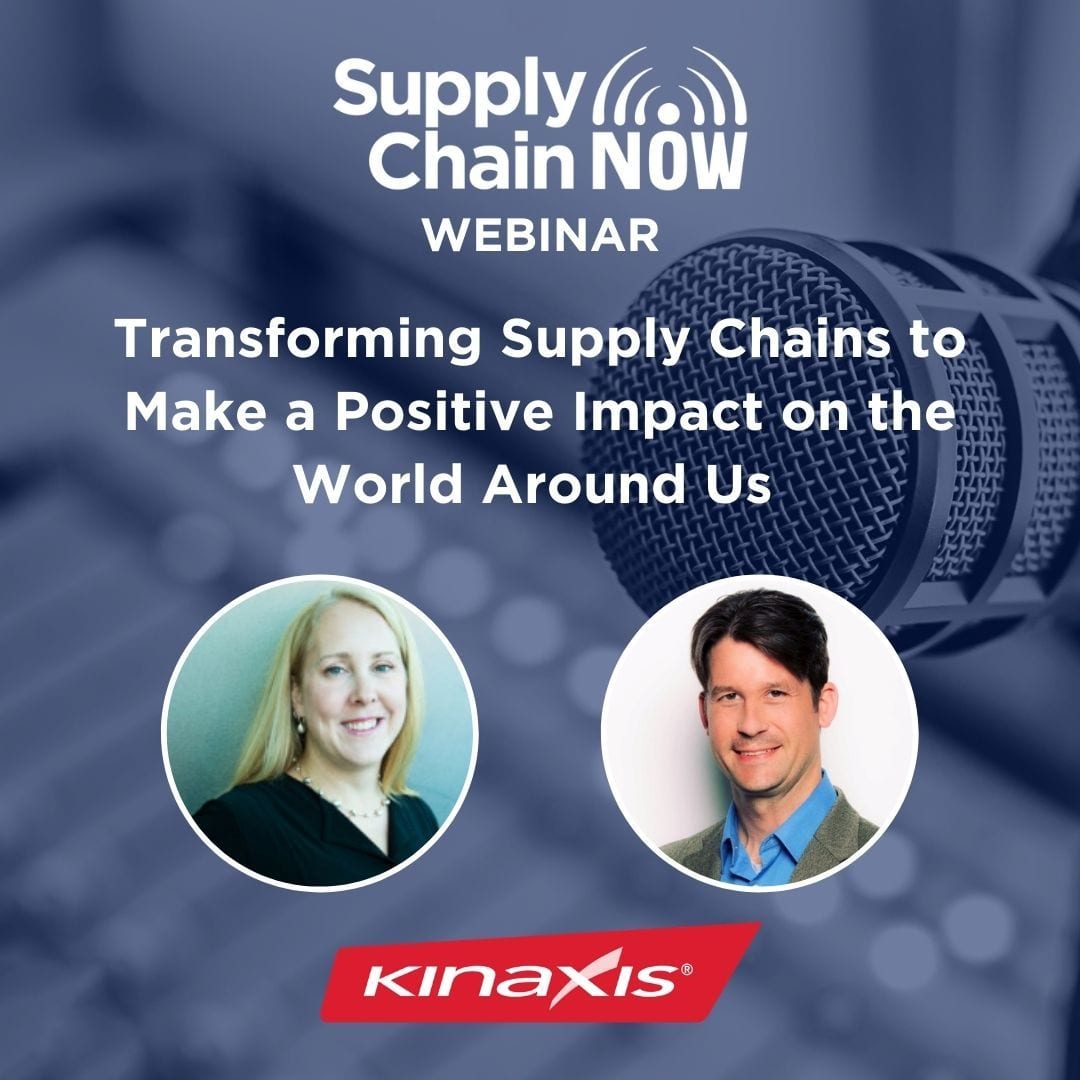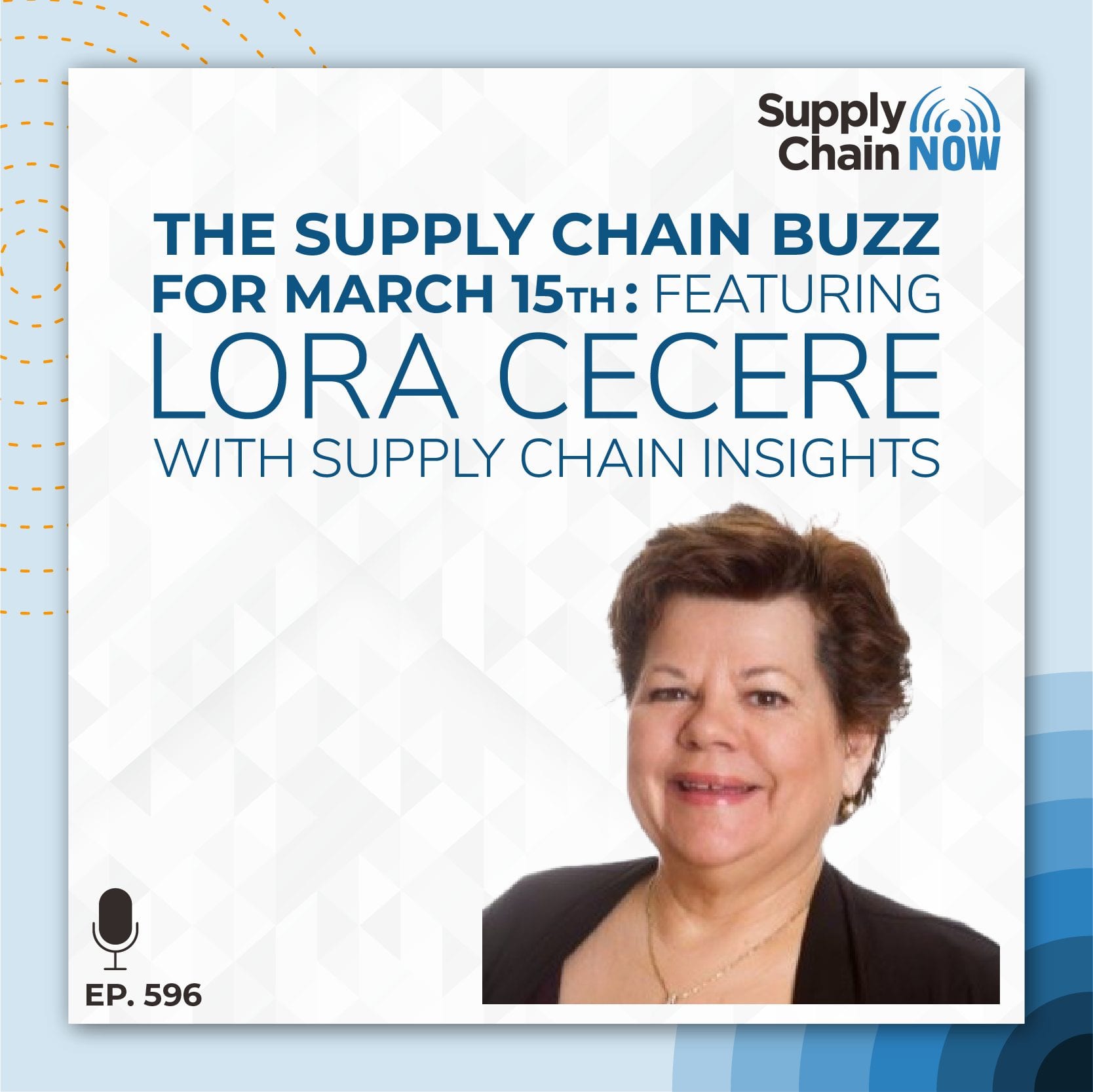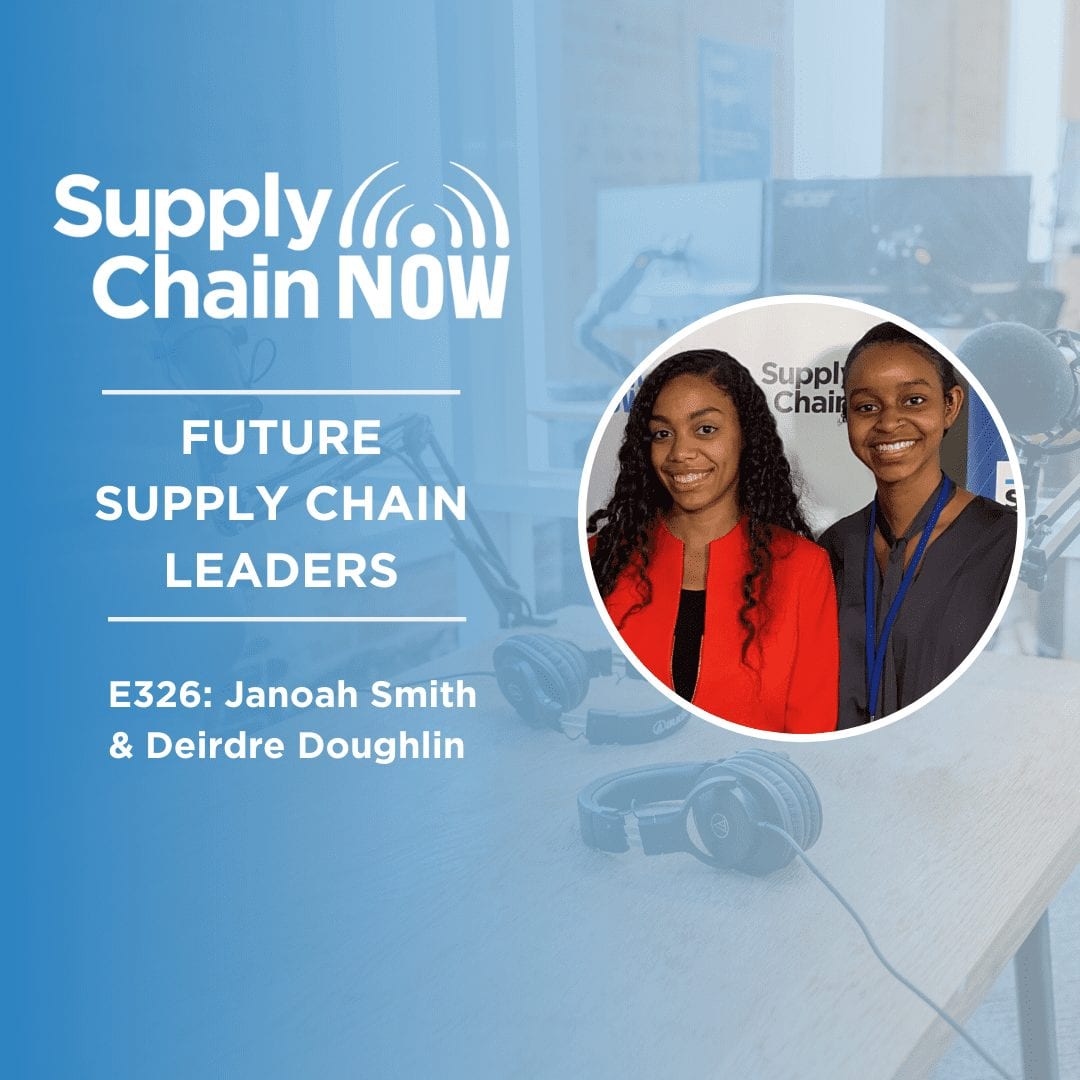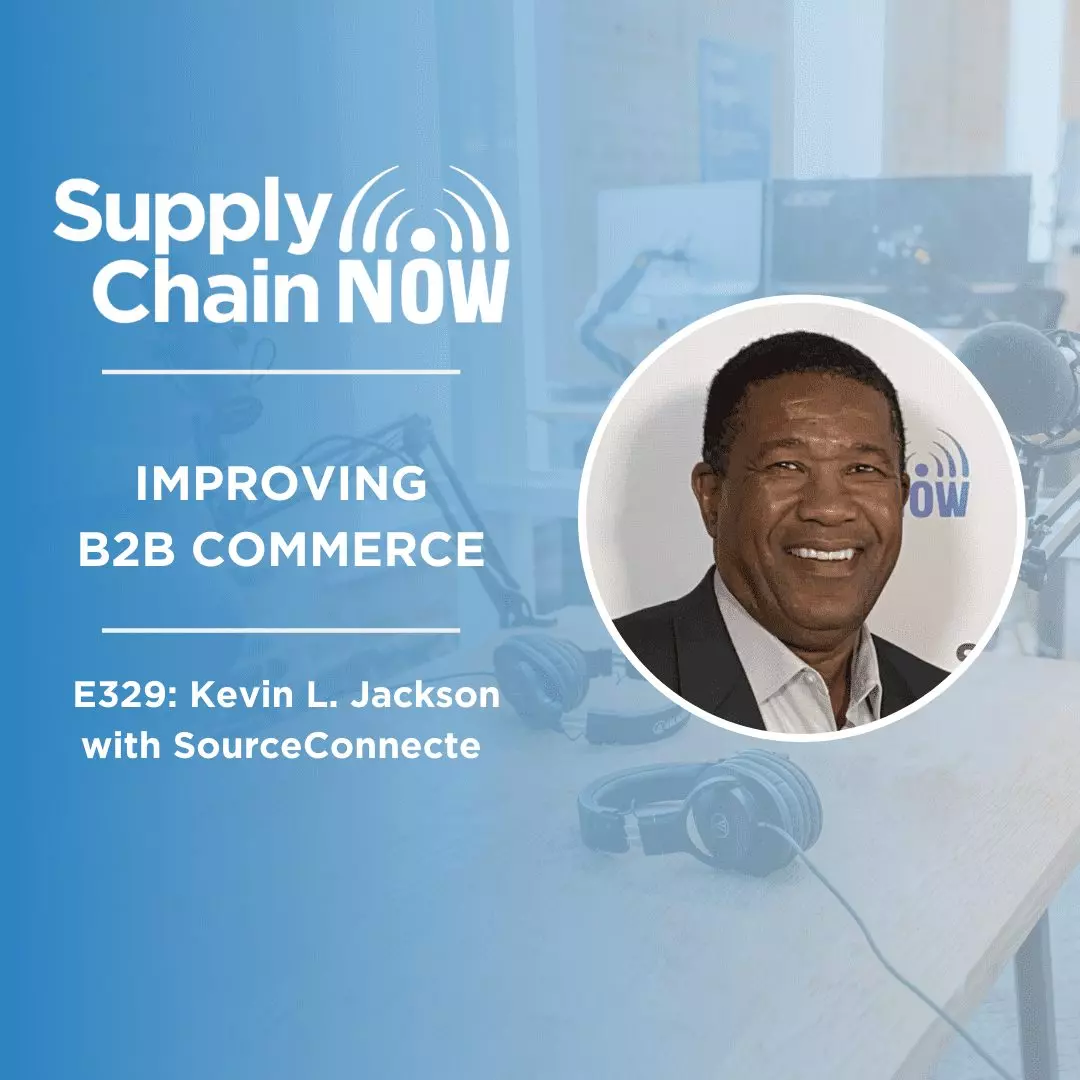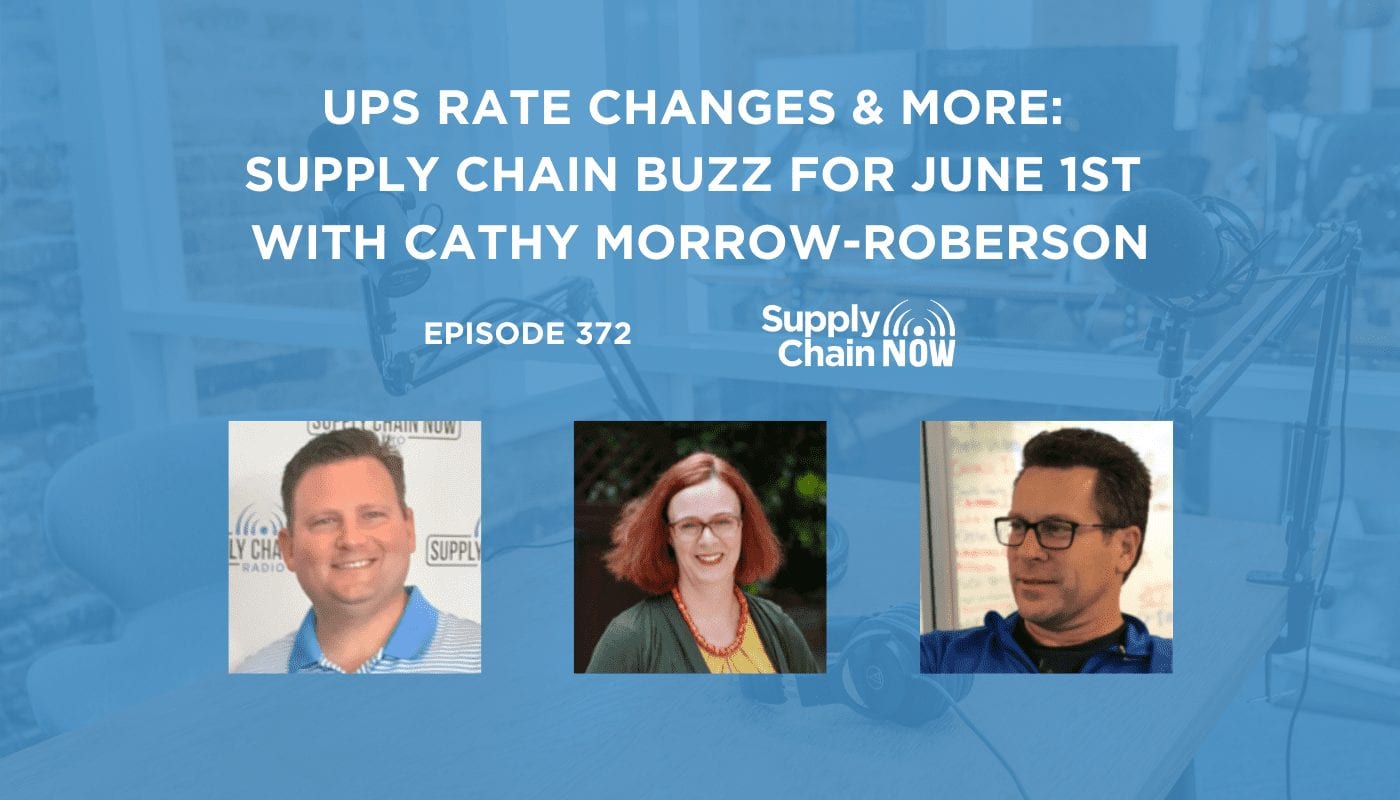
Episode Summary
In this episode of Supply Chain Now, Scott and Greg welcome special guest Cathy Morrow-Roberson and share the top stories in supply chain this week.
Episode Transcript
Intro – Amanda Luton (00:00:05):
It’s time for supply chain. Now broadcasting live from the supply chain capital of the country. Atlanta, Georgia heard around the world. Supply chain. Now spotlights the best in all things, supply chain, the people, the technologies, the best practices and the critical issues of the day. And now here are your hosts.
Scott Luton (00:00:29):
Hey, good morning, Scott Luton, Greg white with you here on supply chain. Now. Welcome to today’s live stream, Greg. Good morning. How are you doing? I’m doing well. How are you doing fantastic. Um,
Greg White (00:00:41):
and very little of the world unless it’s early, early morning, right?
Scott Luton (00:00:45):
That’s right. Well, it was a gorgeous day here. Weather-wise uh, in the Metro Atlanta area. Um, and today we’re continuing with our supply chain buzz, um, series where we’re covering some of the latest developments and what they mean in the world’s supply chain, right? Yeah, no doubt. Looking forward to it too. Yup. Hey, uh, quick side note to clay at a man. It looks like we’ve got a little issue publishing to LinkedIn. It may be temporary, but just give me a heads up. I’ve got some kind of error message here. Um, alright, so let’s keep, you know, when we’re live or not. Right, right. That’s the good thing, right? I think so. Right. Hey, he’s visible. If nothing else we know
Greg White (00:01:24):
you’re on YouTube, Twitter, Twitch, and Facebook.
Scott Luton (00:01:29):
Yeah. Facebook, a lot of folks are getting their business information, uh, these days more than ever. Right.
Greg White (00:01:35):
Right. But I guess, because everyone’s so comfortable with that platform, um, they’re doing a lot of business research there as everyone starts to get back to it.
Scott Luton (00:01:47):
Yep. You know, um, let’s do this. Uh, let’s talk about let’s invite folks. If you, if you get, enjoy our live stream, check out our podcast today, we published a podcast with Tim duner of freight waves. Uh, that was an interesting episode. Wasn’t there, Greg?
Greg White (00:02:05):
Yeah. I love duner first of all, just a great person generally. Um, I think people think of him as bit of a mad man, but this is one of the most knowledgeable, mad men you will meet. I mean, his knowledge of transportation and supply chain in general is really, really impressive. And his, his career history speaks to that as well.
Scott Luton (00:02:27):
Yeah. Agreed. Uh, good stuff. You can check that out wherever you get your podcasts from and, um, be sure to subscribe. So you don’t miss a single thing. Alright. So today is Monday, June 1st, 2020 already. Let’s talk about this day in history. So first up, uh, on June 1st, 1495, a monk by the name of John core documents, the first known batch of scotch whiskey, which can be found in Greg’s coffee cup. Right. This very second. Not really just kidding there, but wouldn’t it be great. That’s right. Uh, so John core was a month in Linder’s Abbey in five Scotland, and that was the first reference ever to, uh, to a drink that’s become popular around the world whiskey that’s right. And then on this day, June 1st, 1792, Kentucky, speaking of, uh, beverages and, and, and adult beverages and spirits, Kentucky’s admitted as a 15th state in the U S and then just a few years later, June 1st, 1796, Tennessee is admitted as the 16th state in the U S uh, and then finally, June 1st, 1980 CNN begins, uh, broadcasting.
Scott Luton (00:03:49):
Wow. Uh, the genius that is Ted Turner, it changed the world and a lot of folks made fun of him and said, it never, it never happened. And it never take off. Holy cow, has he? Yeah, really? I mean, what would we do without the ability to pop over to any of the 24 seven news services these days? Um, this is actually an image, uh, of my oldest Brantley. We took a school tour about a year or so ago, man, the world has changed dramatically since then. Uh, and toured of course, all the studios and, and, um, they do such a great job at CNN touring folks through their, their, their offices there. Uh, but it has been, let’s see, 40 years, so happy 40th anniversary to the folks over at CNN. Hey Greg, other news around the world children’s day internationally is celebrated today.
Scott Luton (00:04:39):
June holiday or also called June bank holiday in Ireland is today independence day in Samoa, national maritime day in Mexico. It’s a little supply chain, uh, been there, milk what’s that there we go. Maritime day in Mexico, world milk day. I didn’t know. That was such a thing here today. And it’s celebrated internationally, got milk with all that said let’s dive into the supply chain buzz. Yup. All right. So on today’s supply chain buzz, we’re going to kind of change up the approach a bit. So rather than take a deep dive on three or four stories, what we’re going to do is we’re going to scan the headlines on the front end and share three, three stories, and probably get a little bit of a hot take from Greg on a couple of those. And then we’re going to take a deep feedback that maybe you, you, not me, we’re talking too much.
Scott Luton (00:05:35):
Yeah. We get that feedback a lot. That way people take it easy on Scott. Um, so then we’re going to take a deep dive on ups is a surcharge changes and have a great guest. Join us in the studio today, expert guests joining us today. And then we’re gonna wrap on three additional headlines and kind of you the down and dirty on why on what is happening there and why it’s important. So you ready, Greg? Uh, seatbelt fastened. I’m ready. Alright, hold up. So the automotive industry is certainly taking its lumps here. And the first couple of stories Renaud is cutting 15,000 jobs. So according to the BBC, the French automotive, uh, automotive manufacturer cutting 15,000 jobs worldwide and at 2 billion euros streamline streamlining initiative company is now in labor negotiations to determine which of its plants are going to be impacted beyond the workforce. Reduction we’re know is also one reducing subcontractors to reducing the number of components that uses in its vehicles. Three freezing expansion plans, particularly in Romania and in Morocco and fourthly, shrinking gearbox manufacturing, worldwide companies, also going to be focusing more on small vans and electric vehicles. And I didn’t know this. Greg did, you know, Reno is part of a unique three-way Alliance with Nissan and Mitsubishi and is owned 15% of the company’s owned by the French government.
Greg White (00:07:09):
Yeah. Yeah. That’s pretty typical for, uh, companies in, in, uh, on the European continent and particularly in France. So that’s really interesting, also not easy to cut jobs in Europe. Um, in some countries they make it virtually impossible and, and others, you have to pay as much as a year or two of what what’s called garden leave, which is essentially paying someone for the time that it might take them to find a job. And reality is it could very well be a significant portion of time for some of these folks. Yep. Hopefully there’s some good news behind this, in that as the economy starts to come back, they’ll bring these folks back. We’ll we’ll have to see.
Scott Luton (00:07:58):
Yup. We will keep, keep our finger on the pulse. But, you know, speaking of Nissan Nissan also is making some big changes. So according to the wall street journal, uh, Nissan reported a massive six point $2 billion loss in the latest fiscal year, as a result, Nissan is going to be reducing overall capacity to the tune of about 20% closing plants and Spain, Indonesia, and reducing capacity and plants in the U S interestingly enough. And I didn’t realize this Nissan in recent years has been building up its capacity, so it can produce 7 million vehicles. Um, however, they never sold more than five man. So they had a big Delta there. Uh, additionally, the company plans to focus more on markets in the U S Japan and China, while it’s ally, Reno’s gonna focus more on Europe and Latin America. And finally Mitsubishi is gonna focus more on Southeast Asia.
Scott Luton (00:08:53):
So we’ll see if this strategy and these, these massive pivots a workout, Hey, quick program that, uh, Greg and to our audience looks like we’re still having a challenge connecting with LinkedIn. So, uh, we’re not gonna be able to connect with many of our audience. There might be an issue with our platform. It could be an issue with LinkedIn connectivity, but regardless, as Greg mentioned earlier, you can connect on this supply chain buzz episode live via Facebook, Twitter, Twitch, and YouTube. All right. So, uh, Greg, any additional thoughts on these, um, you know, all this disruption we’re seeing, uh, of course we’re seeing everywhere, but particularly in auto an automotive market, especially with, as it relates to demand,
Greg White (00:09:32):
it’s not surprising. And I wonder if this isn’t the start of a more dramatic shift. Interestingly, that Reno went to more vans, which are what are selling, um, and electric vehicles and people are starting to move their, uh, you know, move, move that direction in terms of, of how they start to think about their next vehicle. Uh, also interesting is that that triumvirate Nissan Renault and, uh, I’m sorry, what was the third company, a Mitsubishi Mitsubishi that they basically regionalized, right? We’ll take this area. You take that and, and they’re regionalizing where their strengths lie. I think we’ll see a lot of companies regardless of industry to start to pull back to where they are strongest and rethink their expansion plan.
Scott Luton (00:10:24):
Yup. Agreed. Um, interesting Alliance and we’ll see, you know, we’ll see, um, there obviously will be some other side effects and repercussions from these big changes. So yeah, we’ll keep our finger on the pulse. Okay. Let’s move over to the PC market. So, uh, one more story as we wrap up this, this first scan of headlines, this from Yahoo finance and Bloomberg, the world’s second largest PC manufacturer endured a very challenging second quarter, including a loss in revenue. One of the main corporates of course, was supply chain disruption, which is doesn’t surprise anybody. Uh, we saw all our friend, Adam Robinson via Twitter report earlier today, our site, at least an ism article, uh, which shared some of their research that 75% of the companies, uh, around the world have been experiencing supply chain disruption related to COVID-19. And we thought, Greg, that that number was surprisingly low. Uh, so back to HP here. So HP CEO, Enrique Laura says supply chain issues began of course in China and spread into the company’s Southeast Asia footprint, but good news. We all need good news. They’re back at full capacity now. Uh, so what is a company to do? Well, HP has already announced that they’re going to spend a lot more money on supply chain and logistics efforts, which I am sure they’re not going to be alone in that regard, right.
Greg White (00:11:48):
It’s going to be a crowded market for supply chain transformation. And in very short order, I think a lot of companies will diversify. They’ll have a China plus one, two, three sort of strategy, or start to have alternate alternate areas where they might, uh, produce some of their volume reassuring near shoring. All of these things have been discussed. Of course the cost blend will, you know, will mean potential price increases for a lot of products.
Scott Luton (00:12:22):
That’s right. So consumers get ready. Yeah. Um, we’ll see how that plays out. Hey, quick trivia question. Of course, we got our supply chain trivia right around the corner Wednesday morning, Greg, if HP is the number two, in terms of, uh, PC producers, uh, uh, PC production, who isn’t the global number one,
Greg White (00:12:42):
my my guess would be the former maker of IB. All of IBM’s laptops. Lenovo is that you’re right
Scott Luton (00:12:50):
where winter chicken dinner Lenovo is the number one PC manufacturer globally, which I had no idea.
Greg White (00:12:56):
Well surprising to me is that HP is too, I’m not sure I would have guessed them as two, but, um,
Scott Luton (00:13:05):
I was thinking Tandy. Did you ever have a Tandy Greg?
Greg White (00:13:12):
I did not, but my great grandparents did of all things. Um, I don’t remember what their, their computers were called. They were TRX TRX, PRS, TRX 80, uh, sounds right. Something like that. Yeah. Um, you know, we had an Apple before it was called a Mac, Apple or Apple two or Apple two, we
Scott Luton (00:13:34):
Apple two E. Yeah. That was infamous. Especially in, in schools back in the day Oregon trail, uh, everybody played it. Most people did not make it, uh, to their destinations. Hey, uh, so we’re gonna move right along. So the next topic is a big one. Uh, it’s going to impact a bunch of companies. And Greg, tell us a lot more about these new surcharges that ups rolled out.
Greg White (00:13:57):
Yeah. So w uh, just so everyone knows, we’ve decided we’re going to go deep on a particular story each week and then, um, hit the high points of several of these. So this is the one we’re gonna go deep on. And while ups is in the title, and this is predominantly about them, uh, there is a lot more to be said here and a lot about other carriers as well. So, um, ups has announced a peak surcharges of 30 cents per package for ground residential and sure. Post, um, delivery, which includes USPSS, uh, final mile delivery, as well as ups, final mile delivery. And the reason for that is because of COVID-19 and this seismic societal disruption of sending people home, their, uh, their volume is up over 70% on, um, on last mile on parcel delivery to residential. And that’s obviously been very costly for them to endure.
Greg White (00:15:02):
So, um, so as not to miss some of the key points from our supply chain dive article, again from another one of their, uh, correct, um, journalists, uh Kapadia um, they, they have experienced a pretty significant uplift. They have not only identified the, those two things last mile, but also large package surcharges of $31 and 45 cents per package, uh, for anything over 130 inches by 96 inches, obviously that’s pretty large, but they also already had a large parcel, um, large parcel, uh, surcharges, uh, an interesting statement by Chaz Gorham district sales manager at the us postal service got love. The search, a charge game says Gorham. So essentially, if you were a residential shipper that average 25,000 shipments a week, and you started doing 50,000 or more a week, you are now paying a minimum of an extra $7,500 a week to put it in perspective at 30 cents per package surcharge.
Greg White (00:16:18):
Now, this begs a larger question, which we’ll get to in a second, but one point is that FedEx, um, one of the other carriers and T and T have both taken different angles on this in terms of how they are addressing it by limiting predominantly limiting volume of their, uh, larger shippers, rather than surcharging for. So the net effect, I’m not exactly sure what, what the net effect is, but the net effect is either lower customer experience or higher cost. And an interesting, an interesting analysis here leads us to, I think, a really foundational question of whether home delivery delivery is viable at this point, it’s actually lower margin for a retailer to deliver to home than it is for them to do it on, uh, for them to have an actual store location. And I think we all thought many of us thought anyway, even experts in supply chain thought it would be quite the opposite.
Greg White (00:17:27):
A bricks and mortar retailer needs a 26% gross margin just to break even at retail in store, they’re averaging about 32% at retail in home delivery. They’re averaging 30% with, with, um, margins as low as 12%, depending on the type of delivery that we’re talking about, the faster the delivery, the lower, the margin hours long delivery is around a 12% margin and never peaking above 30%. So clearly there are some inefficiencies in the marketplace and largely that is, has to do with additional slotting positions downstream from the stores or in the stores and labor costs, and of course shipping, which this alludes to. So I think this really addresses or starts to highlight the issue that we have to figure out how to create a more viable delivery, especially last mile delivery solution in order to, uh, sustain this. And it really does beg the question is home delivery sustainable,
Scott Luton (00:18:39):
and the challenge is going away. It’s only gonna get, it’s only gonna get tougher and tougher. And then,
Greg White (00:18:44):
I mean, if you look at what’s disrupted supply chains, to this point, Scott, 70% is a relatively small uptick. I mean, when you look at how disrupted the supply chain was with toilet paper, that was a 753% year over year uptick in demand. And we’re talking about one less than one 10th of that has caused the largest, which should be the most efficient carriers in the world to either limit volume or to charge additional surcharges on that volume. And, you know, as, as Chaz Gorham, uh, represented there, it’s not, it’s an, it’s a substantial cost differentiator for, uh, some of these, some of these eCommerce companies.
Scott Luton (00:19:28):
Well, I appreciate you breaking that down a bit. There’s some moving pieces. We have got a secret weapon joining us on the show here today, right?
Greg White (00:19:37):
Yeah. Someone who really knows let’s I can’t wait to hear
Scott Luton (00:19:41):
that’s right. The logistics guru and clay, if we’re ready, dog, if we’re ready, we’re going to bring on Kathy Maura Robertson, founder, and president with logistics trends and insights. Hey, Kathy, how are you doing?
Greg White (00:19:56):
She is like bad.
Scott Luton (00:20:02):
We’re doing, you know, all things considered. It’s a tough time for many, for a variety of reasons right now. And, and, uh, we’ll have to talk about that later, but, uh, all things considered we’re doing well and love, you know, I keep seeing your name on by-lines and commentary mean everyone’s trying to crack the code on whether it’s final mile or just general logistics, challenges, supply chain challenges. And, uh, you can’t answer your phone fast enough. It seems
Greg White (00:20:30):
I’m having a travel hush and I wait for that every time we talk. Thank you.
Scott Luton (00:20:41):
So, and it’s great to have you back let’s show, you know, obviously you’ve been on some earlier podcasts. I think this is your first official on the bus and it looks like we had just made the connection and we’re back on LinkedIn live. So not sure that, Hey, don’t Monday. So Kathy, you kinda, you kind of heard as Greg laid it out there, this, this, uh, these changes over at ups, what’s, you know, what’s some of your key insights there.
Cathy Morrow Roberson (00:21:09):
My first thought when I saw it was my God, what took him so long? Um, yeah, really, really think about it back in March when they re uh, when ups reported their quarterly earnings, uh, they, they came out and said 70% of the volume in March alone was residential deliveries. And they were seeing the same trend. And, um, going into April residential deliveries are expensive as heck. I mean, just think about it, driving up each driveway, having get out, drop off that package, then go back to your, it takes a lot of time. That’s why they like the B to B type of deliveries. Um, but it’s difficult. And, you know, I, I really wasn’t anticipating because the volumes have just been escalating since the chrono virus crisis, um, came and, and, and it’s, I mean, it’s not only them, you know, like, like you said, Greg, uh, FedEx is capping volumes for some of their, um, for some of their retail customers, right? Yeah. That’s, that’s basically what they do for peak season. You know, the traditional peak season is that the neat with their customers and they talk about the volume capacities and such as that, and this is how they’re handling it right now. And it’s, it’s rough for all of them. The post office, even Amazon has stumbled. Everyone stumbling.
Scott Luton (00:22:46):
Quick question for you on that topic. Do you think to this point, they have been subsidizing the losses of retail, uh, last mile delivery with the profits from B2B delivery, and you just reached the threshold where they couldn’t tolerate it anymore.
Cathy Morrow Roberson (00:23:06):
That’s a good question, possibly, possibly. Um, I mean, you know, they probably held out as long as they could now. You’ve got a lot of analysts out there. They’re probably rolling their eyes and yelling, you know, going though this is all about making profit. This is all profit driven is what a company is for. Oh yeah, of course it turns out. Yeah, definitely. But some people personally doubt it. I really doubt it. I mean, the volumes are tremendous and even then every, you know, they, FedEx post office have been begging for eCommerce packages, you know, for quite a while. Well, boom, they’ve got it. But I think,
Scott Luton (00:23:55):
well, w to be fair, cause I know Greg quoted the post office should probably increase the rates the most right. Given their, what we’ve seen for years with the postop. Correct.
Cathy Morrow Roberson (00:24:08):
Yeah. You would think, um, I mean, right now this is their competitive advantage is that they are the low cost provider. Right. Other than that, I mean they’re on time performance, you know, based on the supply chain, dive article, Greg reference that on time, performance has been pretty sad, this office for a number of reasons and you know, very fortunate reasons.
Scott Luton (00:24:34):
Hey, real quick, before we continue on this conversation, let’s say hello to some of our listeners who clearly the LinkedIn glitch got them, but Hey, memory is watching while she has dinner. Hello memory. Great to see you Sylvia. Hello to the ATL. She says hope all is well. Great. Uh, have you owned the livestream again? Sylvia sank it. Hello team. Uh, swipe them, uh, hello all. And, uh, Sadie is back, uh, once again. Hello. Uh, Sadie and Benjamin gold claim. One of the supply chain super competitors. We’ll see him hopefully a Wednesday morning as we continue that with our friends at st. Picks. Right. Um, so hello around the world. Hopefully everybody is doing this Monday morning. All right. So Greg creep, keep driving here around this, this, uh, this ups scheduled, uh, fee schedule change.
Greg White (00:25:25):
Yeah. Well I think, you know, uh, Kathy, one of the things we talked about is, is how this speaks to the viability of last mile delivery to residential. Um, so I would love to get your take on what you think it says about last mile to residential right now. And, and obviously this has to be solved, right? E-commerce is not going away. Exactly. I wonder if you have heard of any, gotten any insights from any of the carriers or anyone in industry as to how they intend to address the viability of home delivery going forward
Cathy Morrow Roberson (00:26:05):
last mile delivery has always been the most expensive part of the total logistics cost. I mean, that ranges from 25% upwards to 50% of logistics cost and, you know, for obvious reasons. And there’s been a number of, um, uh, services encouragement, or what have you that’s been played out now, uh, you see partnerships being established between ups, CVS, Michaels, other retailers, and the same is going on with FedEx. They’re doing the same thing, encouraging folks to either pick up at a, at a CVS or a Michael’s or to drop off packages. That’s less costly. You know, it’s all a big time pick up there,
Greg White (00:27:02):
mostly for the retailers.
Cathy Morrow Roberson (00:27:04):
Exactly, exactly. You’re bringing in people to your stores, which is, which is good. Chances are pretty good. They’ll pick up something else while they’re there in the store almost every time. Exactly. And the other thing is they both have both ups and FedEx have been touting their, um, alternative delivery point access points, um, or third party, uh, company. Well, they could ups stores, FedEx stores, but other convenience stores where you could, uh, again, pick up or deliver, you know, or, or drop off a package. So they’re trying that, uh, last year, I don’t know if you remember saying this, but, um, ups partnered up with a tech company and to, um, to help out with some of their retail customers. Uh, so if you go onto a, a retail online store and you order something and you can have an option of picking up your item, you can have it picked up at a locker. Can have it. Yeah. So giving those types of options, I think it’s going to come into play here as well, but you’re right. Come into my, uh, driving into my neighborhood, dropping off packages. It ain’t viable. It isn’t um, I wrote an article last week for a publication, uh, questioning if drones is, you know, is could drones be used?
Greg White (00:28:44):
I know, I know they’ve been tested. Right, right. Yeah. I live in a neighborhood where I am over three quarters of a mile inside the neighborhood around multiple windy streets to get there. I mean, every time I drive home, I’m thinking about what I need to get before I pull into my neighborhood, because I don’t want to drive in through it’s. So windy, Scott had to drive to my house. We ran out of gas in the supply chain now van and it’s torture. It really is. And there are lots of neighborhoods like that. So adds up really quickly.
Cathy Morrow Roberson (00:29:21):
Exactly. You could imagine like maybe a ups, just parking the package car shooting off. Yeah. Gotcha.
Greg White (00:29:32):
Like a fun job in a way. Doesn’t it? Right. I mean, there, I mean, there are lots of ways to address it, but imagine there wheeled drones, they’re flying drones, but imagine you’ve got your deliveries for the day and you set your wheel drone, you roll it out of the back of your truck and let it do its drop-offs and you swing back and pick it up, you know, when you drop off multiples of those around different neighborhoods.
Scott Luton (00:29:55):
Yep. So to our audience, I’ll weigh in, uh, what are you seeing? How have you chosen to get your packages delivered and whom tell us what you’re thinking. So real quick, uh, Kathy and Greg let’s let’s, uh, say hello to a few folks. We have Walton chain USA tuned in via, I believe that is a Twitter. Hello to you. Uh, we have Jennifer Miller, uh, from the freight hub group in South Florida. Jennifer hope this finds you will as well. Uh, let’s see. Well, mr. Gold clang is promising a top five finish. We’ll see. I love that. That’s a Jared. Let’s go, Joe Nemeth playbook. There, there you go. Uh, Ali tuned in via LinkedIn. Hope. This finds you well this morning. Uh, let’s see here. And he has a suggestion. Yeah. Yeah. So the memory, uh, says, I wonder if it would be viable for e-commerce deliveries to be done in a similar manner, as we hail Uber to increase capacity and speed up deliveries, I hate waiting for anything. I buy online. Welcome. I think we all, we all feel that pain, right? We do.
Greg White (00:31:06):
Yeah. We’ve been conditioned to expect it before we hit the order button.
Scott Luton (00:31:12):
Right. It is such a, you know, we’ve talked about this before and it is such a fascinating psychology study because like here recently I ordered some shirts, you know, some, uh, that I did not need this week. I didn’t need next week. Don’t need next month. But you’re tracking to see when you get that package, it is such a, it’s something that Amazon is, has nailed that neuron specifically in the brain and, and, you know, are leveraging it left and right.
Greg White (00:31:42):
Yeah. I agree. I have found, I mean, I don’t know what you all would say, but I’ve found myself becoming a bit more patient because I know why it’s going to be slower. And I think that visibility too, you know, we’re talking all the time about supply chain visibility and we keep talking about supply chain as if the consumer isn’t part of it. Right. I had a recent discussion with somebody on LinkedIn about, um, why about the fact that Costco or whomever, whatever, uh, retailers don’t notify their customers of what’s coming in. Why not? I mean, they, if you’re doing it online, why not notify them that it’s coming in to the store physically. And I think that’s one of the things, one of the hurdles we’ve got to get over is, is we have to recognize that the consumer is the beginning and the end of the supply chain.
Scott Luton (00:32:36):
Good. Right there. Hey, as we wrap up with Kathy Maher Robinson here with logistics trends and insights, we don’t have to let her know not yet. We, uh, did either. One of y’all see, I believe is in supply chain, Dava read over the weekend. It could have been in maybe the wall street journal as well, that there was a study out there that is looking at what Amazon is doing. I guess it’s gonna be the Amazon hour and they’re putting a hub together. And this one study suggested that Amazon may invest in as many as 200 planes to compete more and more in the air cargo space. Catherine, you’re in your thoughts, if you saw that piece,
Cathy Morrow Roberson (00:33:14):
I did say that I have, it’s interesting. Um, there’s so much surrounding Amazon and
Scott Luton (00:33:20):
the last time we had this discussion, Cathy, you told me to hush. I remember that no way. I want to know seriously. I want to hear, I want to hear your thoughts on this because I’m really interested in all of these developments and what they mean for the combined, uh, parcel carrier
Cathy Morrow Roberson (00:33:39):
environment. It’s, you know, it’s fascinating. It really is fascinating because, um, particularly as we learned, what, uh, back in January during ups is earnings, uh, 2019 earnings that Amazon made up, what, on this, uh, 12% of them, I think my mouth just dropped and I was sitting there yelling at my screen. I’m like, how could you have done that? But I think it’s easy to do, you know, for better or for worse. And, um, but as far as the air goes and, and most of that was air freight, uh, ups is a good customer, uh, is, uh, is a provider of a next day air for Amazon. And the question, you know, minutely popped up my mind with this possibility of 200 extra, uh, airplanes for Amazon is how will that affect ups? The relationship with ups, um, is, are, will they bring all that volume back under their wing, so to speak.
Cathy Morrow Roberson (00:34:47):
Um, and also where are they going to find all the pilots? I think right now with so many pilots, unfortunately for a load, it might be a little easier to find, but before the pandemic hit, uh, there’s a, there was a shortage of pilots and much like, you know, truckers, a lot of them have been retiring or I’ve reached that mandatory retirement age. So there’s a lot of questions there. I, you know, if anybody’s going to pick up those extra planes, it’s going to be the atlases, the ATS Jays, and the other partners of Amazon. I personally do not think that, um, Amazon will buy into an airline or buy an airplane on its, um, I think they so we’ll maintain their, their relationships that they have. Um, if you will,
Greg White (00:35:43):
but that’s deeply controlled by them. I’m sure. Well, you know, they’ve got, they’ve got big plans in terms of other capital as well. There, they’ve got a hundred thousands Rivy and, uh, battery operated vans right on order now. So they have other plans in terms of capital. They have the Amazon prime, those cool looking gray vans. I’m not sure where they found such a unique gray color, but those vans that you see, those are not Amazon owned vans. In some cases, those are third party carriers like DHL did when they had a black parcel delivery in the States. So
Cathy Morrow Roberson (00:36:29):
the model that FedEx has built out for them.
Scott Luton (00:36:33):
Exactly. All right. So we’ve got a couple of comments and a, from our audience here. So Walton chain USA asked, uh, what do you think of RF RFID for tracking packages, authenticity and debt settlement, as well as customs? I think that that’s already been used, uh, in a lot of venues, a lot of organizations for those reasons, right?
Cathy Morrow Roberson (00:36:59):
That’s yeah. That’s been this for quite a while. RFID been used for a number of years. Um, I’ve been more interested to hear their thoughts.
Greg White (00:37:11):
I think it’s one of the, of the many solutions that we’ll use a lot depends on, um, the necessity of, of provenance, of establishing provenance and of establishing delivery. And also the cost of the item. RFID is a good relative low cost solution finally, 25 years later, or maybe more. Um, so it’s good for, for that. And we’ve seen some people that are, um, the palate Alliance is, is doing it with pallets. Some people are going all the way down to packages, they’re powered solutions as well, but I’m not sure that that actually solves the cost issue that we’re talking about here. It does solve the deliverability issue. And I think we’ll, we will have tiers of solutions for a lot of these various problems, right? There’s no silver bullet. I think if there’s anything I’ve learned in over two decades, right, Kathy, over two decades of supply chain experience, there is no singular solution to any of these things. RFID is not the silver bullet, IRB, blockchain, any of that is not the silver bullet, but it all has a part to play in assuring, um, congruity and, and conformity in the supply chain. Yes, exactly.
Scott Luton (00:38:36):
I’m Sylvia says the gray vans are built in Charleston, South Carolina. I remember somebody saying that that’s right. Yeah, that’s right. And Ali, uh, asked rhetorically, Hey, don’t you think so owning some of the planes will provide control on calls over hot traffic routes. Interesting observation there. I think more,
Greg White (00:38:59):
no, it’s not about cost. I don’t think, I think it’s more about deliverability. It’s more about reliability. Just like building their own, just like Amazon’s reason for building their own, um, logistics network. It’s, it’s more about, um, customer experience than it is about cost and they can afford to do it. They’ll reach a point overall where they’ll reach economies of scale. But, um, I know pilots, I know a few pilots here and there I’m from Wichita, Kansas. So I know it is much, much cheaper to lease or rent or borrow a plane than it is to own it because you own it, whether it’s flying or it’s not
Scott Luton (00:39:48):
so CA so Kathy, no shortage of things to comment on. But as we wrap up this segment with you, thanks so much for your time earlier today and coming on, uh, to, to talk to key takeaways with some of these big changes that are taking place really over the weekend. What’s your final thought? Kathy
Cathy Morrow Roberson (00:40:08):
expect more change. I mean, I think a change is inevitable. I hate to keep saying that, but it is. And, and going back to the surcharge ups surcharge for, uh, uh, domestic ground, look for FedEx to do the same, they’re going to they’ll follow. They have to, they are just so buried in the volumes.
Greg White (00:40:31):
Yep. Do you think, do you think we should expect to see it go up more from TEDx, from anyone, I guess, do you think it goes from 30 to 35 or 60 or whatever wants you to call the number, but do you think it needs to go up from where it is for them to be viable?
Cathy Morrow Roberson (00:40:49):
Well, actually the big question is how long they’re going to keep it in effect.
Greg White (00:40:54):
Yeah. Yeah. Which is interesting because we still have fuel surcharges on transportation from back in the days when fuel was $4 and 47 cents a gallon,
Cathy Morrow Roberson (00:41:06):
it was less than $2 a gallon. So exactly. And FedEx and ups had already, uh, redid their fuel surcharge tables back in March. So they haven’t changed at all.
Scott Luton (00:41:19):
Alright, well, so a lot more to tackle it, to have your own in the coming weeks again, but Kathy, where can folks find you? Let’s make sure that folks can, can find you.
Cathy Morrow Roberson (00:41:28):
You can always find me on social media. I’m on Twitter. I have two accounts. My company’s Twitter page is logistics. TEI. Mine is cm Robertson, zero six. You can catch me on LinkedIn under my company, LinkedIn page, which is logistics trends and insights. You can visit me at the website, logistics, tdi.com, or you can always pick up the phone. Yeah,
Scott Luton (00:41:57):
outstanding. And y’all put out a lot of great content, including I think a monthly newsletter, right?
Cathy Morrow Roberson (00:42:03):
Oh, it comes out every other week now coming out this Friday, uh, sign up this free. Um, yeah. And no, a lot of blog posts, which just put out a blog post this morning, uh, freight forwarding online platforms. Uh, awesome. We did research reports, our research report or latest one is on the global freight forwarding market, which came out early April.
Scott Luton (00:42:29):
Mm Hmm. Love it. And love having you on the show. A pleasure each and every time Kathy and Maura Roberson, founder, and president of logistics trends and insights, something we’ve made it easy. A direct link to her LinkedIn profile is in the show notes of this episode. Thanks so much, Kathy.
Cathy Morrow Roberson (00:42:45):
Thank you. Good Tom. Okay. Take care.
Scott Luton (00:42:55):
Oh, ma you know, 15 minutes is never enough with wiggly with cameras like Kathy. I mean just chock full of insights. She is. And she is exceptionally tuned in to transportation and exceptionally tuned in to parcel. Yep. Um, which is, it makes her the perfect person to speak to this. Right. Agreed. And if you’re not following her on Twitter, you should. She is a, um, what a great resource of, of timely. And she’s, she’ll be on while these investor and financial reporting calls. And then she turns out the things that you need to pay attention to. So resource Fred Tolbert says he feels the buzz. Fred hope, this finds you well and hope you have a good weekend. He’s got Macallan 12 in his coffee, a couple of the comments before we wrap up with some other, uh, headlines here. Let’s see. Uh, Sylvia’s shared back when we were talking about delivery that we need to discern again between need and want a life saving medicine, such as insulin is far more critical than an order of flipflops and multiple colors well said there, Sylvia.
Scott Luton (00:44:03):
It’s true. I mean, we need to begin to plan again. It’s going to be tough. Yeah. Um, but if you, if you’ve got the gift of being able to do that, of being able to plan and, and accept that, please do it agreed, uh, memory, uh, ways. And again, prior to covet, if I bought items from take a lot.com here in South Africa and went and got something from Amazon exactly the same time, the purchase from Amazon would arrive within three to four days all the way from the U S while local purchase takes as long as 14 days plus. Wow. That is interesting.
Greg White (00:44:41):
That is interesting. That’s um, that is an interesting juxtaposition because I’m stunned too,
Scott Luton (00:44:49):
hear that anyone is still, um, uh, Divia shares that he wrote an article on supply chain diversity today. He offers a direct link to give it a read. Uh, and you know, that’s, that’s a great topic, atomic topic for a lot of the challenges we’re facing, not just within the supply chain industry, but, uh, in general, especially here in the States. And, um, you know, when I think of diversity, Greg, I don’t just think of, of, um, you know, who feels, what job, but it’s a diversity of perspective, a diversity of, you know, you’re going to see the world one way, uh, that your neighbor right next to you is going to see the world much different. And, and there, there is such a great need for diversity of thought right now, uh, to fight through, uh, not the fight through, but to get through these challenges we’re having. So at DDA, we look forward to check out your article and we appreciate you sharing that here today in light of some of these other things. Right, right. Yeah. I think,
Greg White (00:45:49):
um, I think it is a fight, not a violent fight, but it is, um, it is a cold war if you will. Right. But we have to acknowledge and respect. And, and I think it’s our role, um, to, to, uh, elicit that information from those who are unvoiced. And that’s really what we try to do here is to give voice to those that otherwise would not have it
Scott Luton (00:46:17):
that’s right. And I think Greg, you’re not both can agree. Uh, we’re all processing a lot of things right here at once. Uh, we’ve had challenges here in Georgia, especially in South Georgia, you know, and then on the heels of that comes, what took place in Minneapolis, a tragedy up there. So things got to change and we’re gonna, we’re gonna do our part as best we can. And we’re, we’re we’re we got all figure that out. The onus is on all of us. Um, so stay tuned for more to come from the supply chain and our team in that regard. Okay. So on a much lighter note, let’s talk about some other headlines and these are things that are going to impact much lighter note, but, you know, um, we had John Davis on the show last week, risk pulse, chief meteorologist, right.
Greg White (00:47:06):
There’s that in the show notes for this show as well, because his that’s really valuable information for team or for companies coming into hurricane season. And what he knows is truly impressive.
Scott Luton (00:47:20):
Yup. Um, well, to follow up on his appearance where he spoke a lot about the unique hurricane season, that we’re all gonna be facing here, uh, really globally. Um, this comes out from associated press where, uh, the AP team spoke to more than 70 counties across the Southeastern us from Texas to Virginia. And perhaps surprisingly more than 60% of the coastal counties that they spoke to are still finalizing their plans, uh, for public hurricane shelters, PPE cleanup, and emergency health care, right? The whole, whole contingency plan for when storms hit, right. Many administrators and government officials are working through the challenges that, of course the pandemic environment poses to planning, for example, one administrator in the study or in the article mentioned that due to things like social distancing at shelters and on buses that evacuations during the pandemic environment are going to be a nightmare. Uh, but beyond the sheer challenges related to evacuation and sheltering, a lot of other officials side of this shortage of PPE locally, which still a challenge as well as potentially a slow response and fewer resources for cleanup. I mean, think of all the volunteers that a lot of times we’ll go into these, these, uh, stricken, uh, cities and locales and we’ll help the clean up. Well, that’s going to be a, a bigger challenge in light of what we’re all facing, right?
Greg White (00:48:45):
No doubt. No. So this, this is a particularly disruptive time of year in the Southeastern and Gulf States of the U S anyway. Um, and you throw this already existing dual disruption of, of this, you know, I keep saying it seismic societal disruption and the pandemic on top of it. And it’s, it makes for a difficult time. I think the upside of that, if there is any, is that we are starting to get back to business in the Southeastern us and, um, and with relative success in maintaining, um, health standards. Right. Um, so hopefully we’ll be in a better position to, to execute when the inevitable happens with these forms.
Scott Luton (00:49:37):
Agreed. All right. So moving right along all roads lead back to Amazon. So this is an interesting story here that came out over the weekend. You know, we’ve spoken Greg about the workforce concerns and Amazon, uh, for months now, uh, according to CNBC, Amazon shareholders are, are talking about it as well. So in fact, one group of Amazon investors in particular plan to get the e-commerce behemoth and its leadership to address workforce concerns at its annual meeting this week, I think it takes place Wednesday. I’m not mistaken. So this group of concerned shareholders are urging Amazon to release more data on just exactly what it’s doing to better protect its workers last week, a group of about 260 Amazon shareholders, according to the story here heard from a variety of Amazon workers about safety issues. In fact, one of the folks I heard from was a former Amazon delivery driver who was terminated after he had raised safety concerns. So we’re going to see how that meeting plays out, but you know, the big thing that we’ve been hammering, uh, for four months now really is the need to protect and take care of the supply chain workforce. Of course, the folks over at Amazon that allows us to enjoy same day or next day stuff is so critical. Right?
Greg White (00:50:55):
Yeah. And I think, um, I think this is a very difficult situation. Like it has been for other big companies, Tyson and others relative to the success of other companies. Amazon has been, has been pretty good, but I don’t think you can ever do too much. And, um, you know, I know a lot about the, the Amazon culture, um, and, and they are very, have a very strong bias for action. And one of their thing, one of their core values is to be right a lot. So I know that they’re working on this. They may not be progressing as fast as folks want them to, and certainly they need to be held to account. Um, but I, I saw early on Jeff Bezos, uh, go to a facility where they were testing for temperature. Um, they tested him for temperature and he wore a significant amount of PPE in, in entering his own facility. In fact, what he got dinged for was not having sufficient PPE, but it was that he didn’t use the handrail when he went up on a gantry, um, in the warehouse. So, um, you know, there’s, there’s a lot going on here. Amazon is a world leader and certainly all eyes, as you said, all eyes are on them and all roads lead back to them and they need to Excel in addressing these kinds of issues. And it’s good to be held to account by your shareholders.
Scott Luton (00:52:26):
That’s right. Uh, meanwhile, you mentioned Jeff B the beat goes on for Jeff Bezos recently invested in beacon, a UK based digital freight forwarder. So we’ll see how they leverage that in the weeks and months to come. All right. This thing, uh, our final headline, we’re going to share here today.
Greg White (00:52:45):
I was so glad to see this in the show. Prep Scott is so impressive and encourage. Yes.
Scott Luton (00:52:53):
Well, you know, we had a, an executive from the energy industry, uh, on the show as part of our AIG programming a few weeks or maybe a month ago, and, you know, his forward looking and, and very innovative approach that they had at their company that consumers energy, I think was the name of it. I could Malcolm shoot me a note if that’s not right. It really stood out. And what traditionally has been a very buttoned down kind of not to say old fashioned, but just a very staid industry, right? Things are changing. Things are changing here. So in this report from the wall street journal, coal is King no more for the first time, 134 years, the U S used more renewable energy in 2019 than it did coal powered energy. Uh, biggest re one of the biggest reasons is the steep drop in coal fueled electricity usage. Two other reasons that the article cited the pandemic calls energy companies to shut down a lot of plants, including coal plants, and many analysts are saying that those coal plants are not coming back online. Additionally, many energy companies are very practically and within intentionally looking for ways to make the transformation over to more renewable energy, they are certainly answering the call and demand that consumers want. Right.
Greg White (00:54:07):
Yeah. I think, I think, um, at the risk of, of, uh, getting a nasty phone call from my wife’s cousin in West Virginia, I think, um, the fact is that we’re not consuming less energy, we’re consuming more energy, but we’re consuming less of it, uh, by using fossil fuels and, and particularly coal. So, um, we know that we know this because the cost of gas, if anyone has recently renewed their natural gas, um, service, the cost of natural gas is, is up. Um, the, of course the cost of other fossil fuels are down substantially. But one of the things we’ve got to do is get to more renewable and less pollutive energy resources, because the, the amount of energy that we use isn’t is it continues to, to rise. It will level off at some point as population levels off. But, um, for now we’ve got a definitely folk art focus, our efforts on renewables.
Scott Luton (00:55:16):
Yup. Good point and interesting report from the wall street journal. Yeah. One more thing. And certainly a highlight of today’s buzz and the highlight in general. So a launch America for the first time in history, NASA astronauts have launched from American soil in a commercially built and operated American cruise spacecraft. Many of you all may have seen that over the weekend, the space X crew, dragon spacecraft, carrying NASA astronauts, Robert banking and Douglas Hurley lifted off at 3:22 PM Eastern. They liked Tom Saturday from NASA’s Kennedy space center in Florida. And it was Greg. I think it’s been about 10 years since the last space shuttle flight. And unfortunately the special got so routine and really inaccurately viewed routine because it is blasting into space via space shuttle, or the dragon, one of the most dangerous things you can ever do and
Greg White (00:56:16):
most amazing.
Scott Luton (00:56:17):
Right. And it was absolutely captivating over the weekend. It Greg.
Greg White (00:56:24):
Yes. And I, and I want to thank you personally for notifying me because I thought that it was a washout for Saturday and I was on my way to have Mexican food when, um, when you let me know, and there were dozens of people, appropriately space sitting at the restaurant with their phones in front of them, um, watching this thing. I mean, virtually everyone was transfixed on it. It, um, you know, considering everything that’s going on, it was a unifying moment for humanity, great point. And, um, and, and, um, fascinating. And it really puts in perspective what is possible when we come together and, and what is available to us when we do
Scott Luton (00:57:13):
yeah. Great point. Yeah. A very, uh, exciting, invigorating, um, inspiring.
Greg White (00:57:20):
Still is man. I’m still, I’m still moved.
Scott Luton (00:57:24):
Right. Well, I was, I was in particular, I was really pleased to have my three children in the same room, because, you know, as we’ve talked about a thing on last week show you and I grew up with the TV and the VCR or the Betamax being rolled in on that black frame cart and the space shuttle, you know, launching and all of us kind of having that, that moment. And we thought about what we do and grow up, including some folks being astronauts or scientists or some of the engineers behind it all. So to have my three kids in the room, as it launched, uh, was very special to me. And hopefully to your point, it will be a unifying moment when we need it, uh, terribly
Greg White (00:58:02):
well. And I would love to give just a quick shout out. I won’t give a last name to crystal who was one of my coworkers at blue Ridge, who is now at NASA. I’m so happy and proud for you, crystal. And, um, all of your hard work brought to fruition, all of the hard work of everyone at NASA and space X have delivered this. And I think, uh, as the, as the NASA administrator said, this is the beginning of a new era of sustainability, sustainable, um, delivery to space for NASA. He said, and I’m paraphrasing never again, will NASA be the sole payload carrier or payor on, on, uh, a rocket. So we figured out viability, I would like to thank Elan Musk, all that weed must have paid off his brilliance to make this happen. And I mean, I mean that genuinely that’s, you know, tongue in cheek, but I mean, that genuinely in 19, was it 84, Scott, he, he expressed his ability to get NASA, uh, viable and into space frequently. And if you haven’t seen it go to YouTube and watch it, it is an amazing demonstration of the brilliance of this madman’s mind. And thank goodness in some cases for madman and who do this crazy stuff. Right. Um, and you know, and we need, we need more of that. We need leadership with vision
Scott Luton (00:59:38):
agreed. Uh, so good stuff. Great. Uh, highlight certainly on the weekend of the month and perhaps of the year. So, all right. So next steps here, thanks to everybody for joining us, uh, for today’s supply chain buzz. Thanks for looking past some of the technical glitches that, uh, that we had on a platform evidentaly earlier today. LinkedIn, maybe didn’t have its a cup of coffee or early enough. Yeah. Um, but Hey, join us for the supply chain trivia challenge, uh, installment number three this Wednesday morning, June 3rd at 9:30 AM. Eastern daylight time. It’s our Eastern hemisphere edition. We’re doing it in conjunction with the great folks over at say pics. We’ll see if Kobe cannoli defends the title, uh, Coby finished in first place, last challenge. And we’ll see if Tony and hurry day Finn, uh, uh, defend their second place title, which is still nothing to shake a stick at. Right.
Greg White (01:00:37):
That’s right. Well, and also mr. Inventory, right? We need to see if the Mitrione comes back and gets into the top five and Andrew gold playing has thrown down the gauntlet guaranteeing a top five finish that’s right. So I’m really interested to see what happens there. And also we need to hear again from Reno nine 11 and G Reno and also Sarah Barnes Humphrey who were right at the top that’s right, right. Until they had to, they had other duties they had to attend to.
Scott Luton (01:01:09):
So join us this Wednesday morning. You don’t have to register, but it’d be a lot easier if you did. We’re going to send out some guidelines probably tomorrow afternoon to all those folks at register, we’re approaching a hundred registrants for this third, uh, contest, which is great. Wow. And let’s start with, you can go to supply chain now, radio.com, click on the events tab, and you’ll be able to register just with a, uh, a couple of pieces of information, and then we’ll get more information over to you. So you can be in position in pole position to compete for first place. You better bring it this time, people that’s right. So, you know, if you enjoy today’s live stream, check out our podcast where we get your podcasts from, um, you know, we’re still going back to, um, you know, kind of halfway through where we’re looking for the right words and then certainly the right actions right now.
Scott Luton (01:02:03):
Um, you know, business, as, as the point you made, Greg business has got to continue because with business and with growth, we’re able to do other things to make things right. And, um, you know, we want to wish all of our audience and our listeners all the best, you know, these are, these are challenging times in recent months in and of themselves and with the events we’ve seen in recent days, um, you know, they’re going to be even more challenging. So stay tuned. Um, we wish all the best. And we look forward to you plugging in with us on the next episode of supply chain now. So with that said, Greg, on behalf of Greg white and Amanda and clay and the whole team here at supply chain. Now we really wish you all the best. Uh, and they will be much, much brighter days ahead and, uh, have a great week, everybody.
Speaker 5 (01:02:51):
Thank you. Thank you.
Featured Guests

Cathy Morrow-Roberson began her career as a librarian working in libraries in North & South Carolina and in Georgia. However, during the first wave of e-commerce startups, Cathy accepted a position at an e-commerce consulting startup working on such projects as the first internet bank and providing strategic analysis on other projects. After a couple of years, Cathy moved on to UPS where she was part of the team that created UPS Supply Chain Solutions. Cathy was responsible for logistics research and analysis including competitive and market analysis and more. With eleven years of UPS experience, Cathy returned to the consulting world, first working with a British-based firm and then launching her own business in 2015, Logistics Trends & Insights LLC, a supply chain market research and consulting firm.
